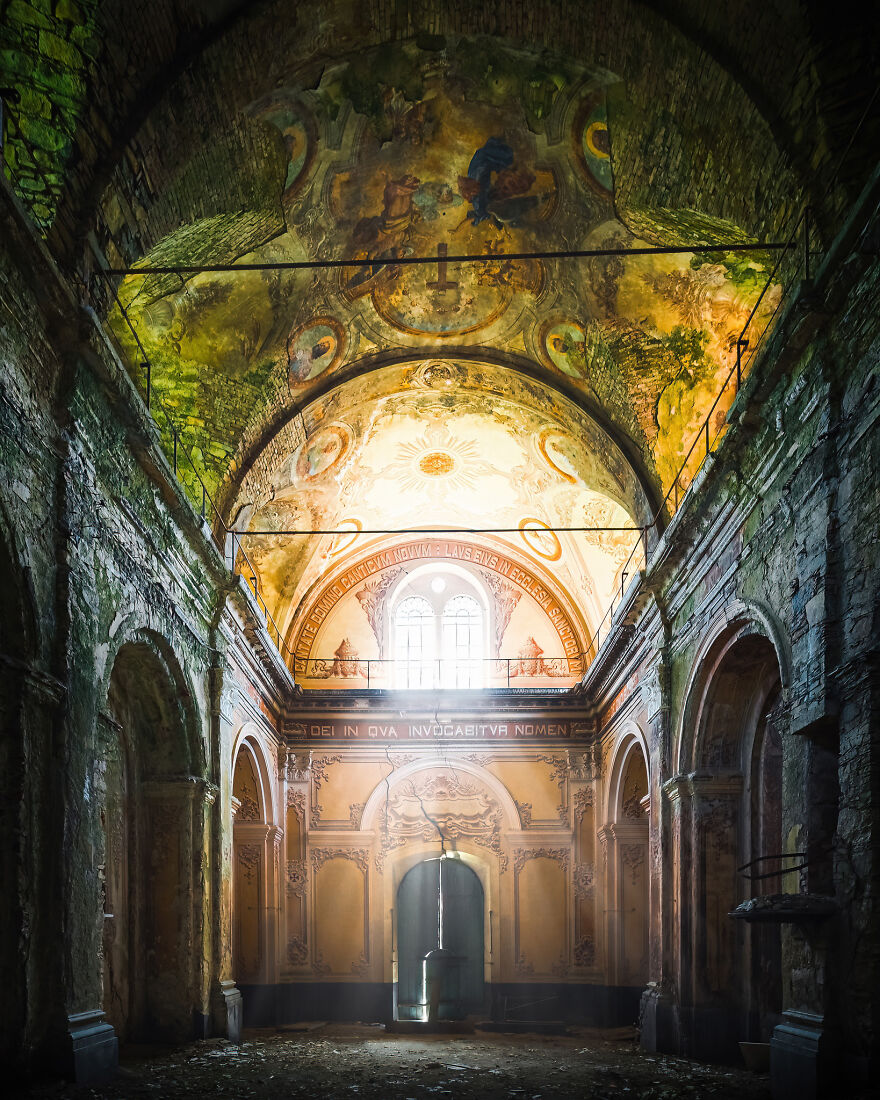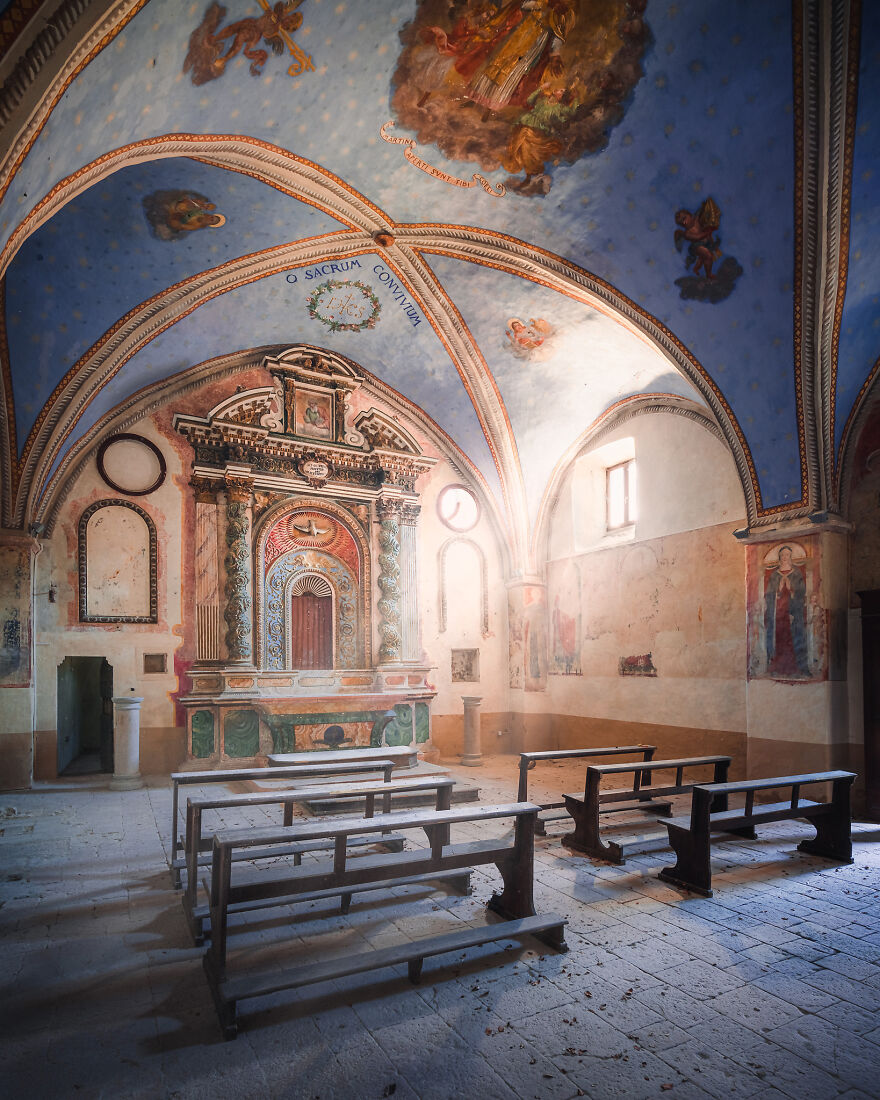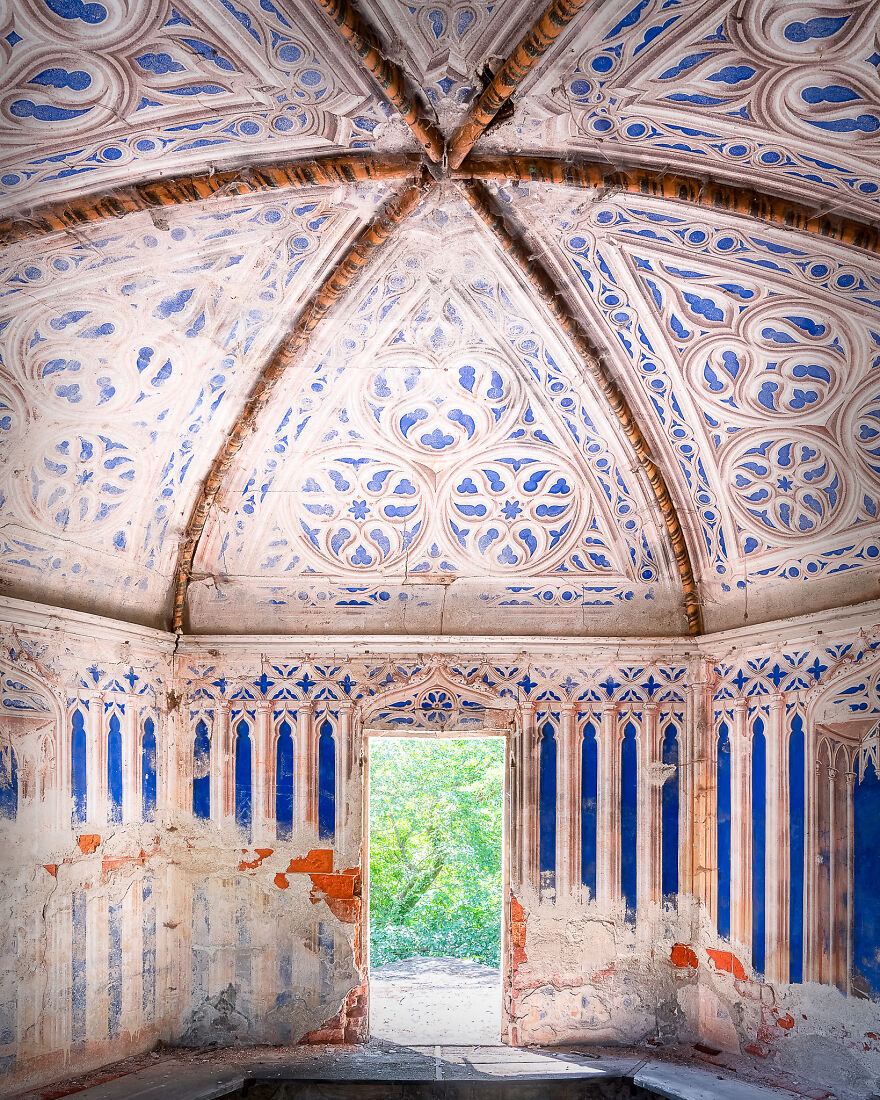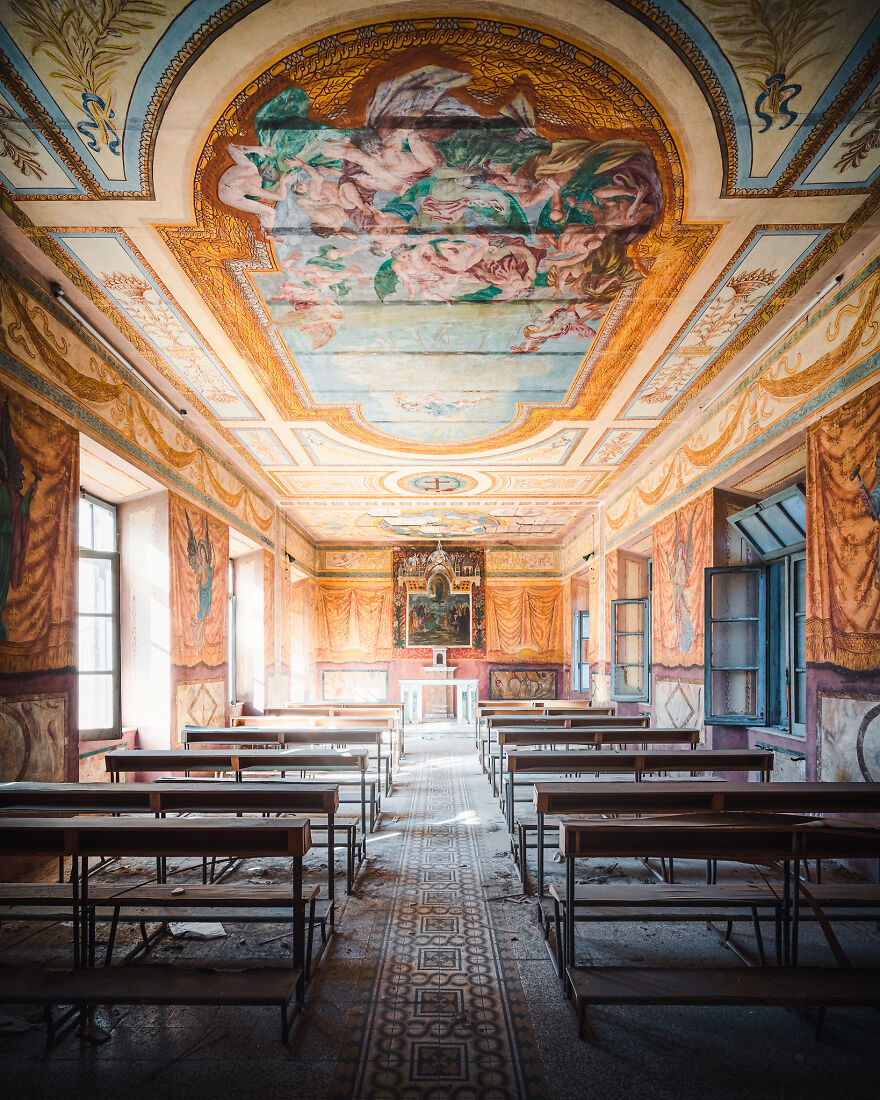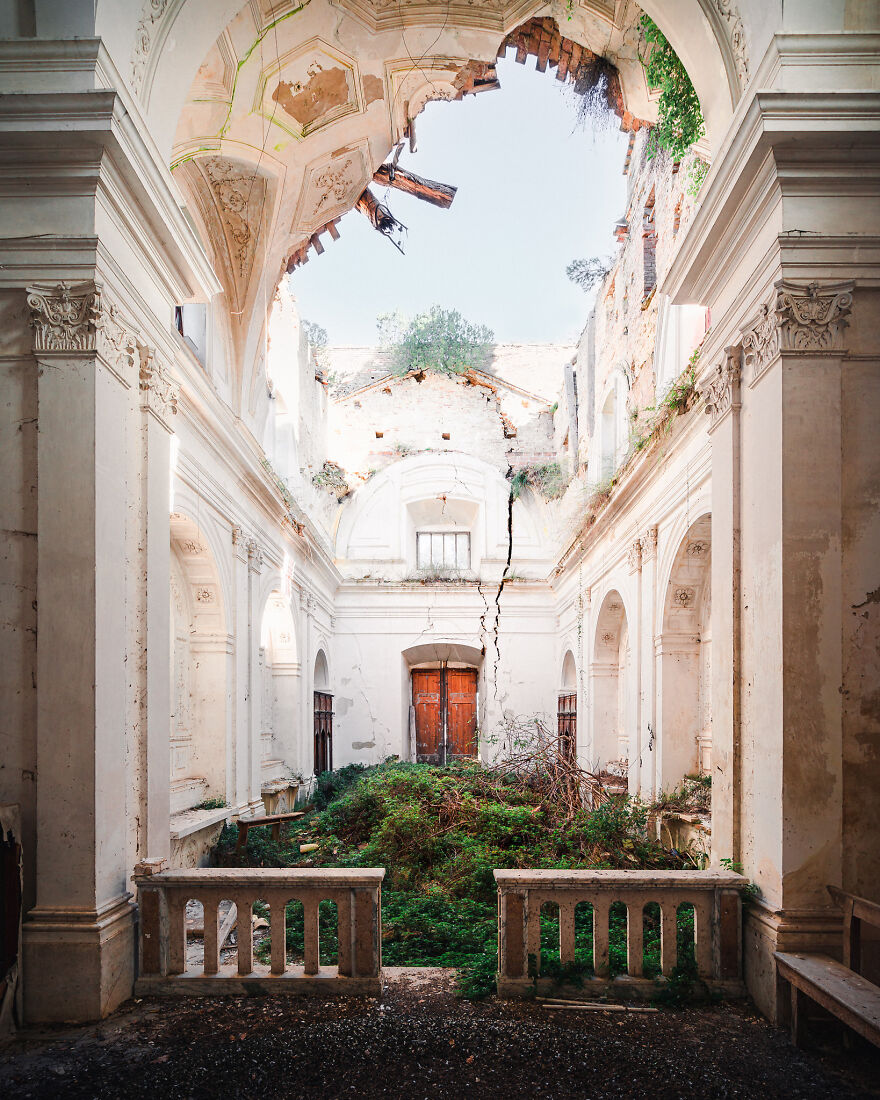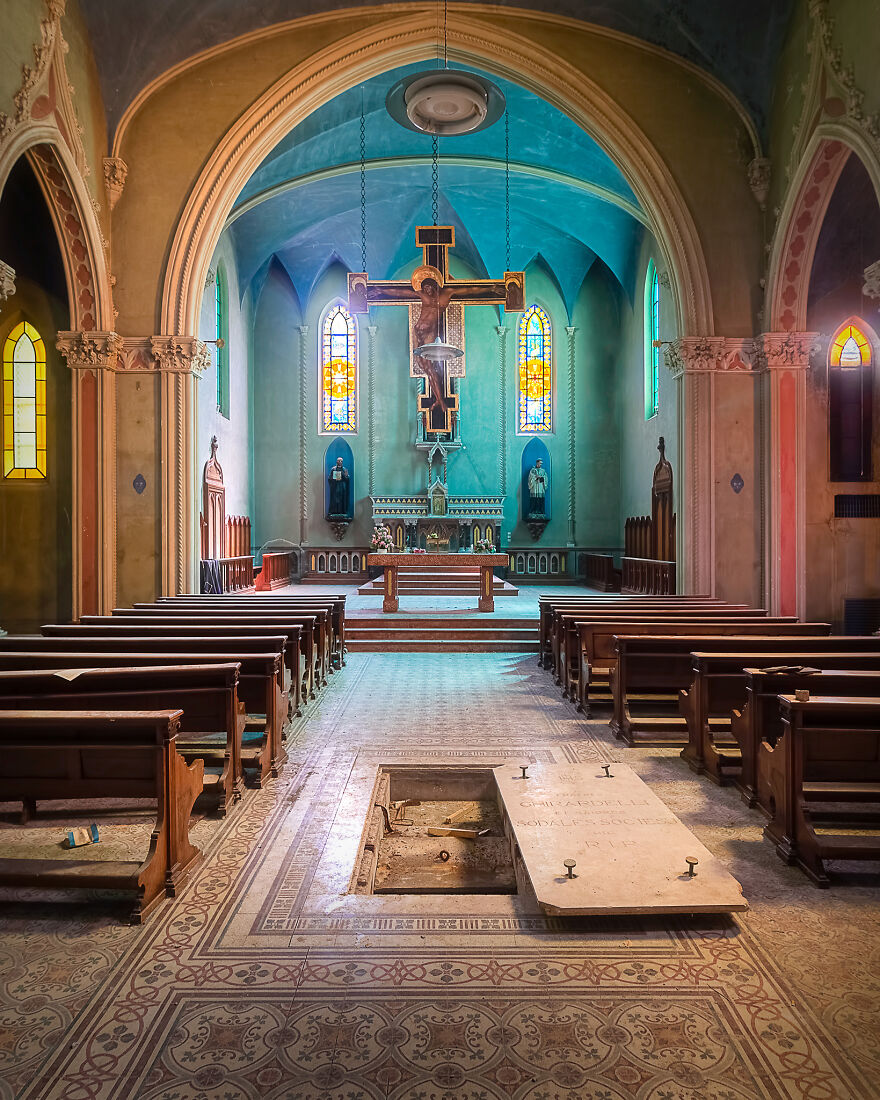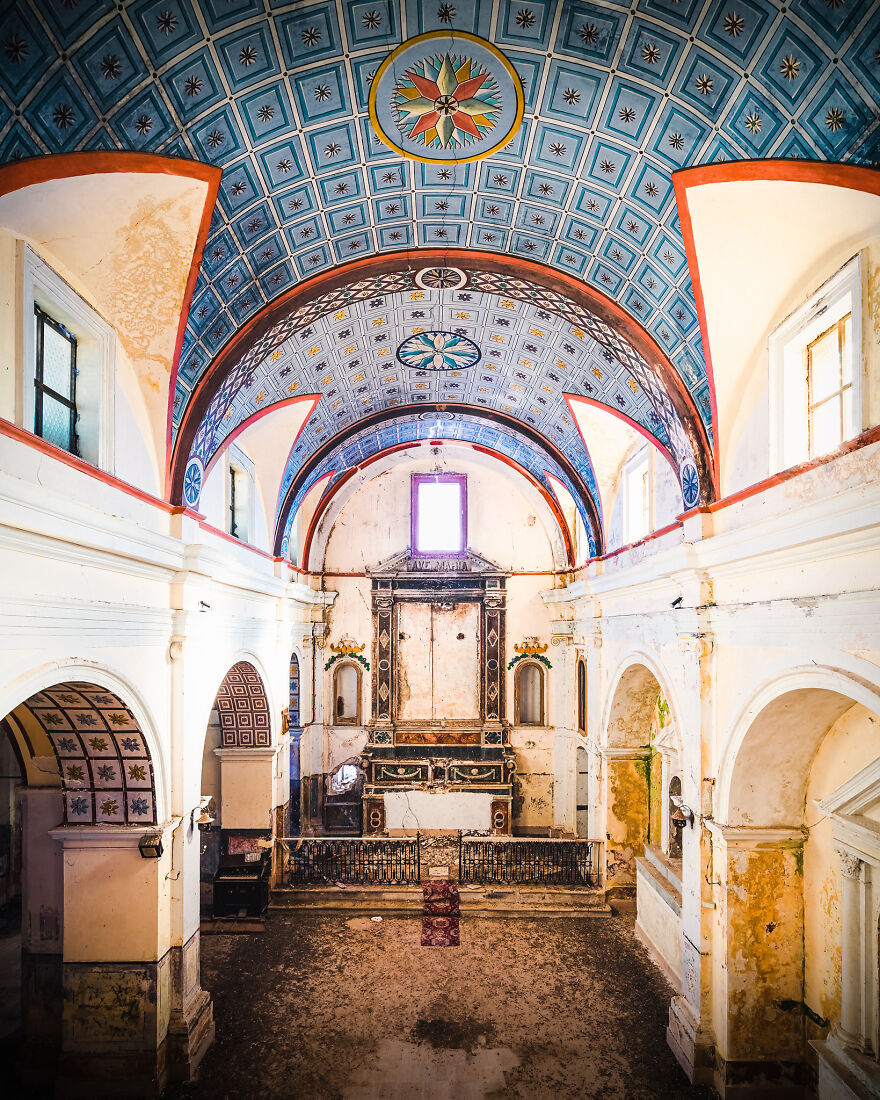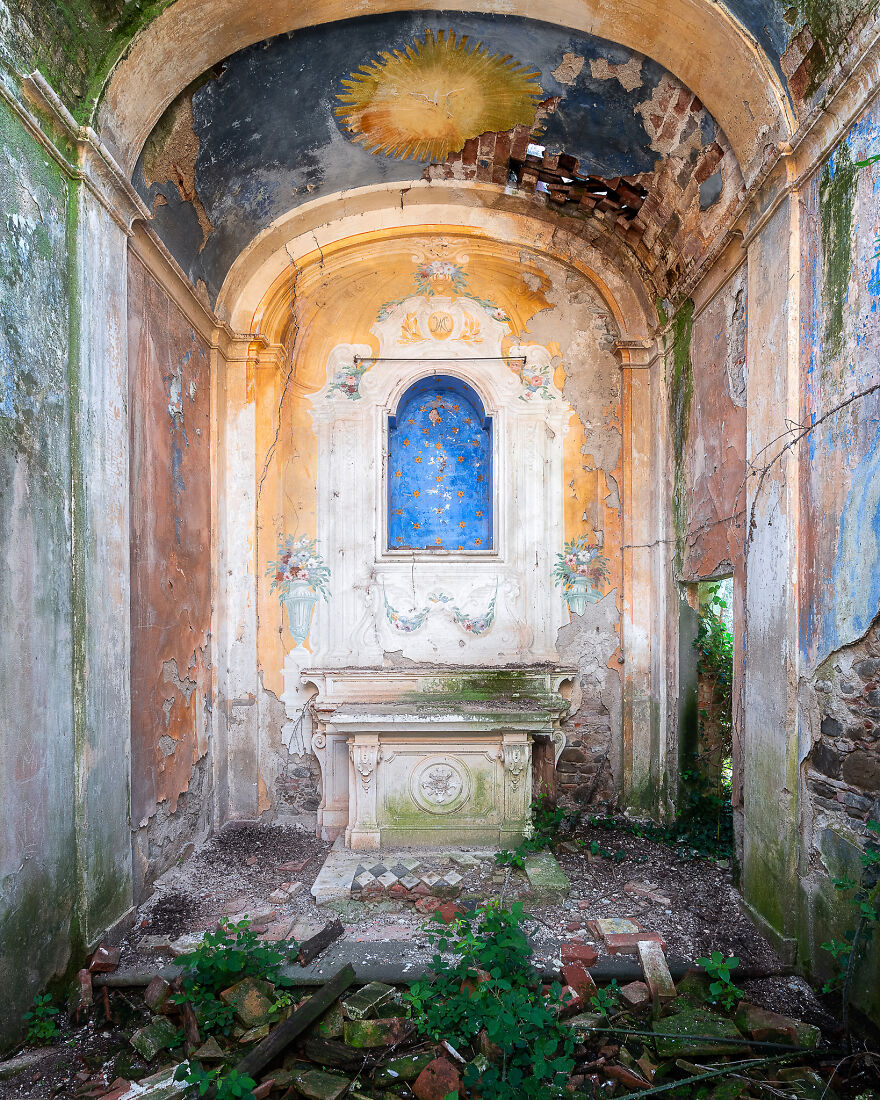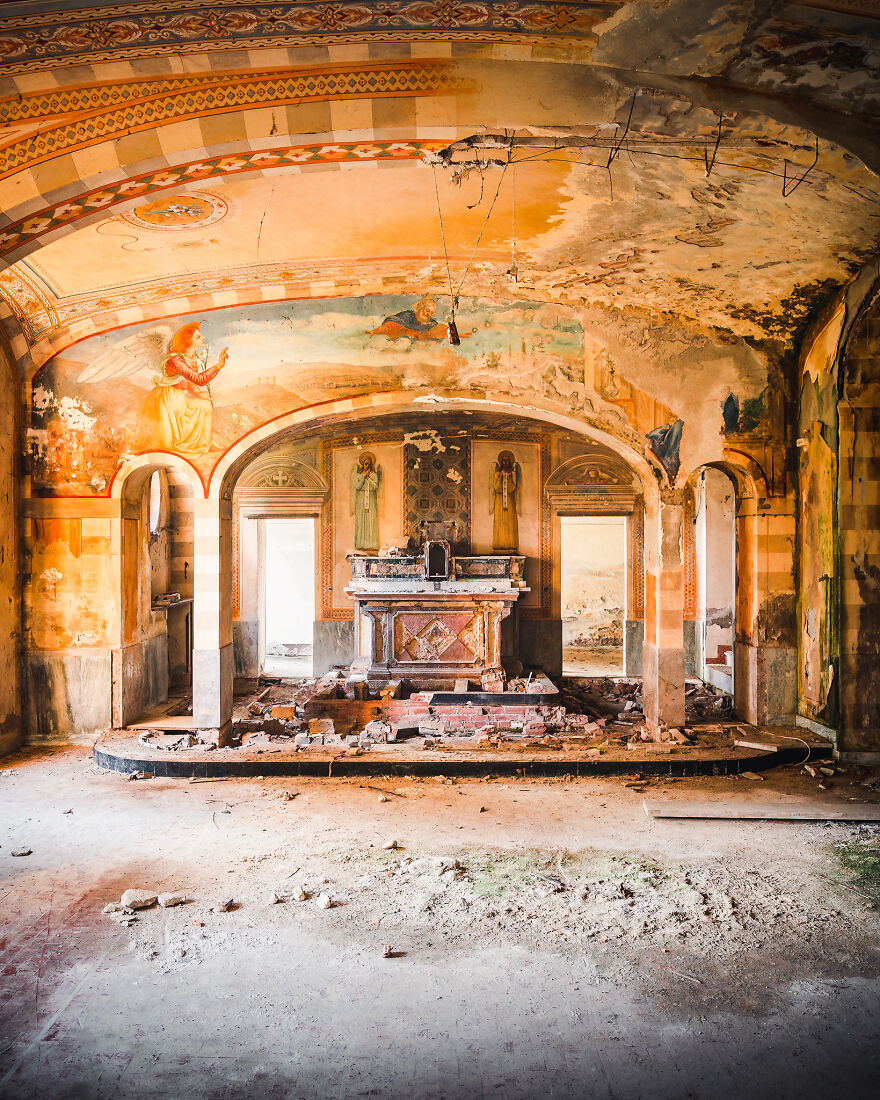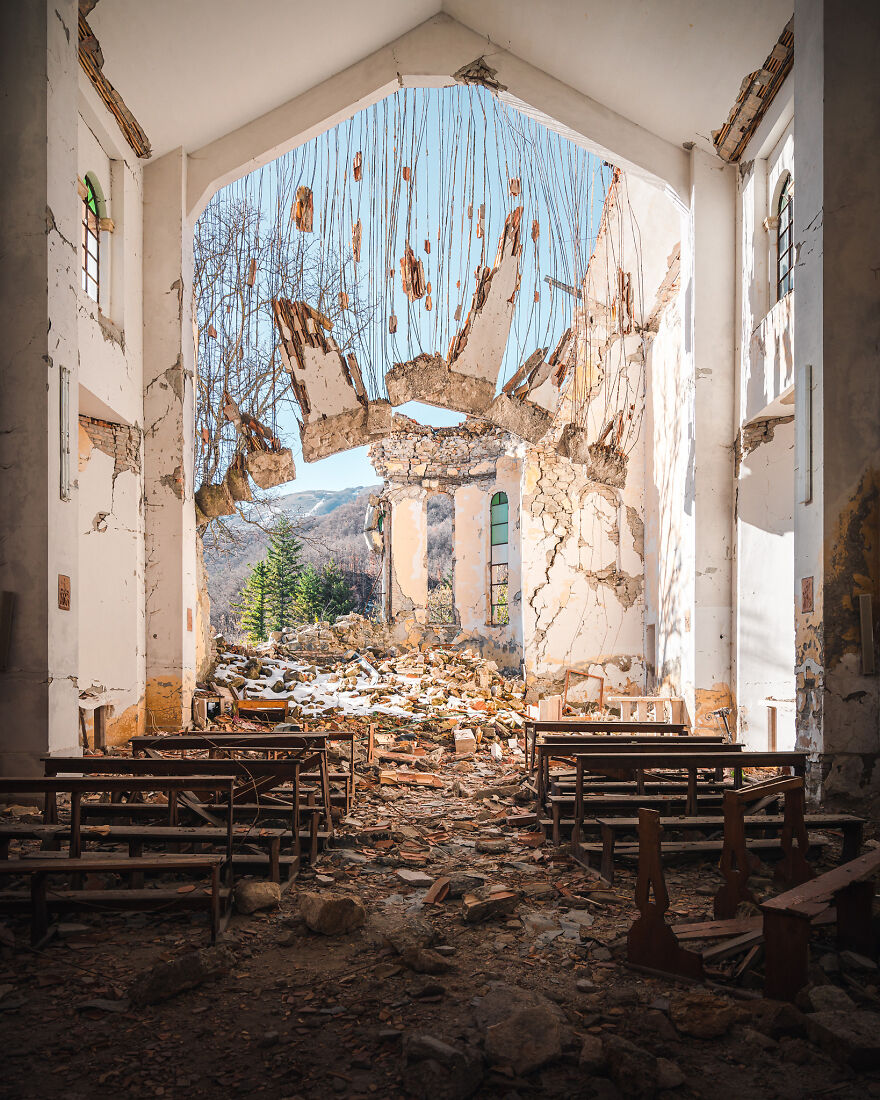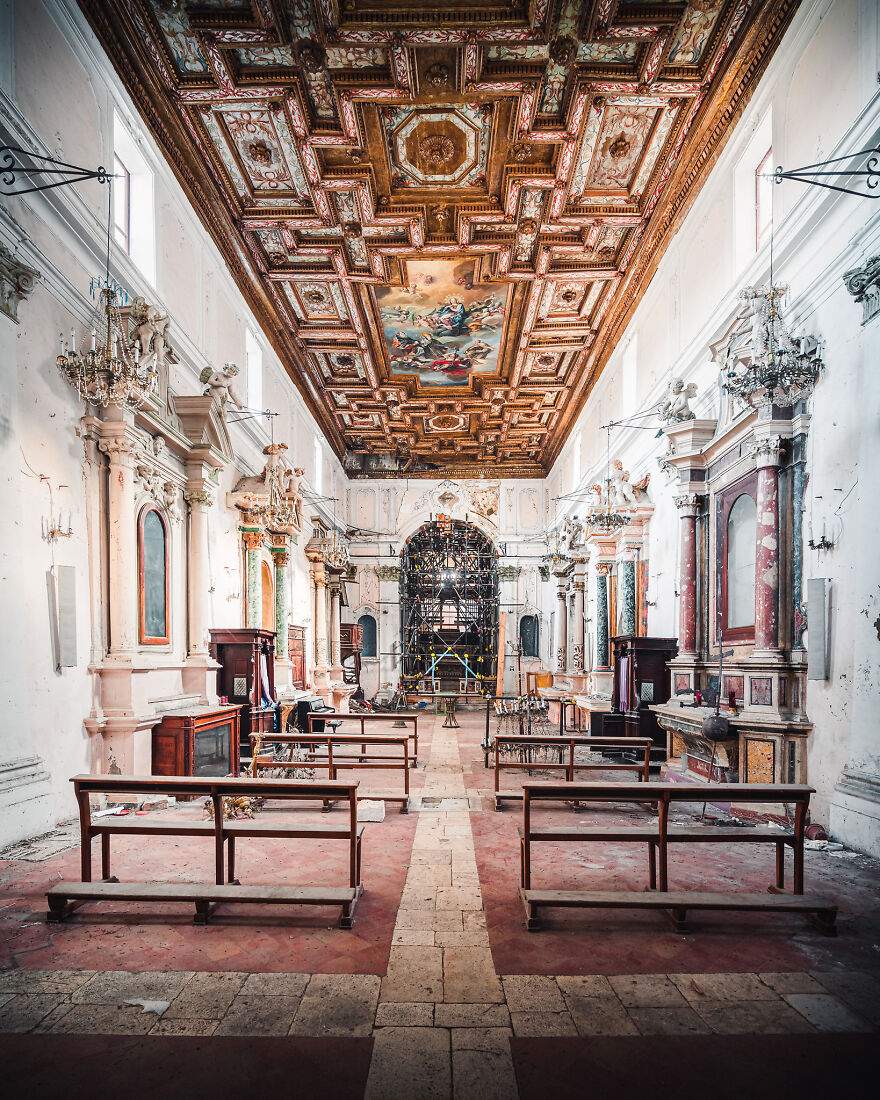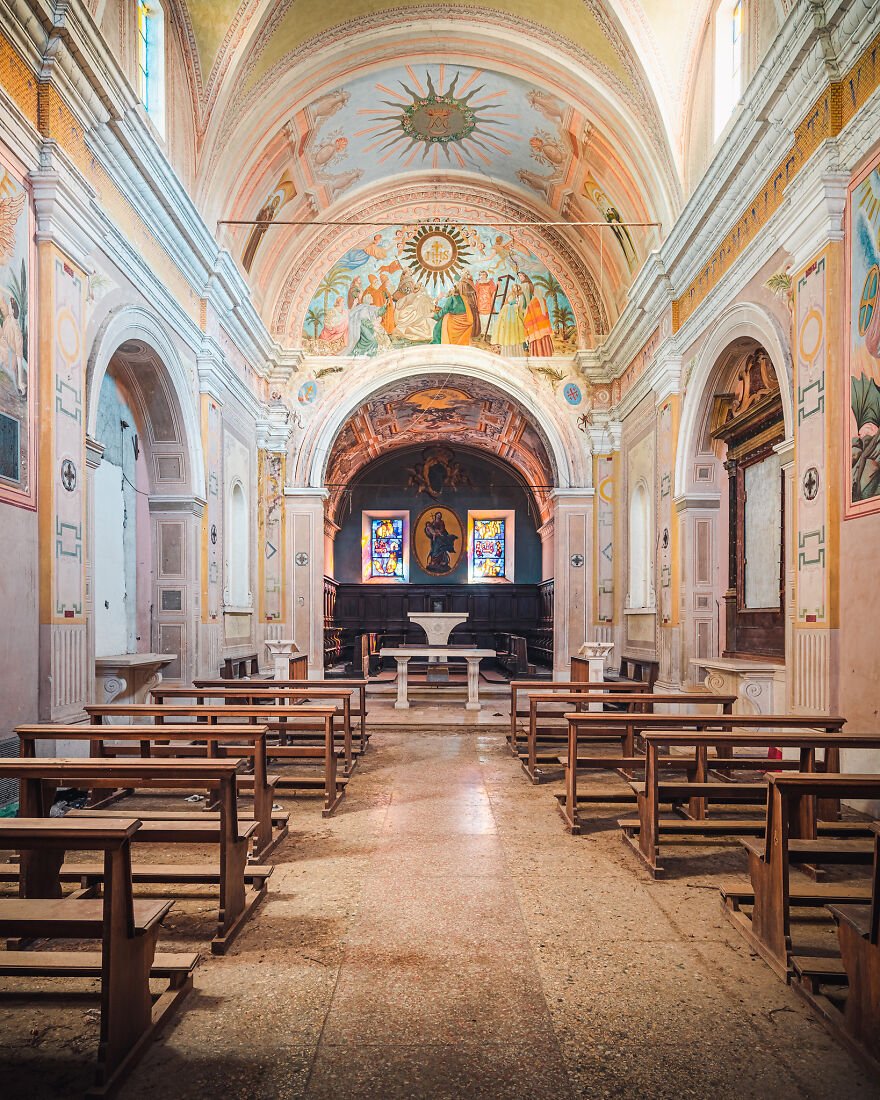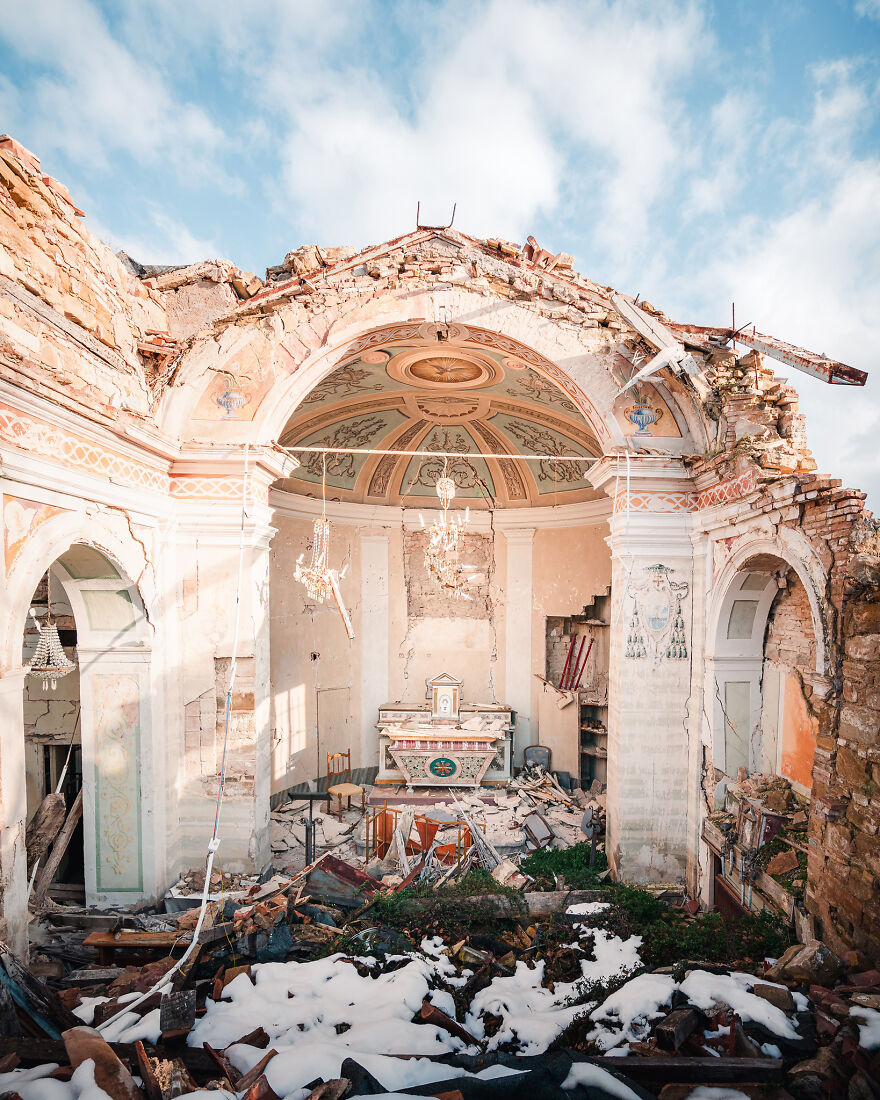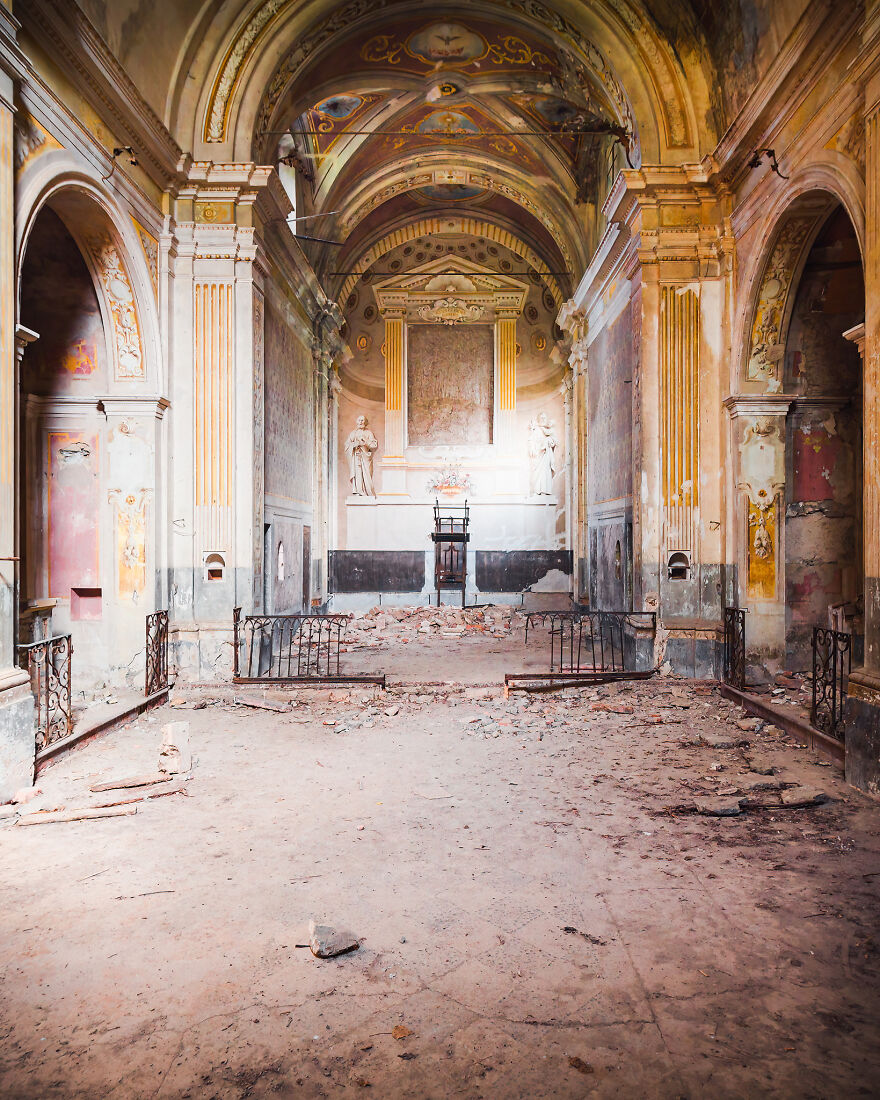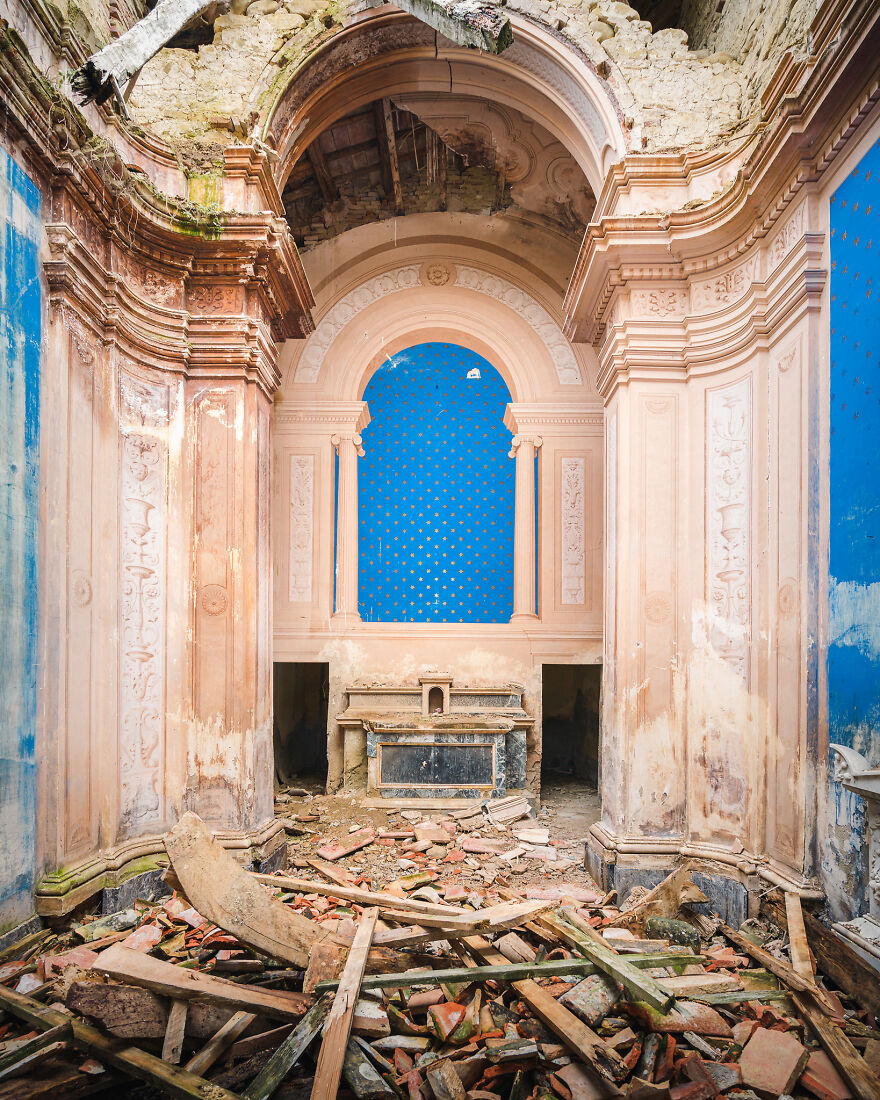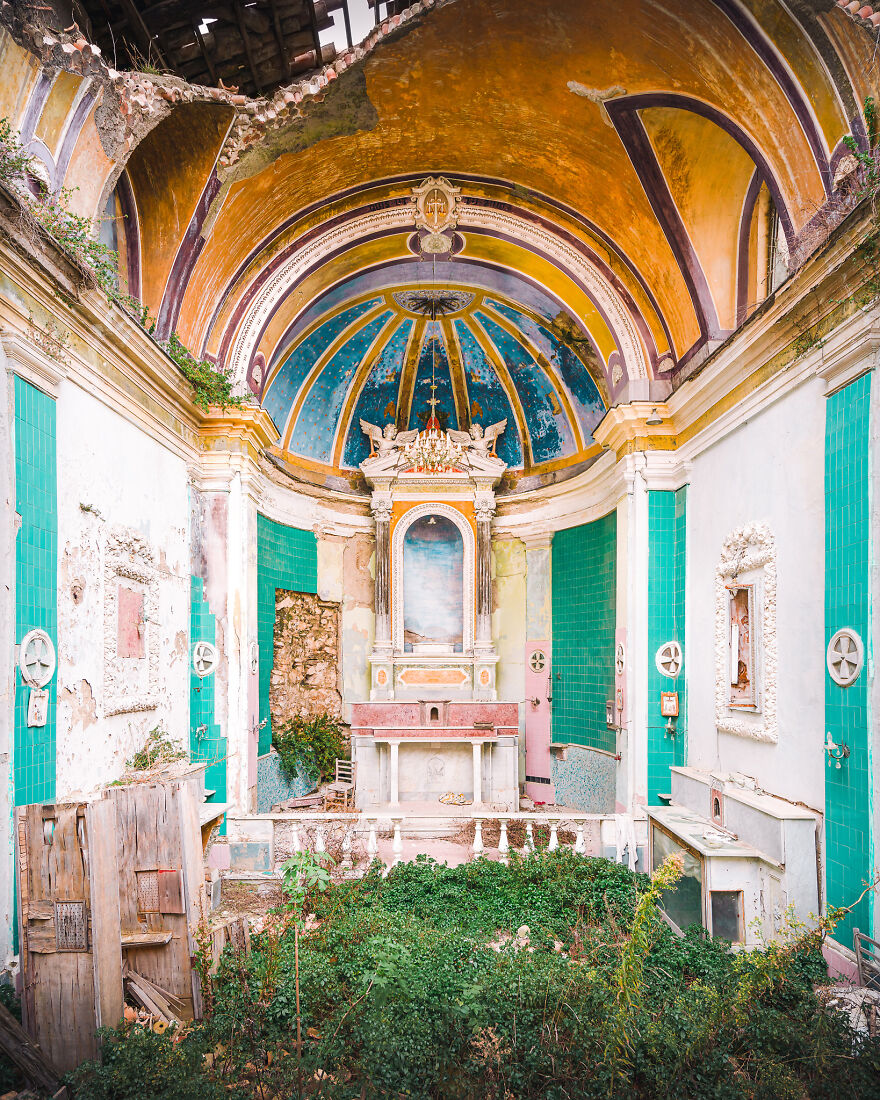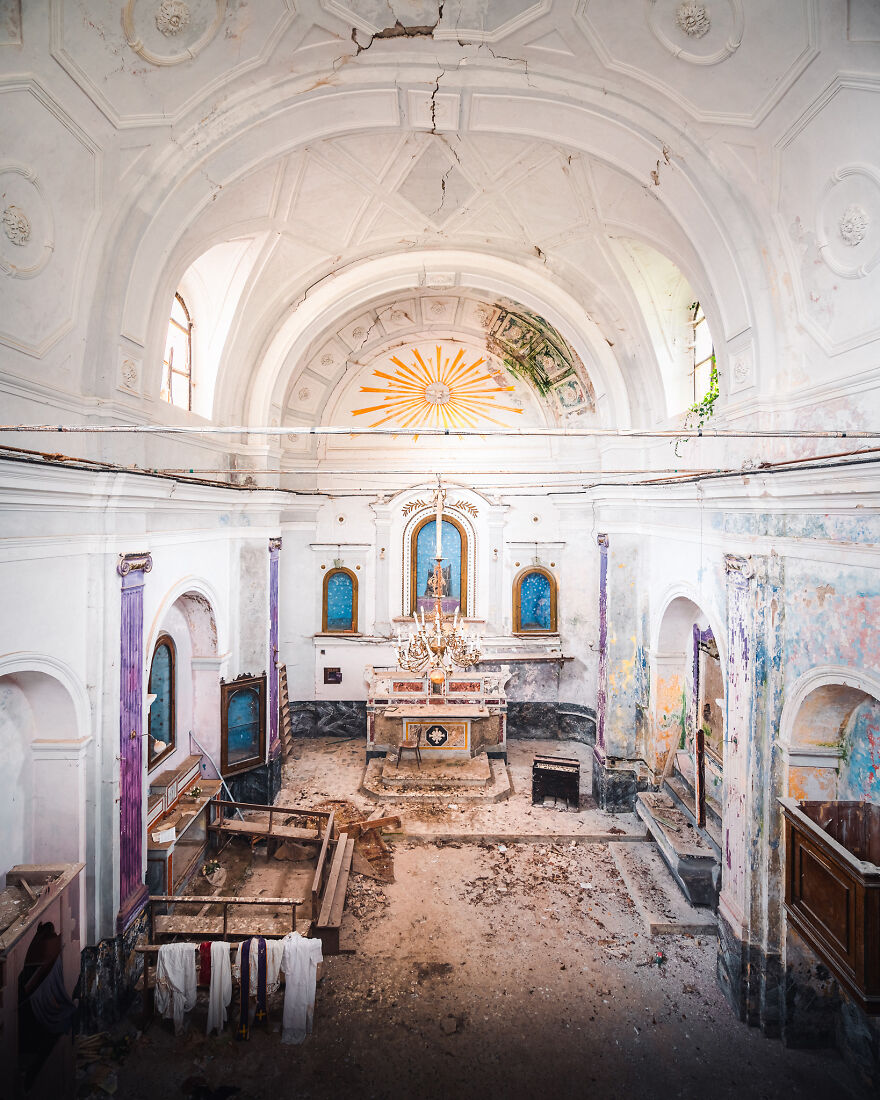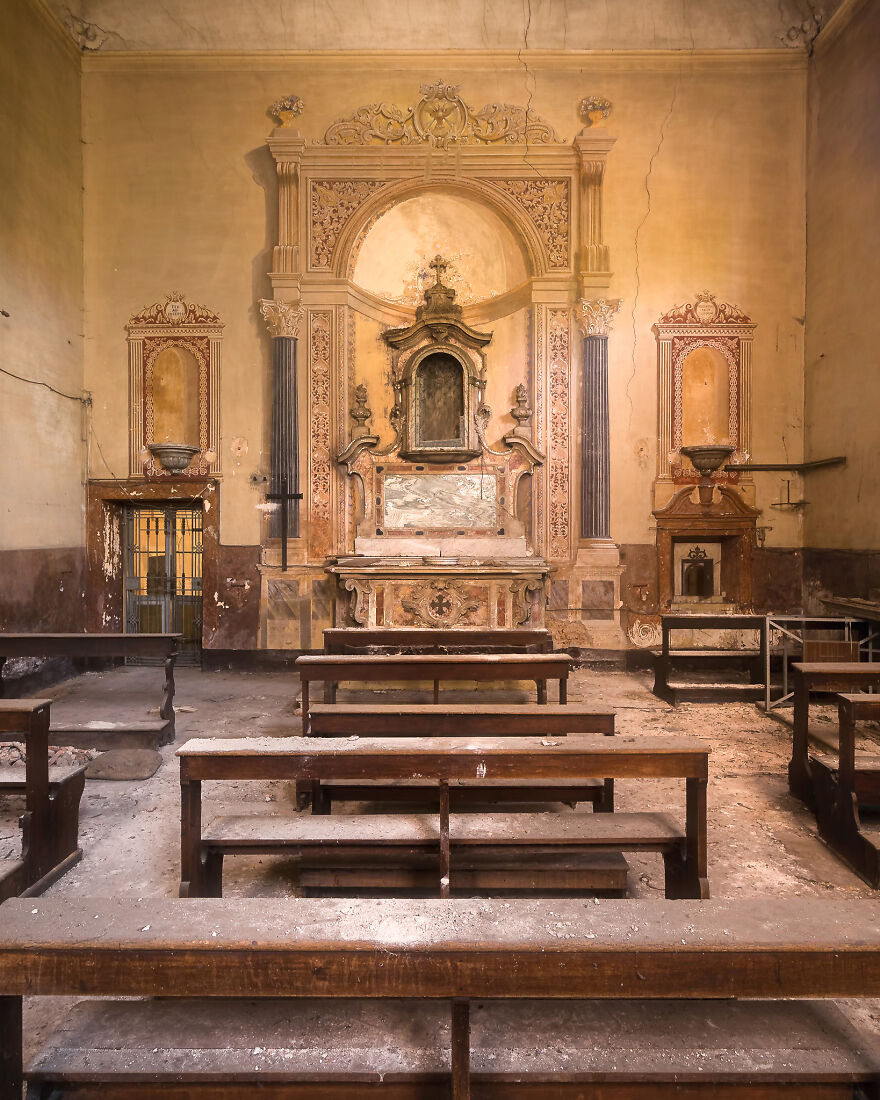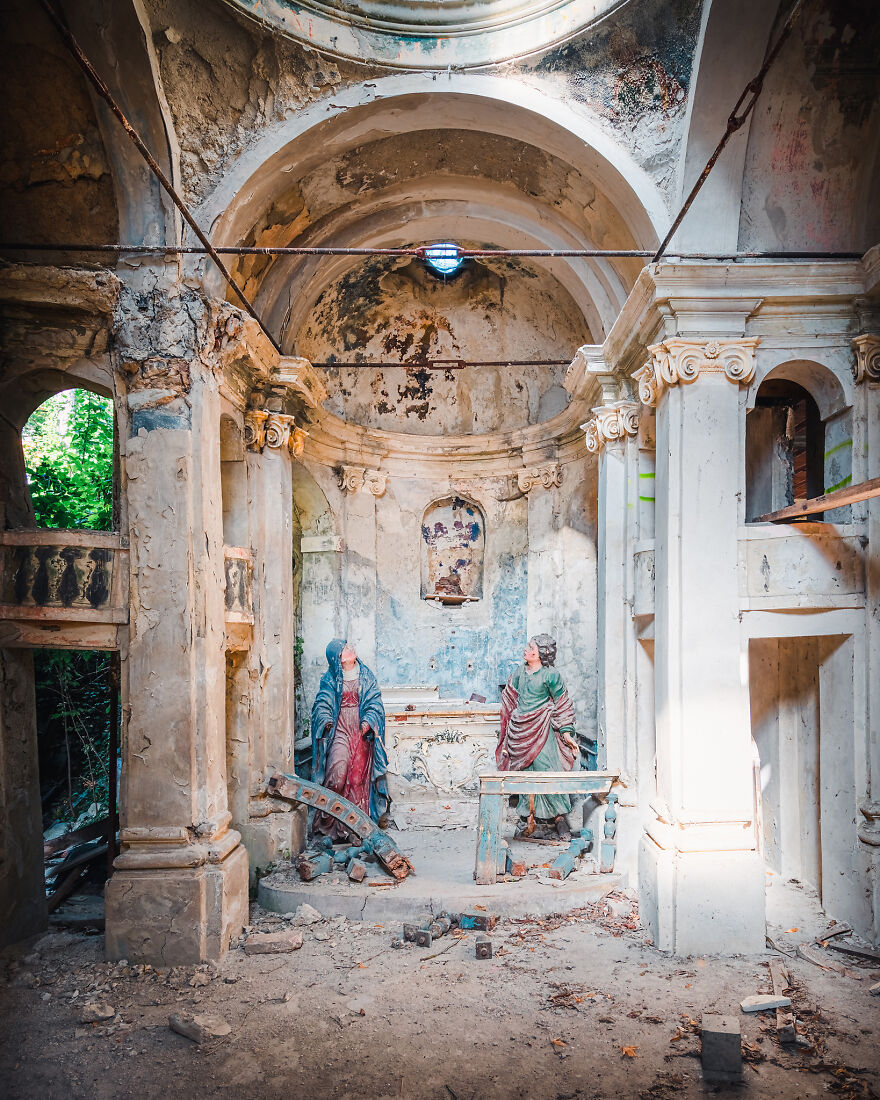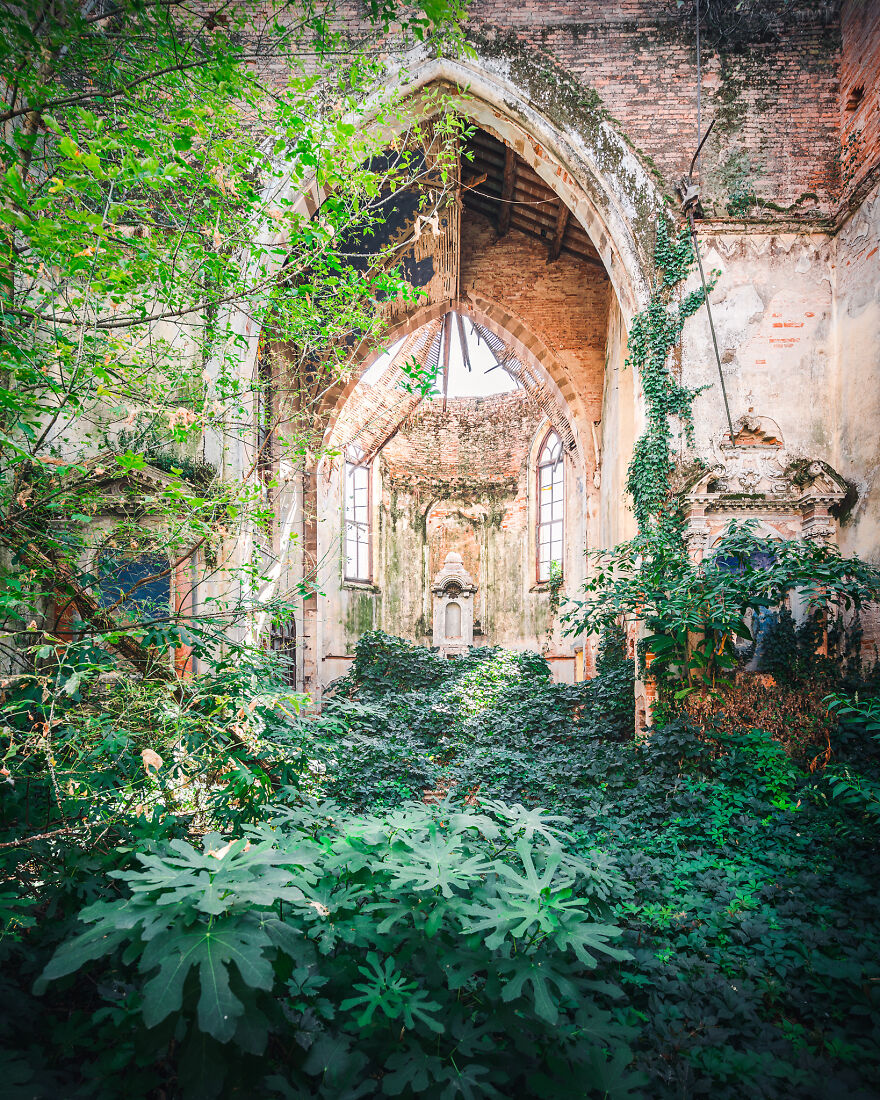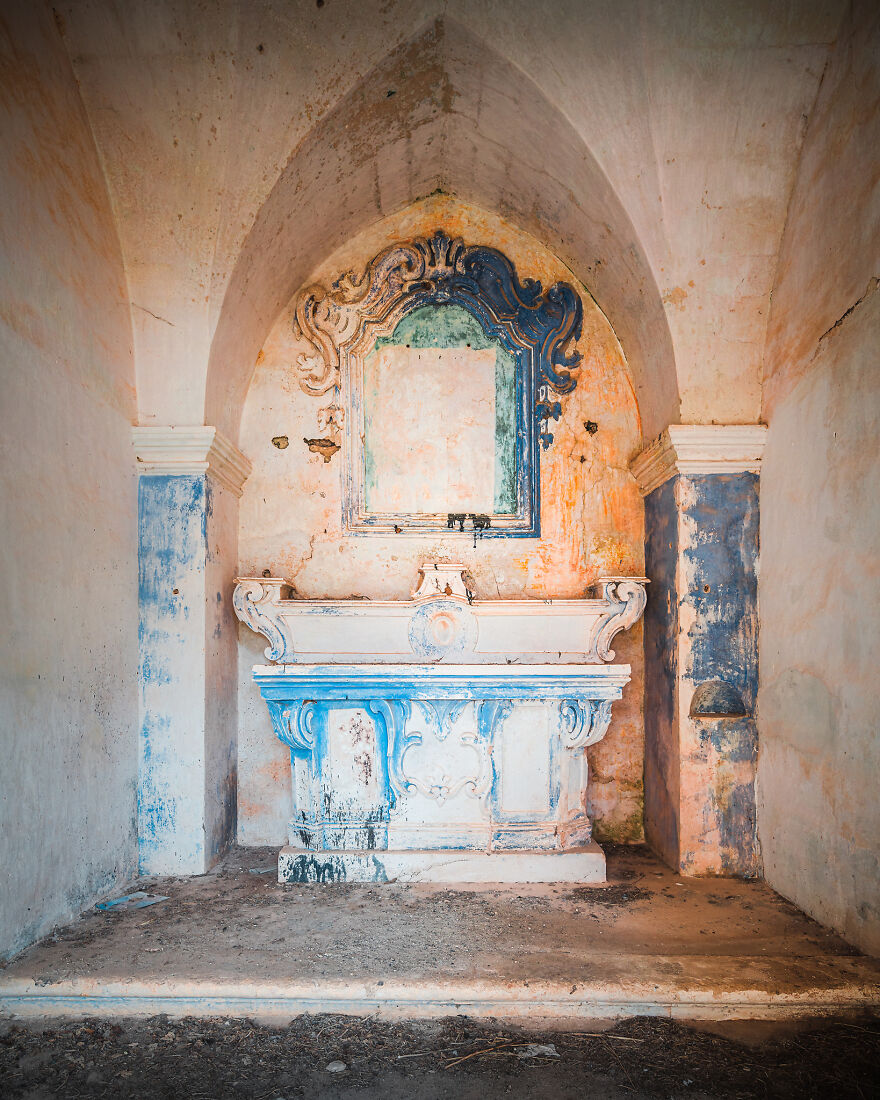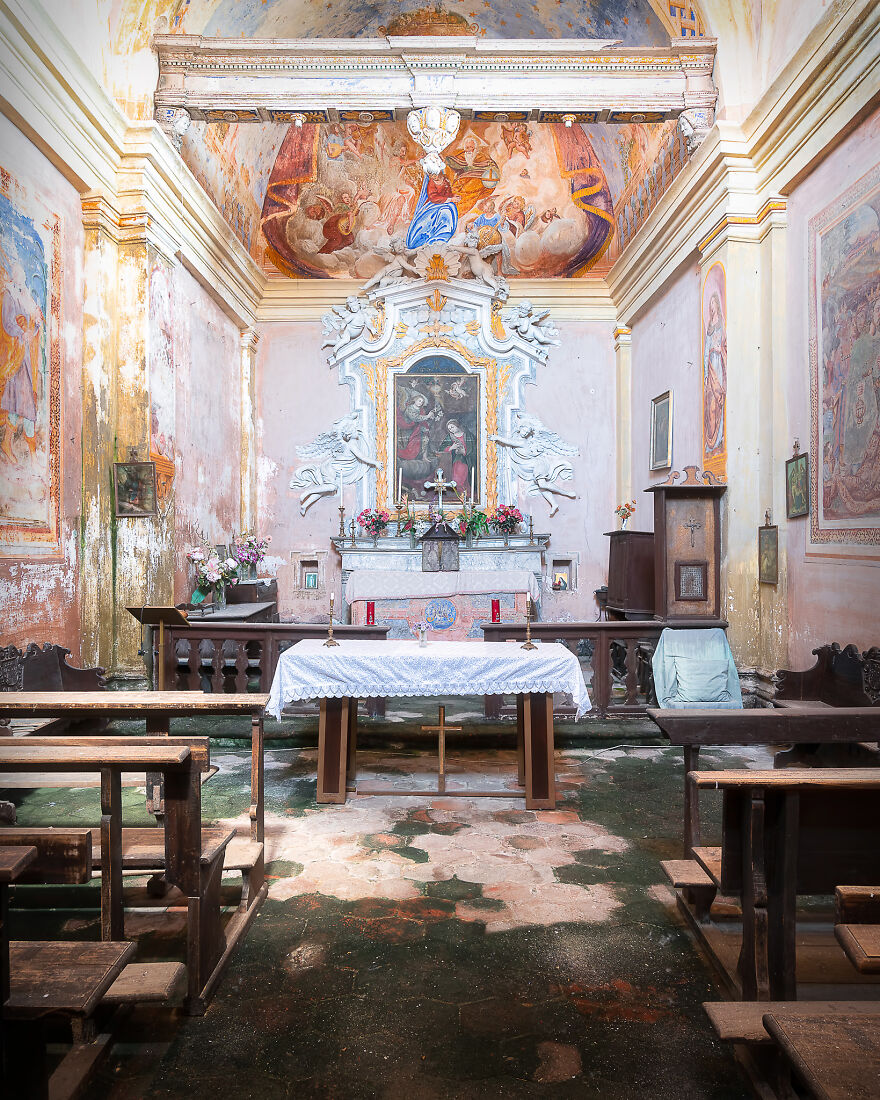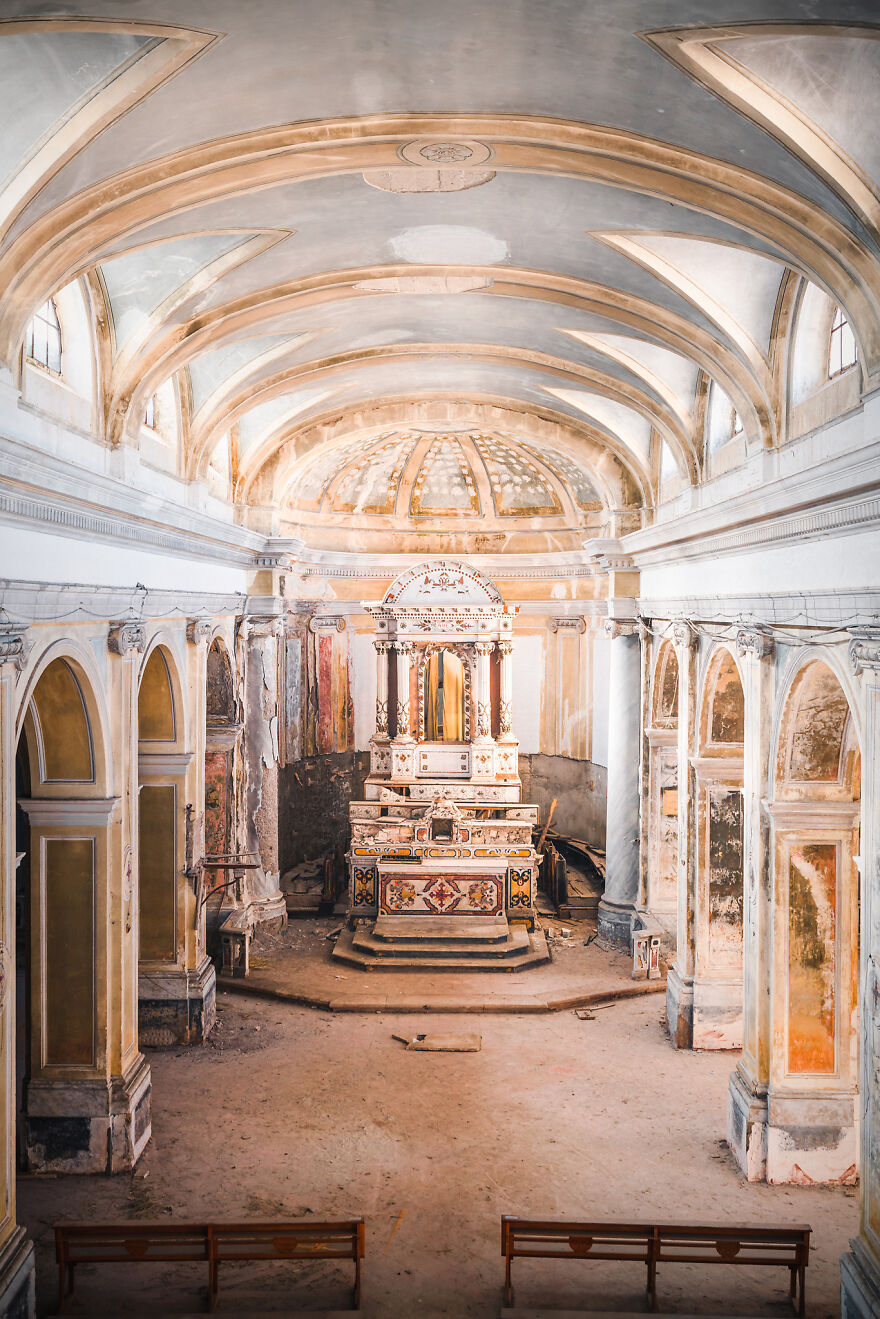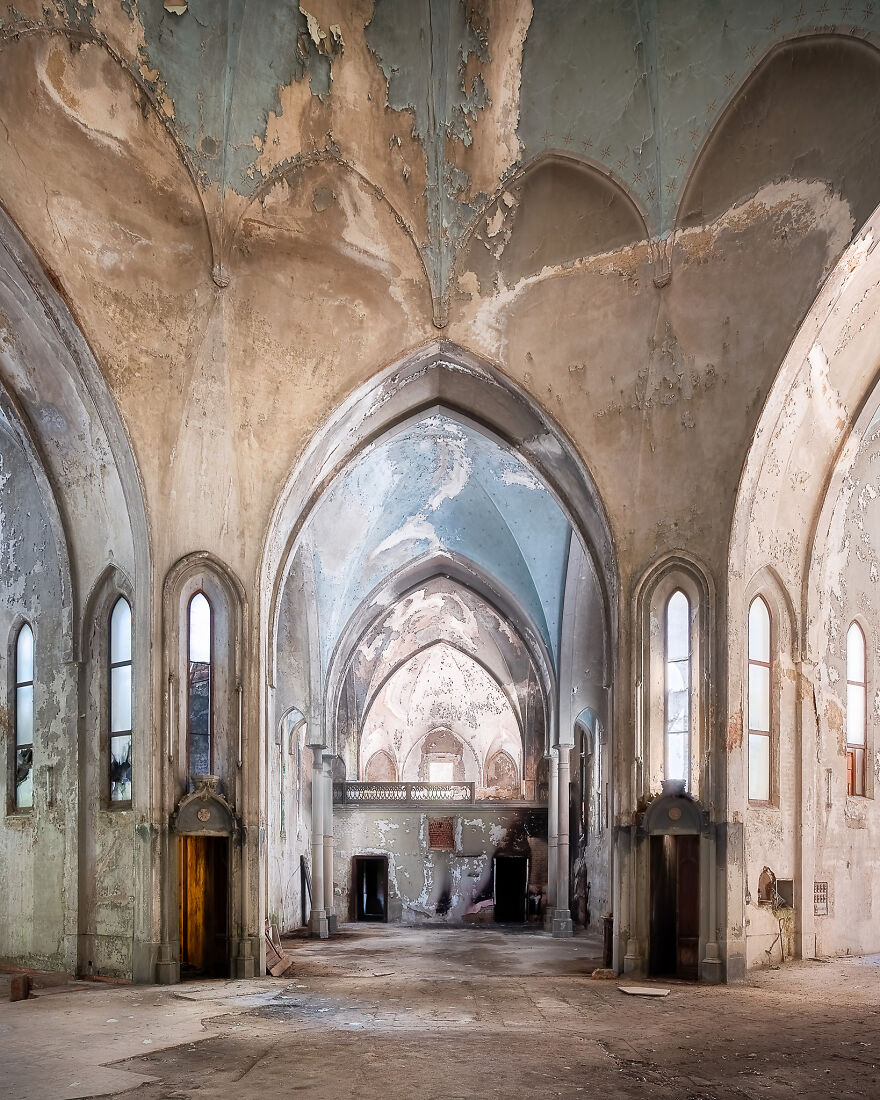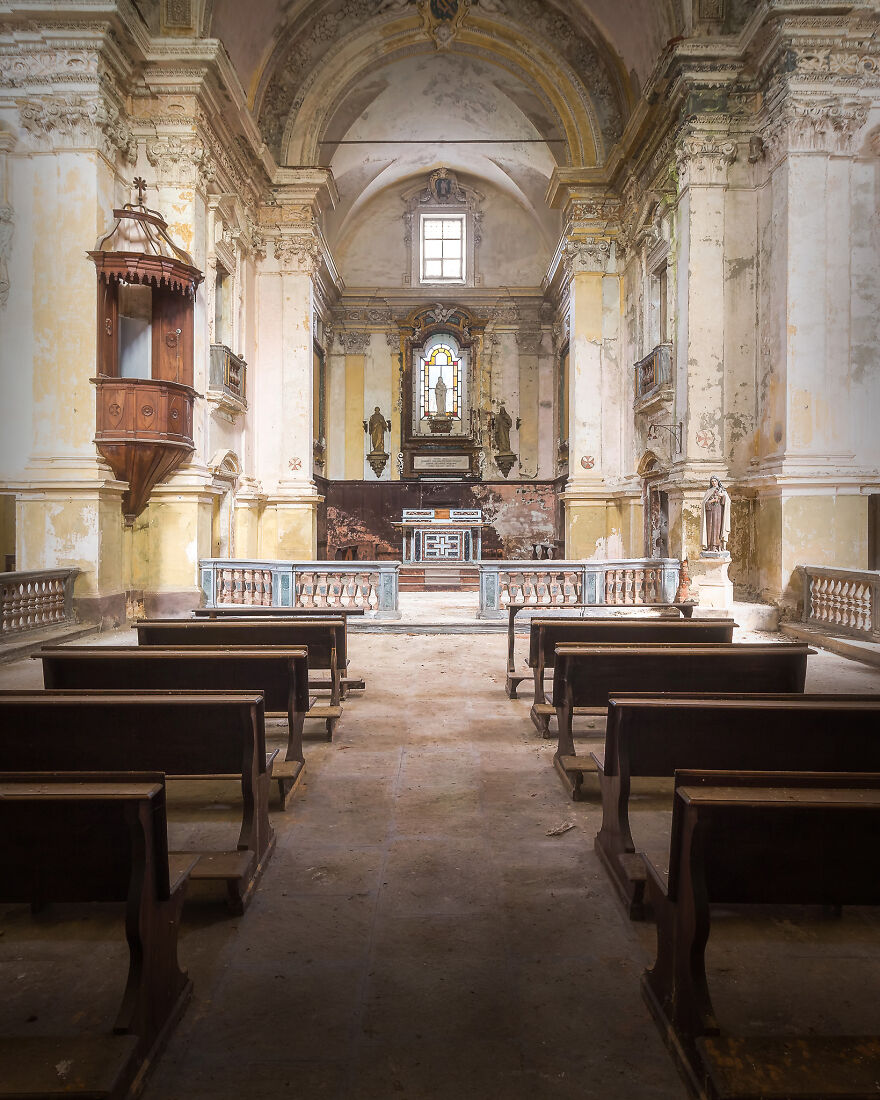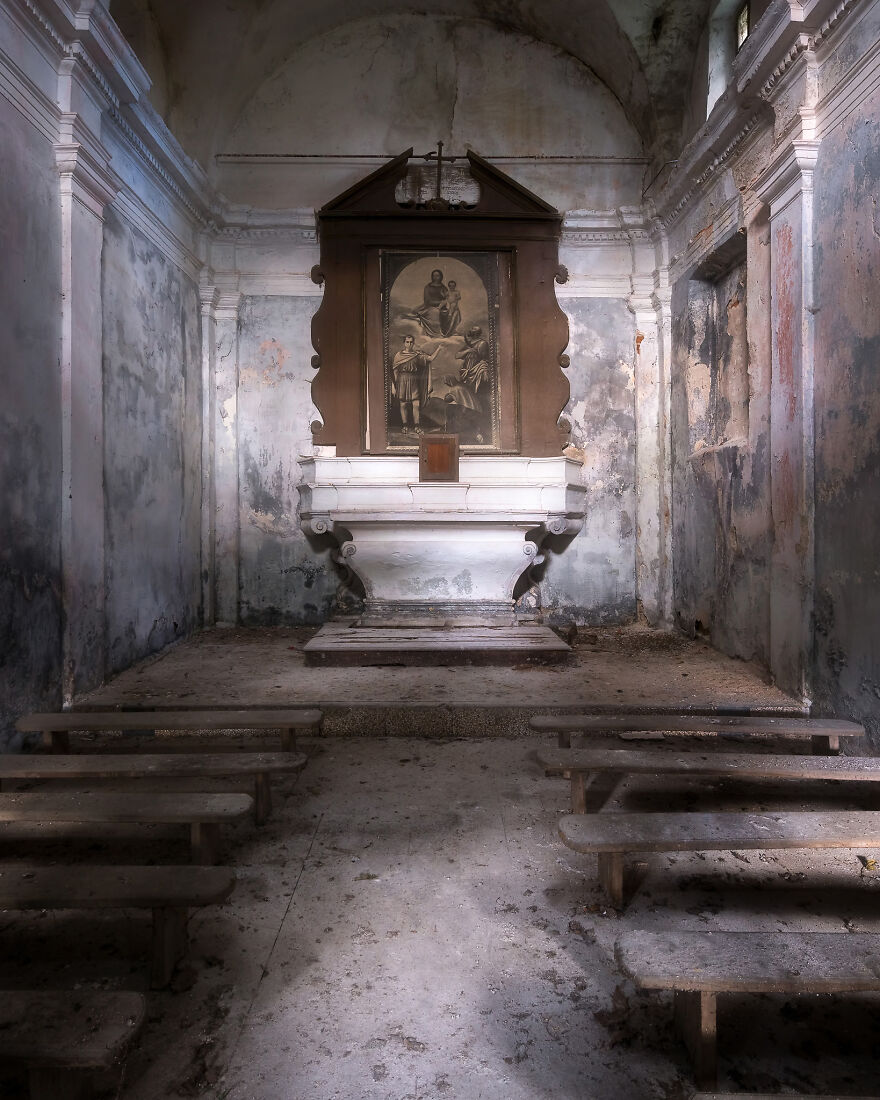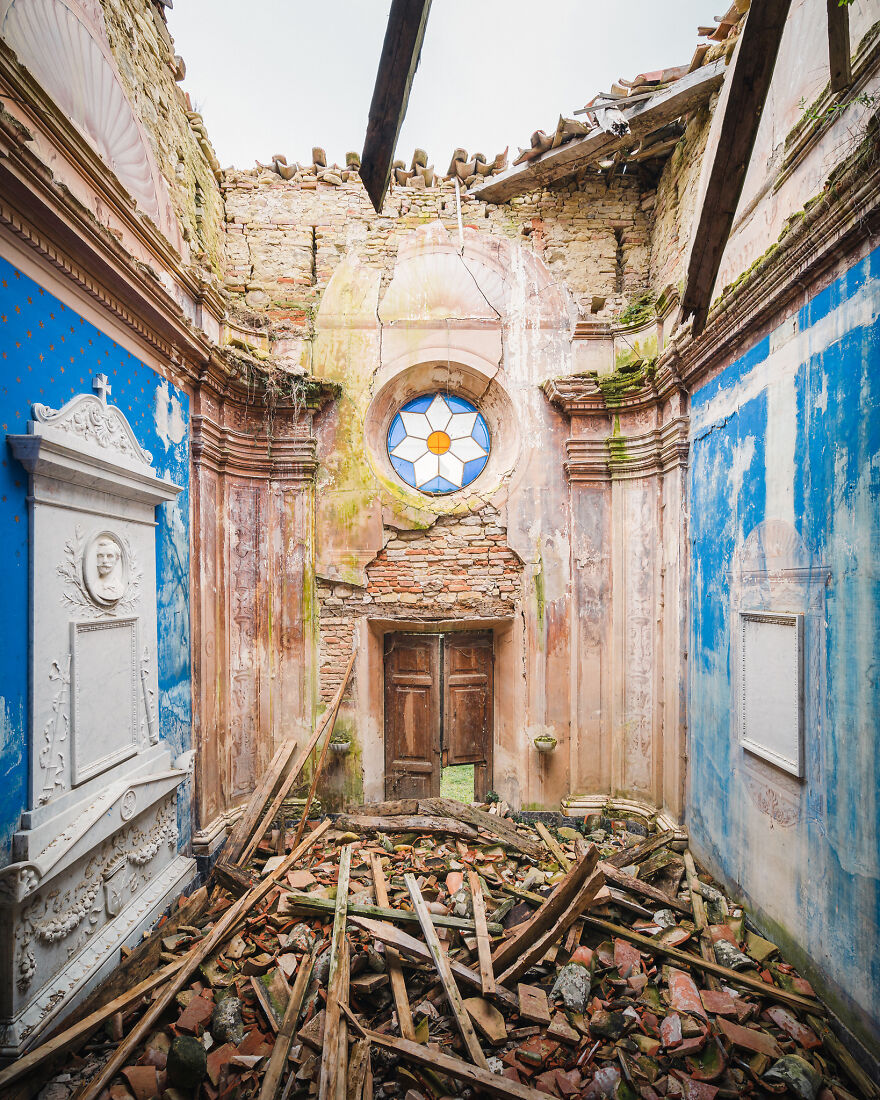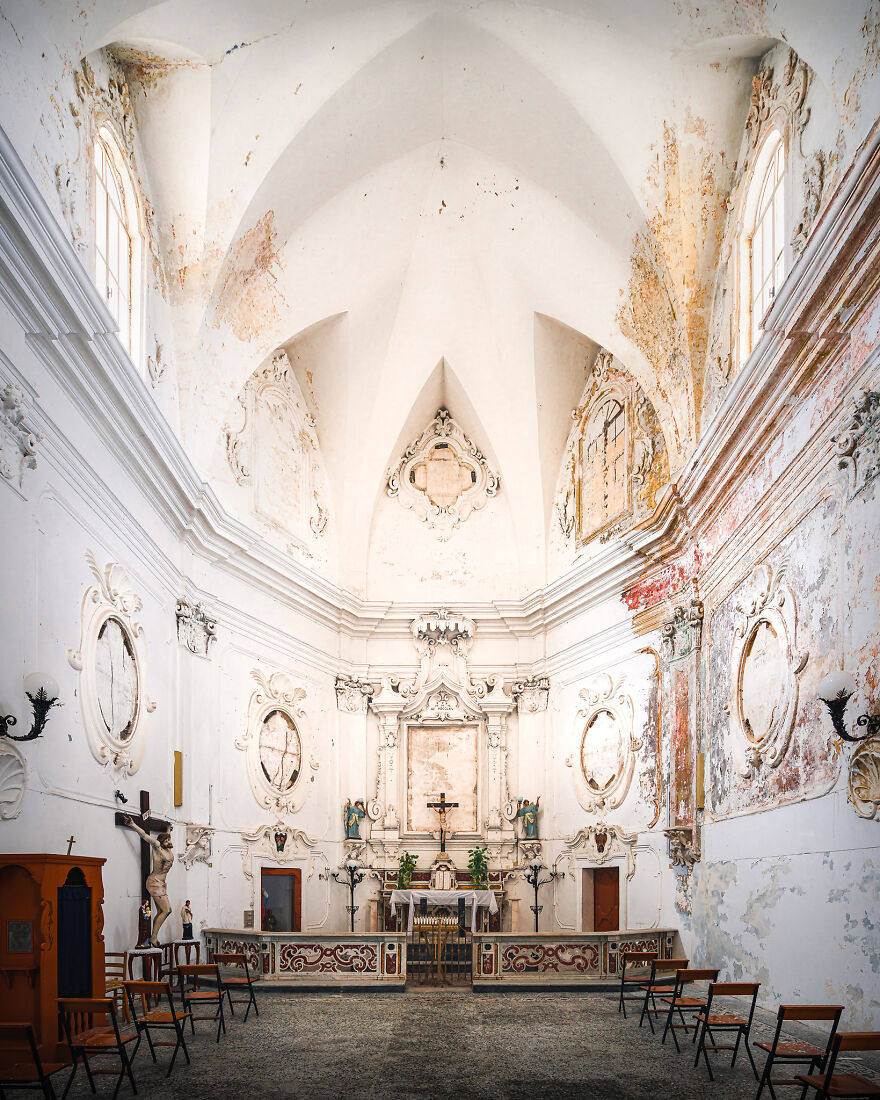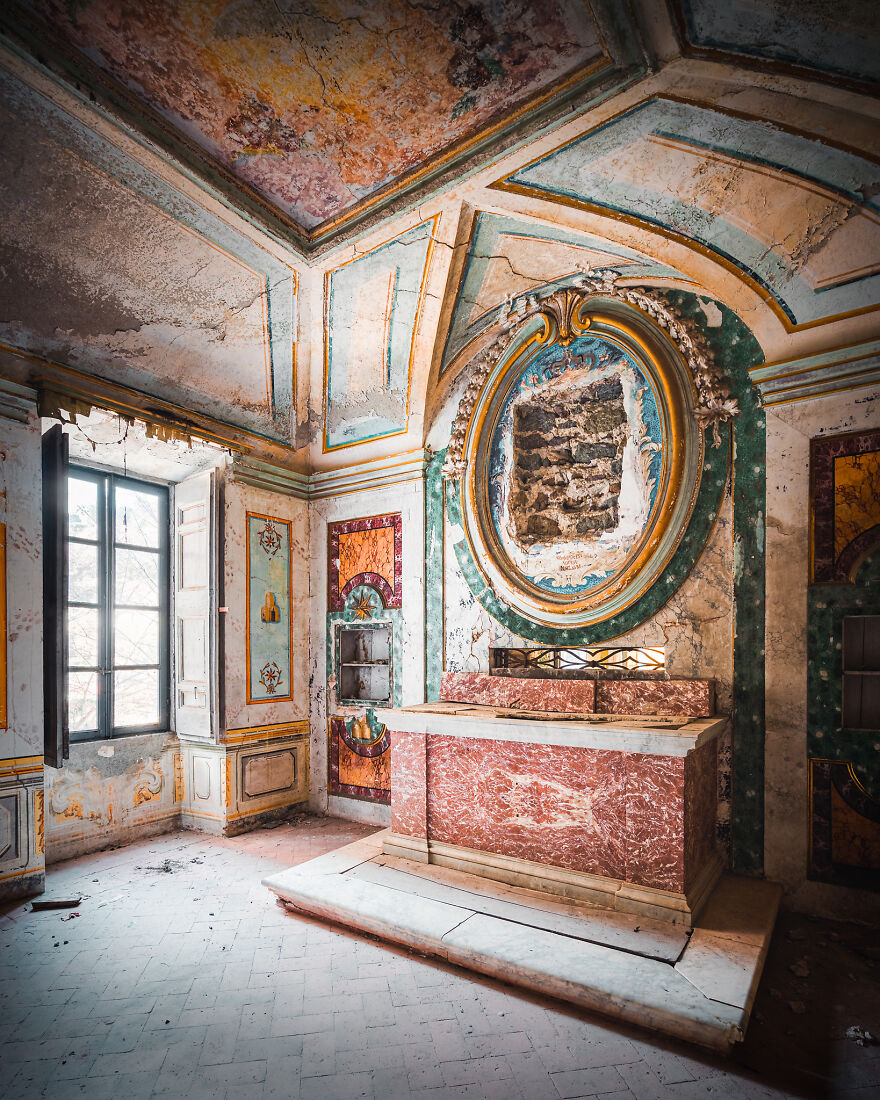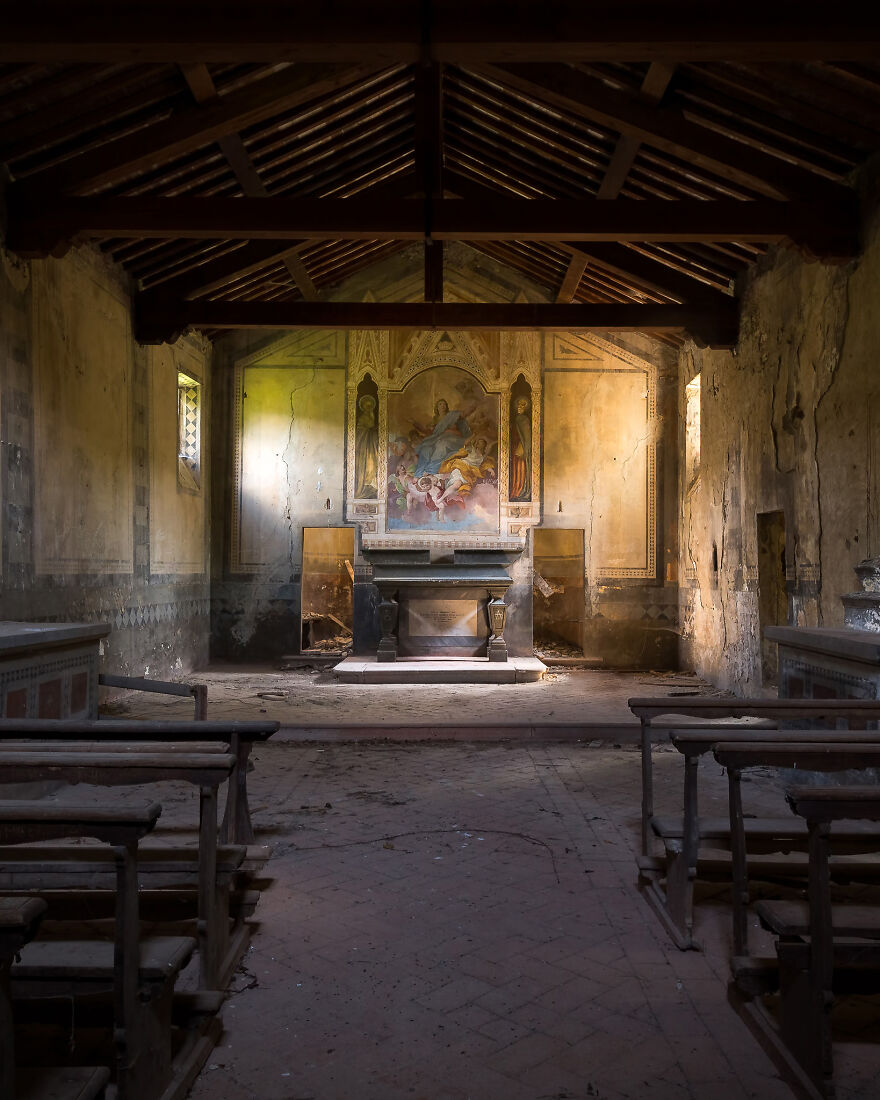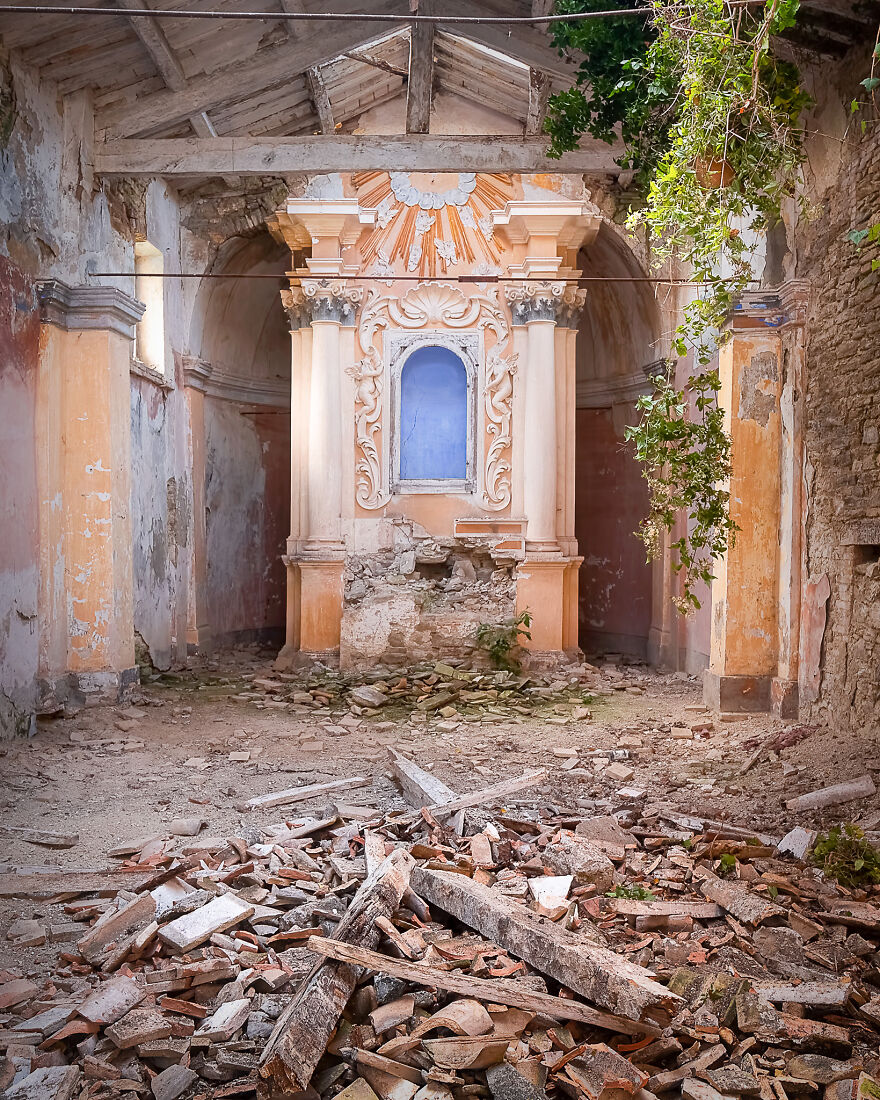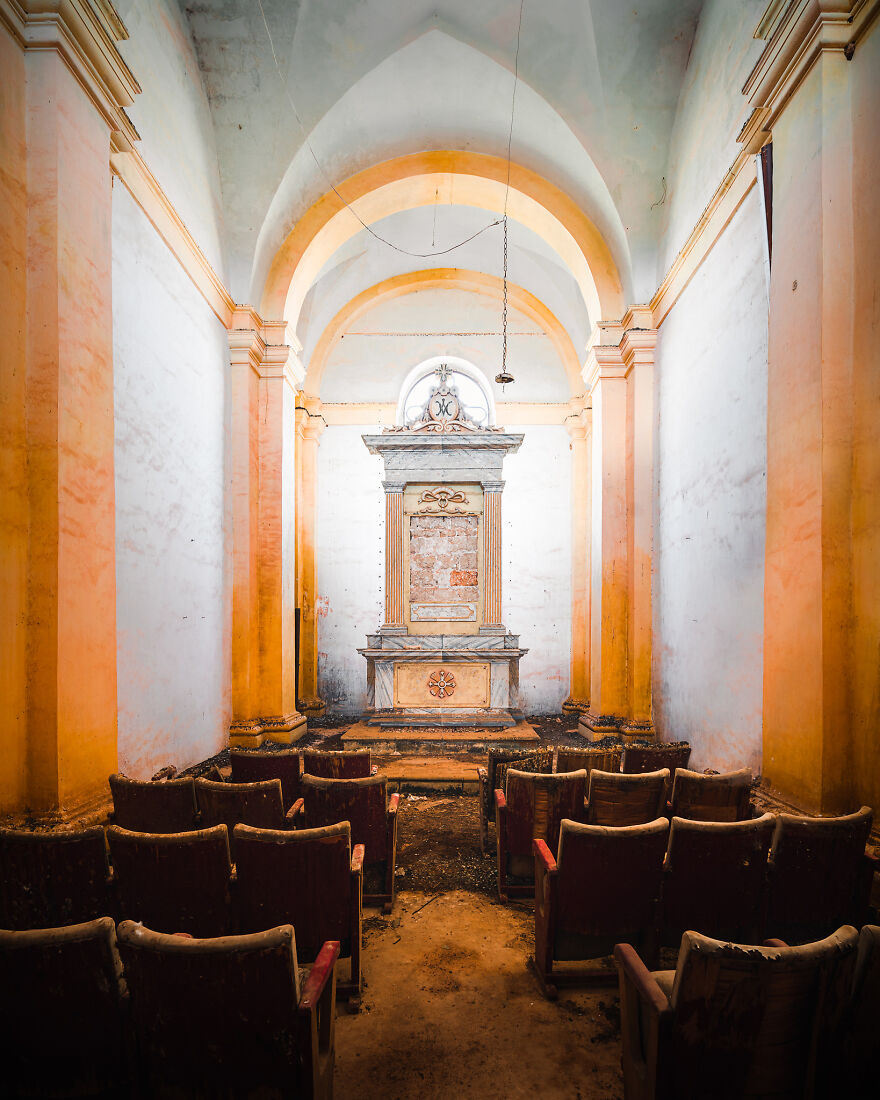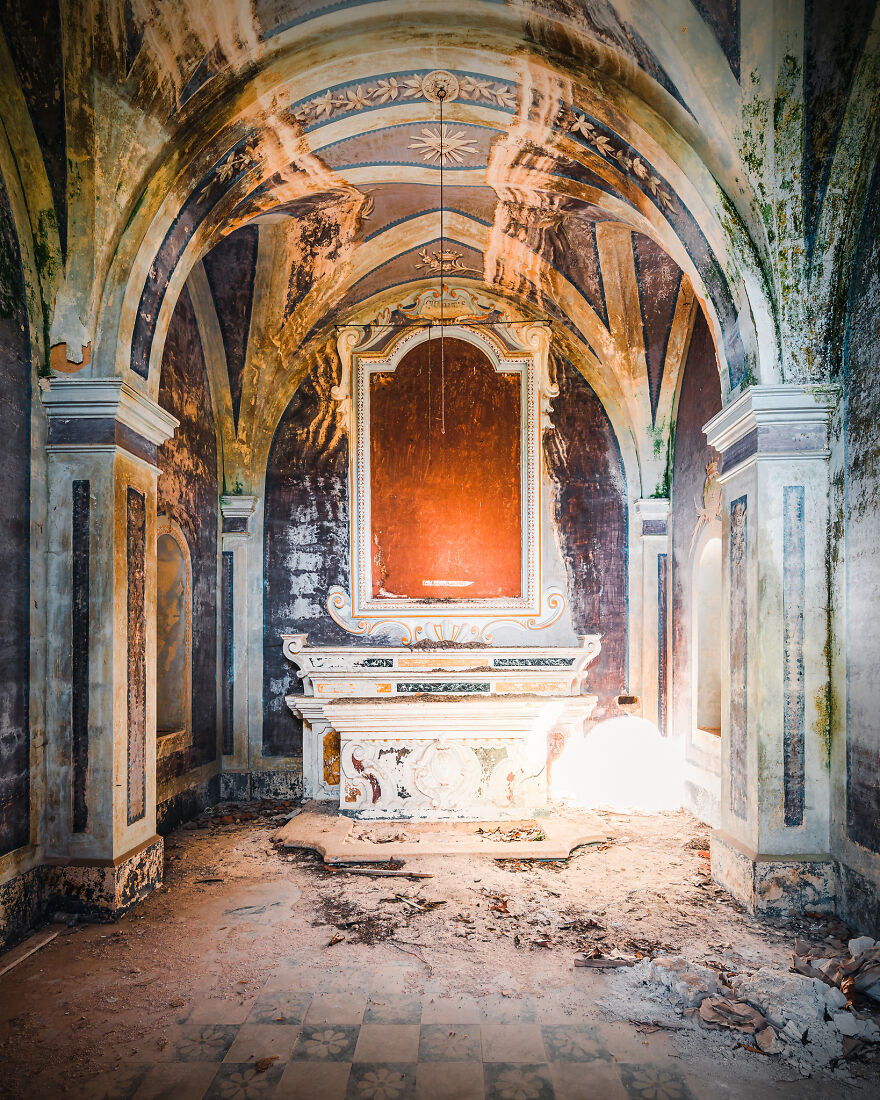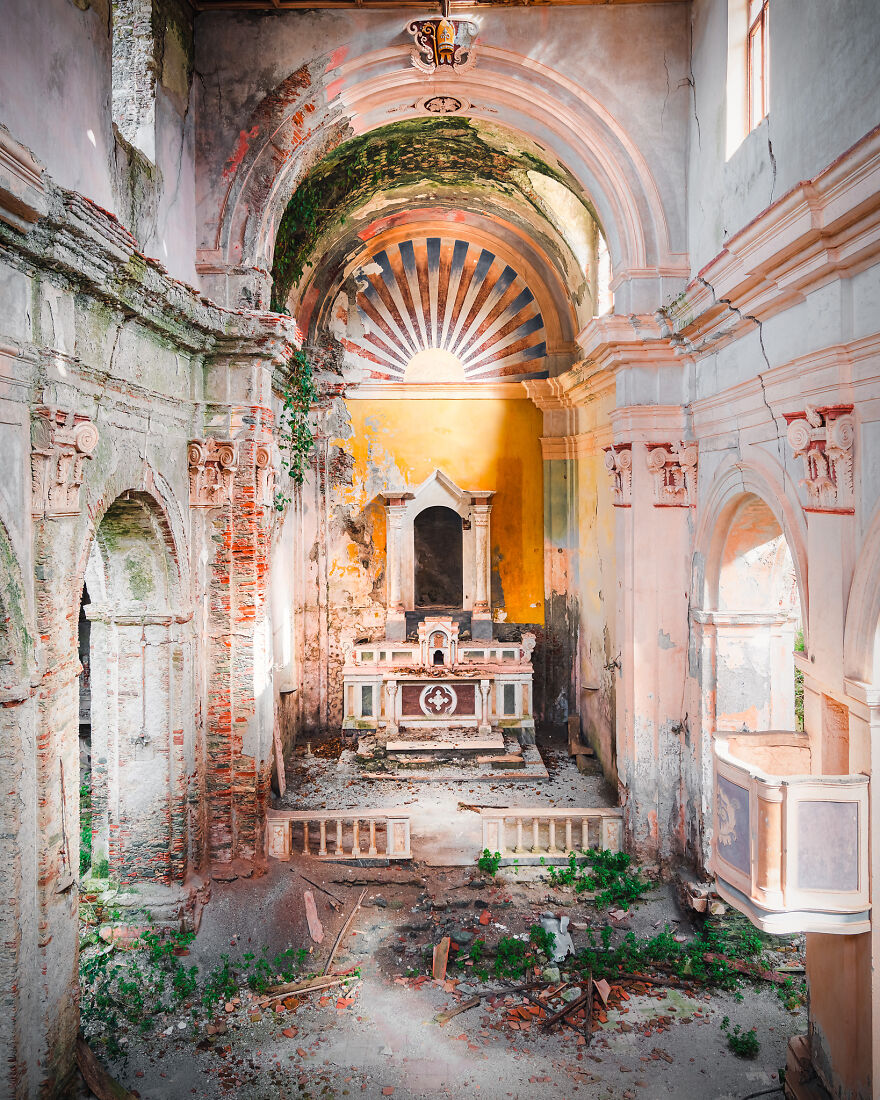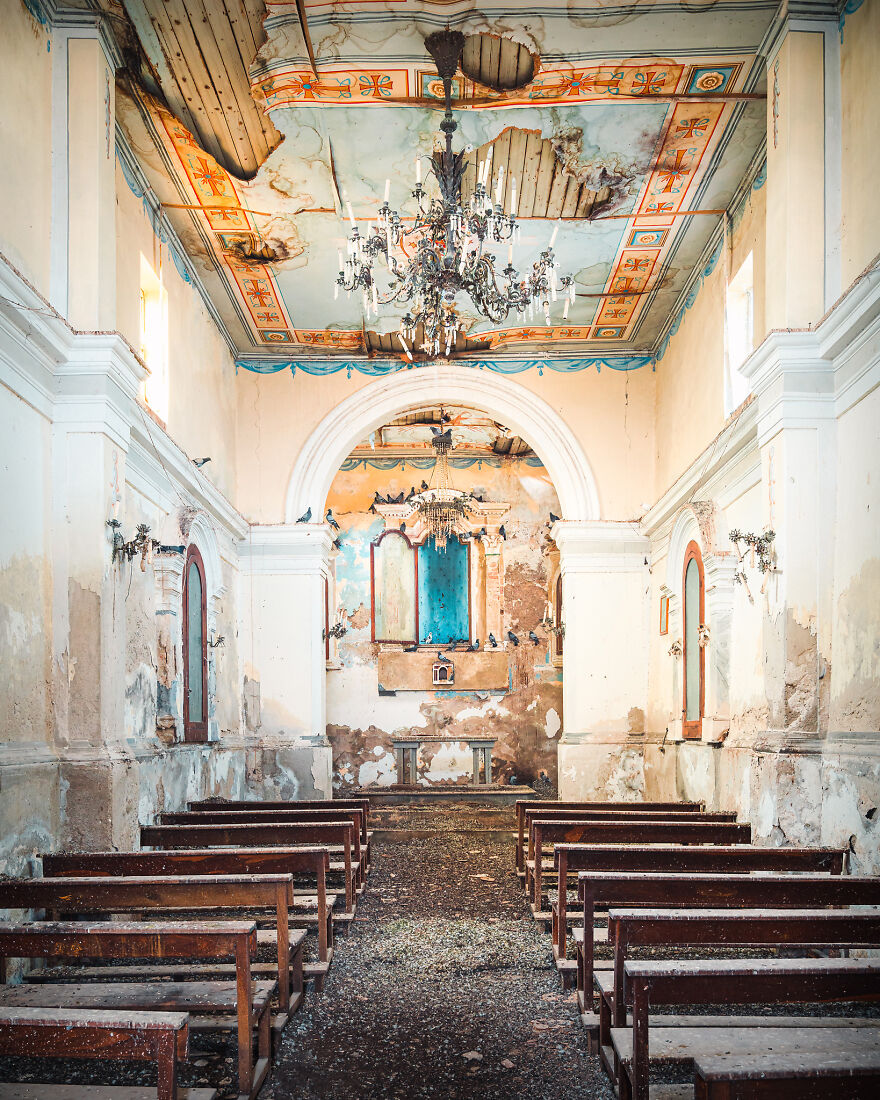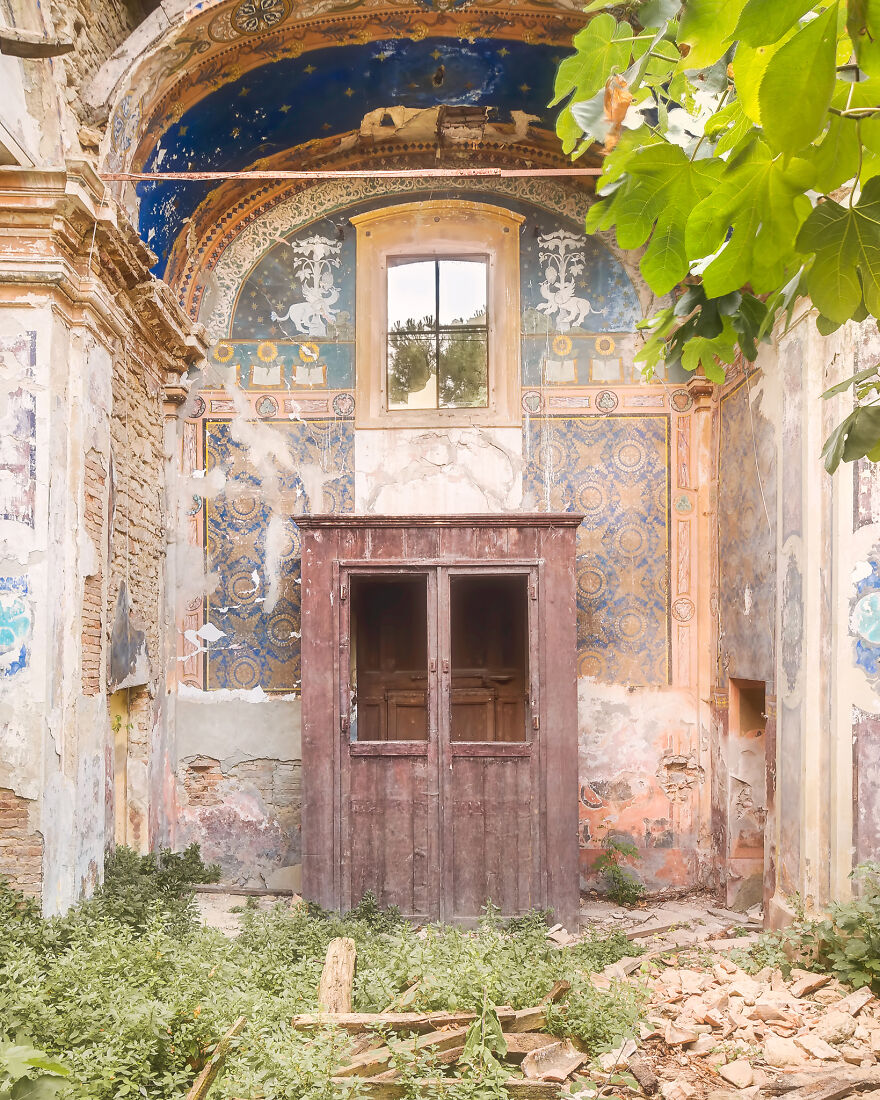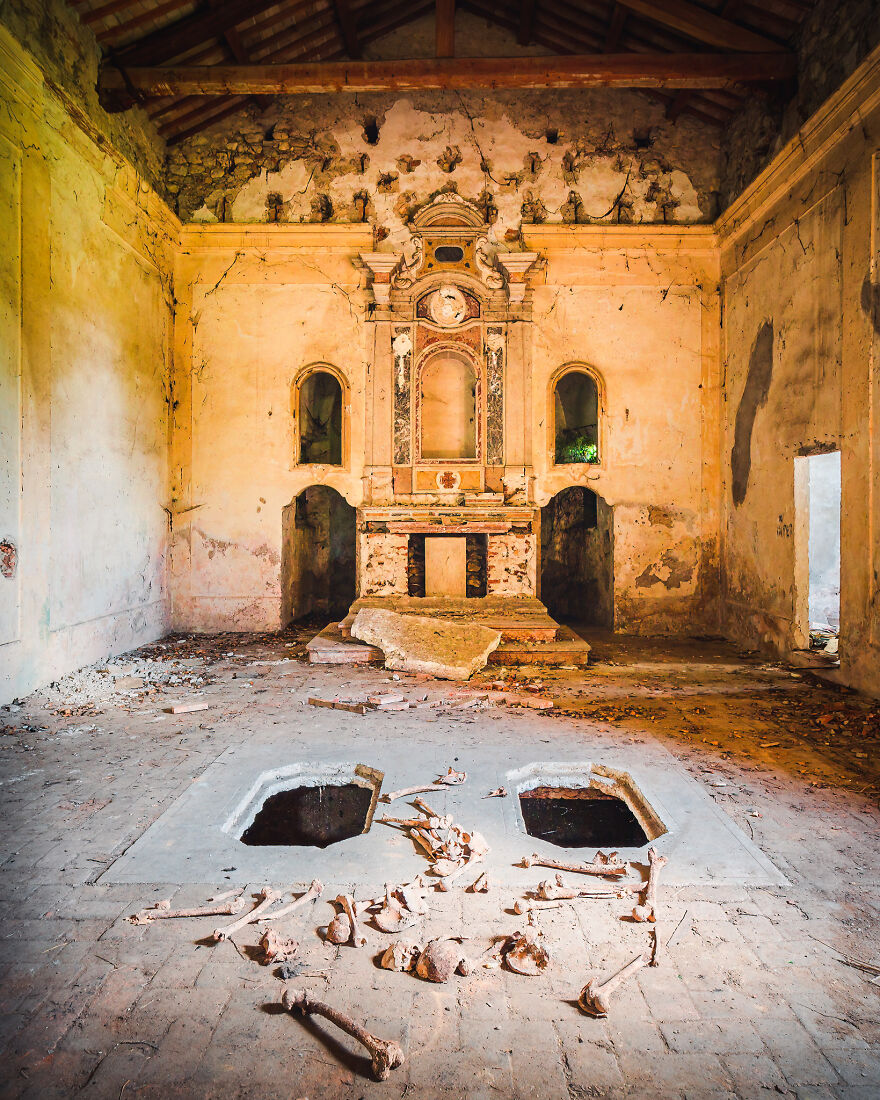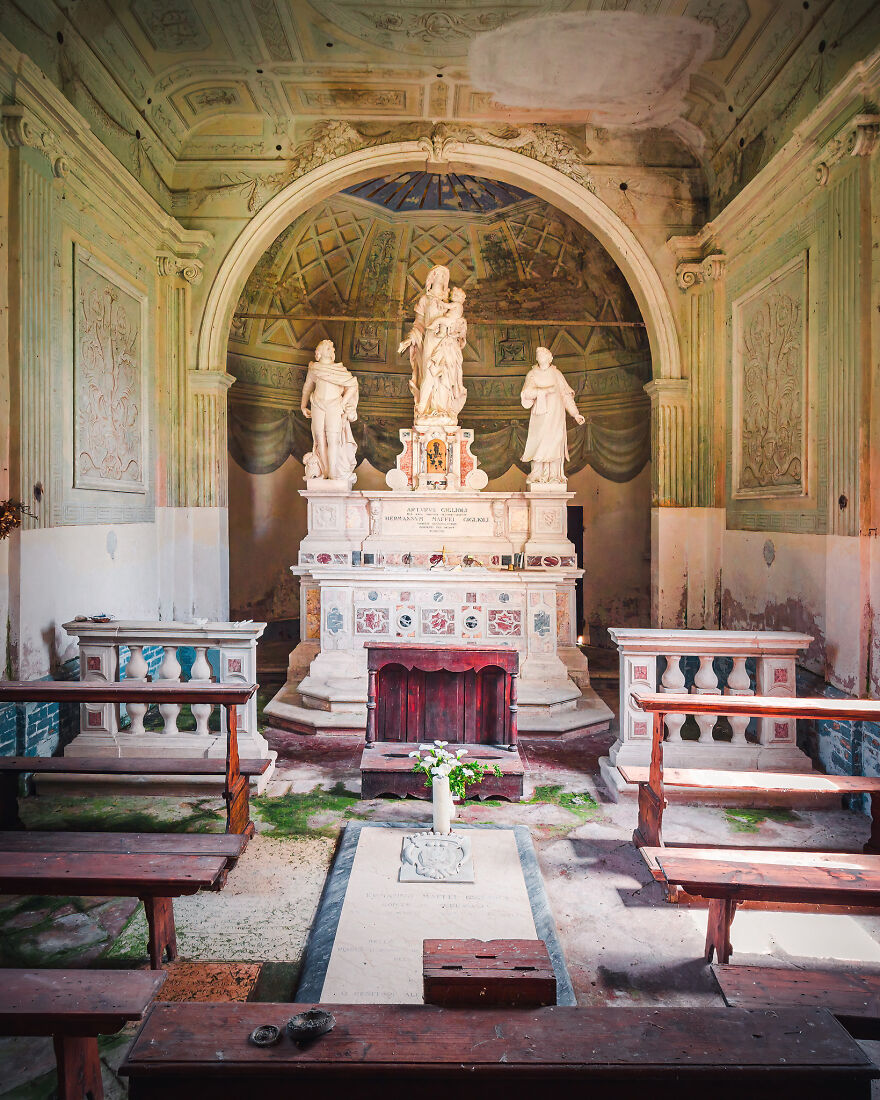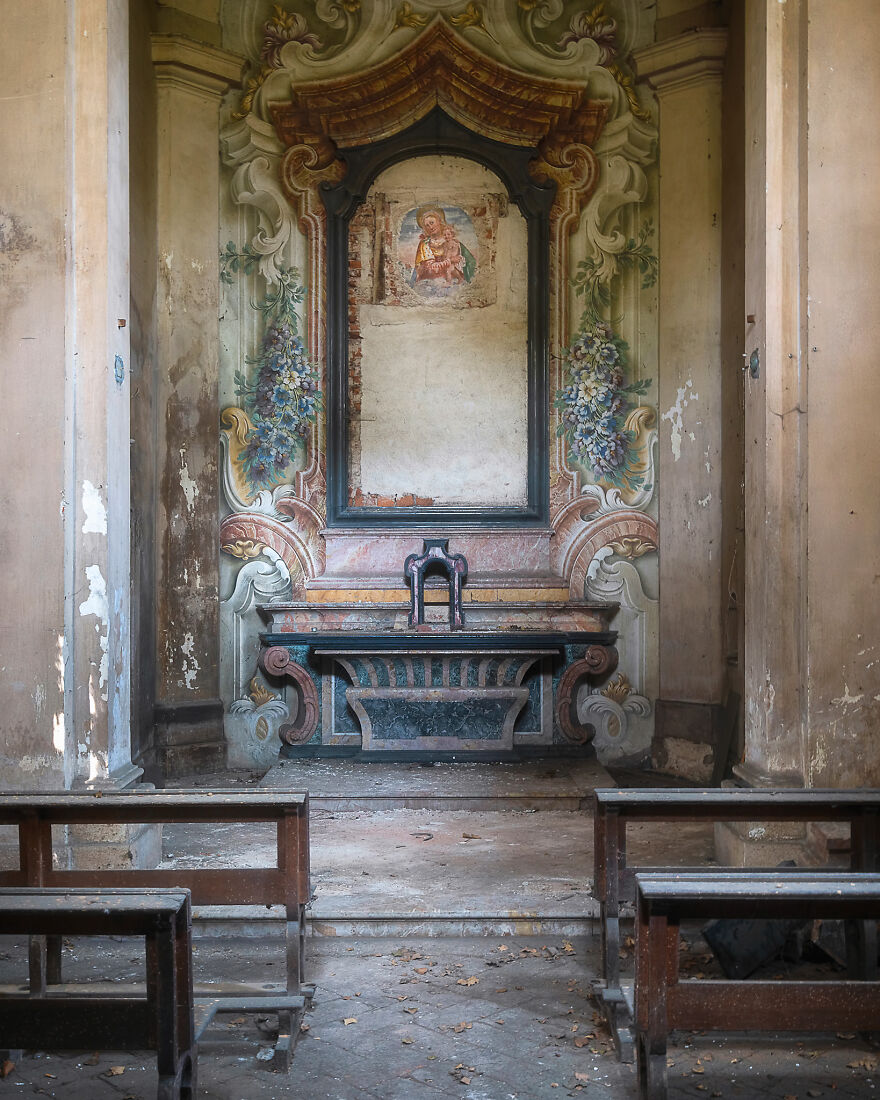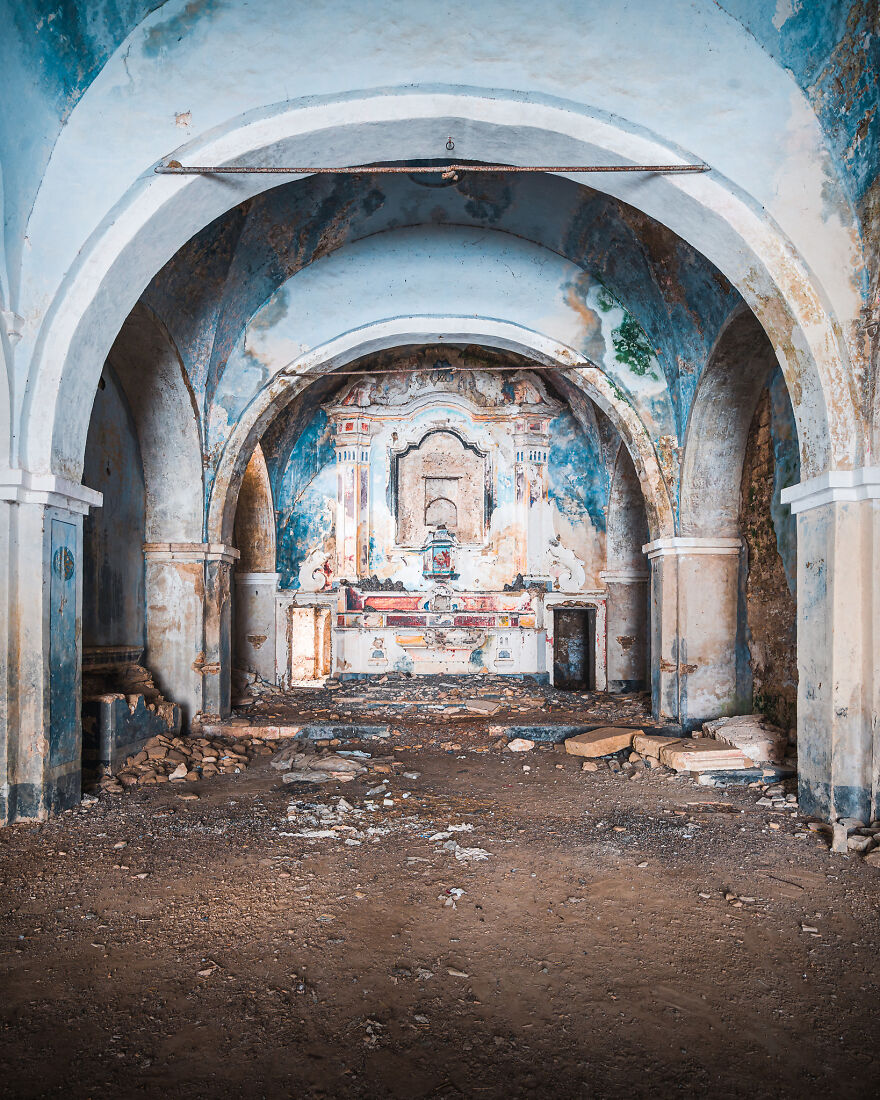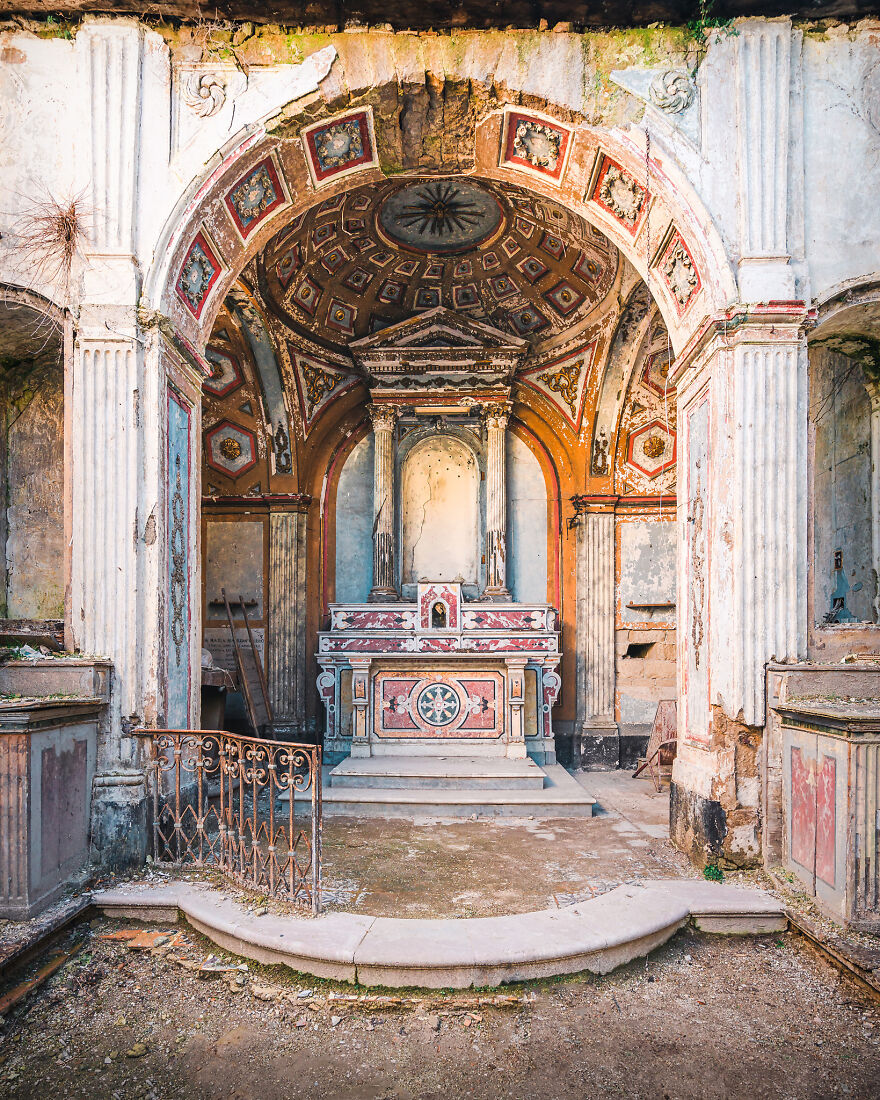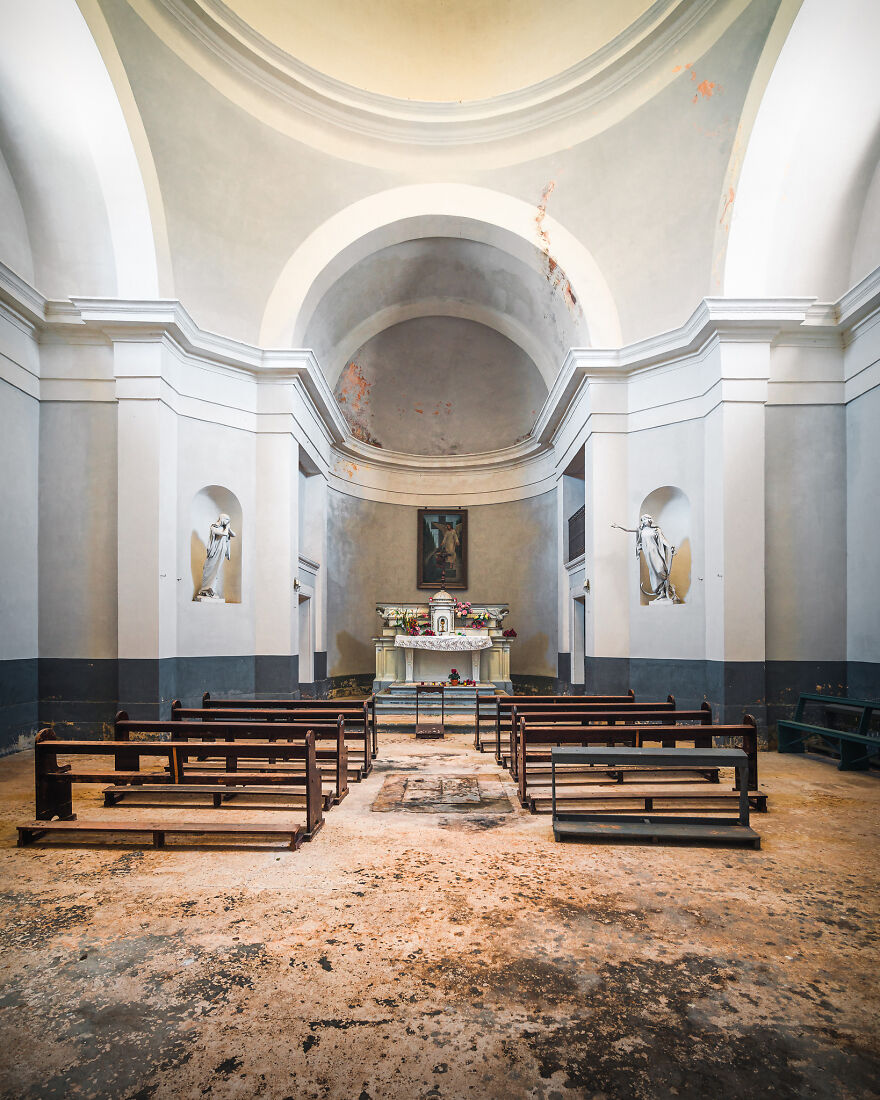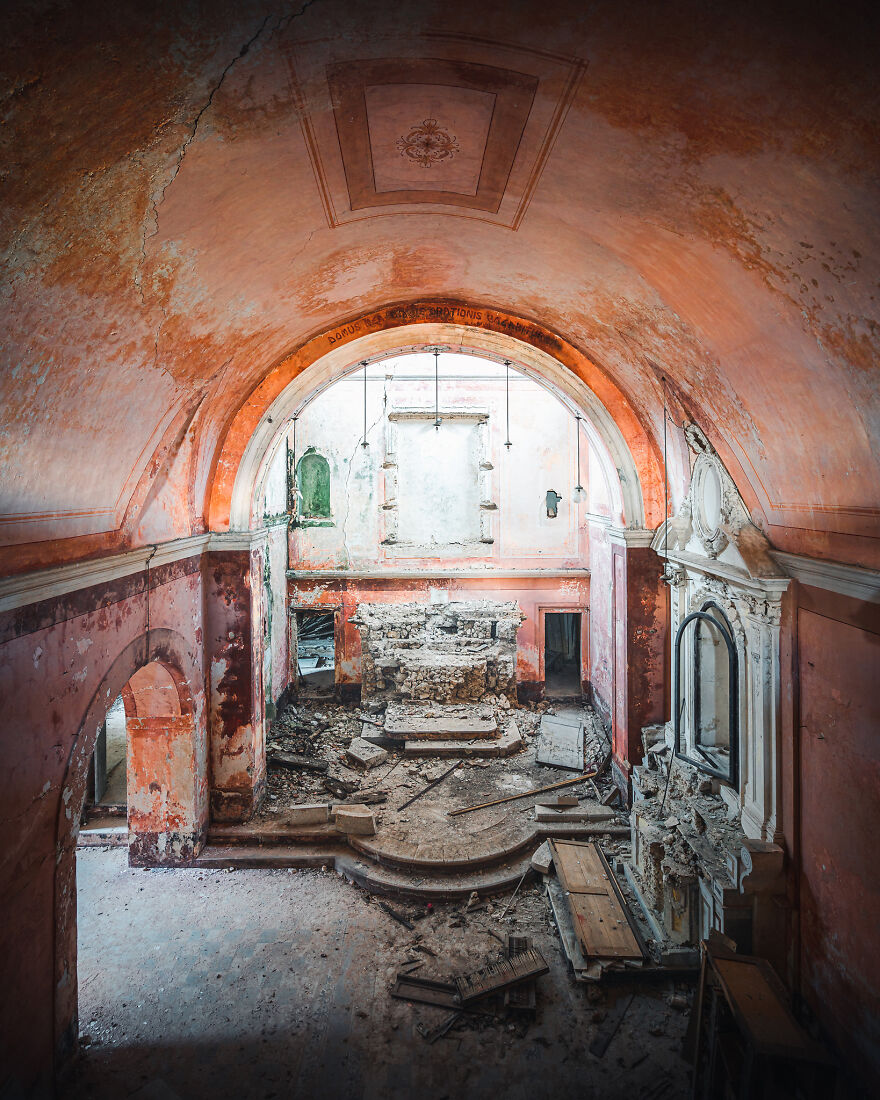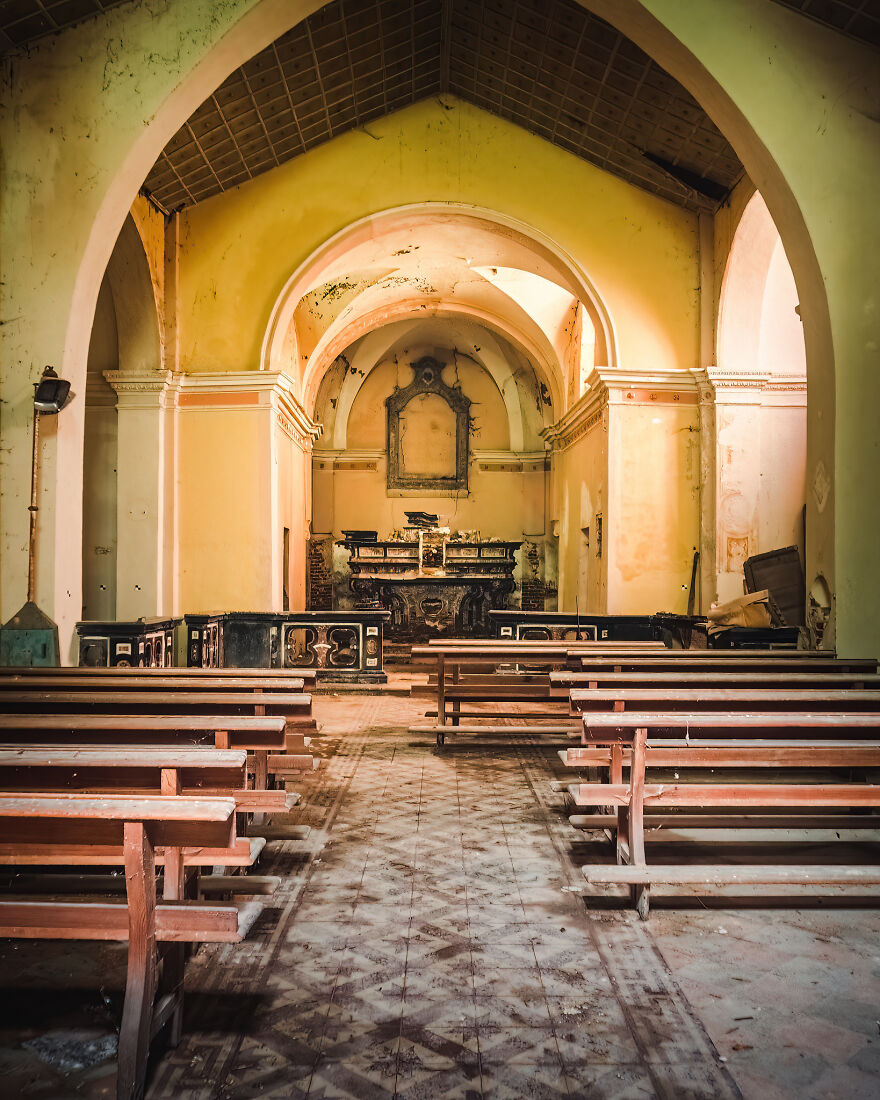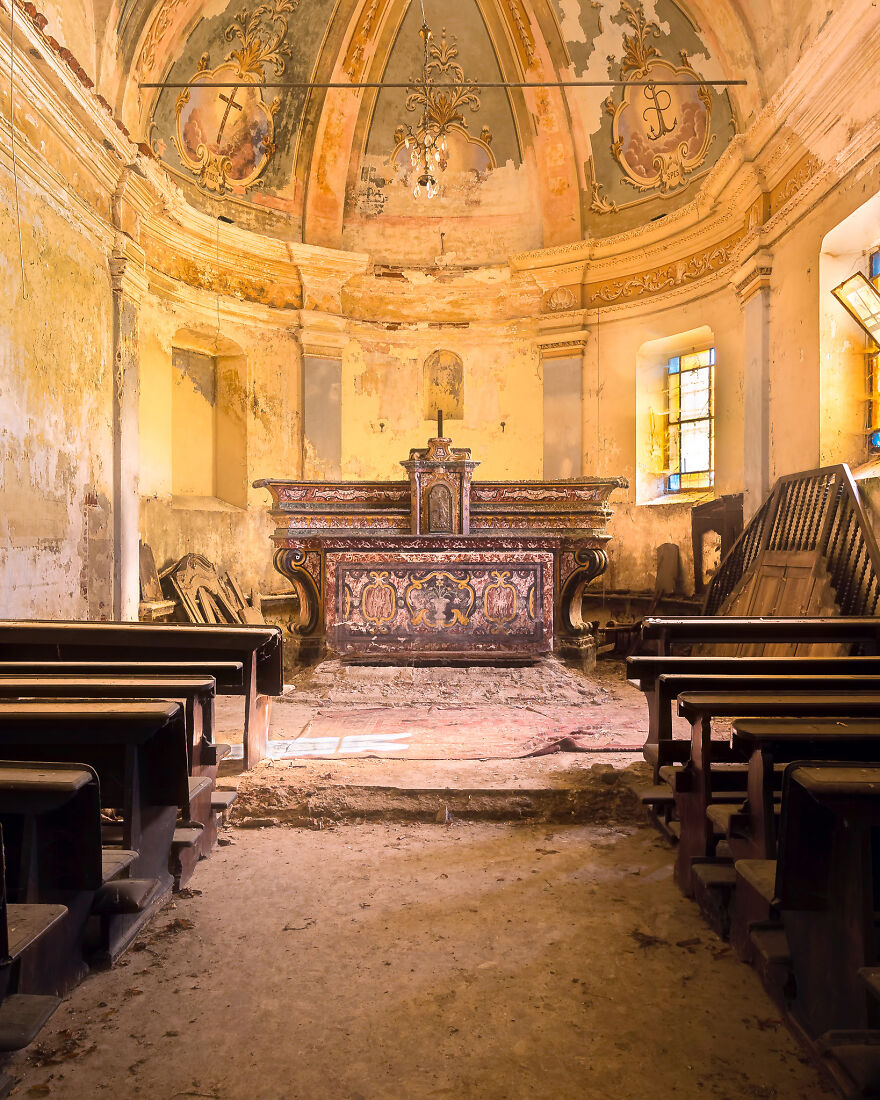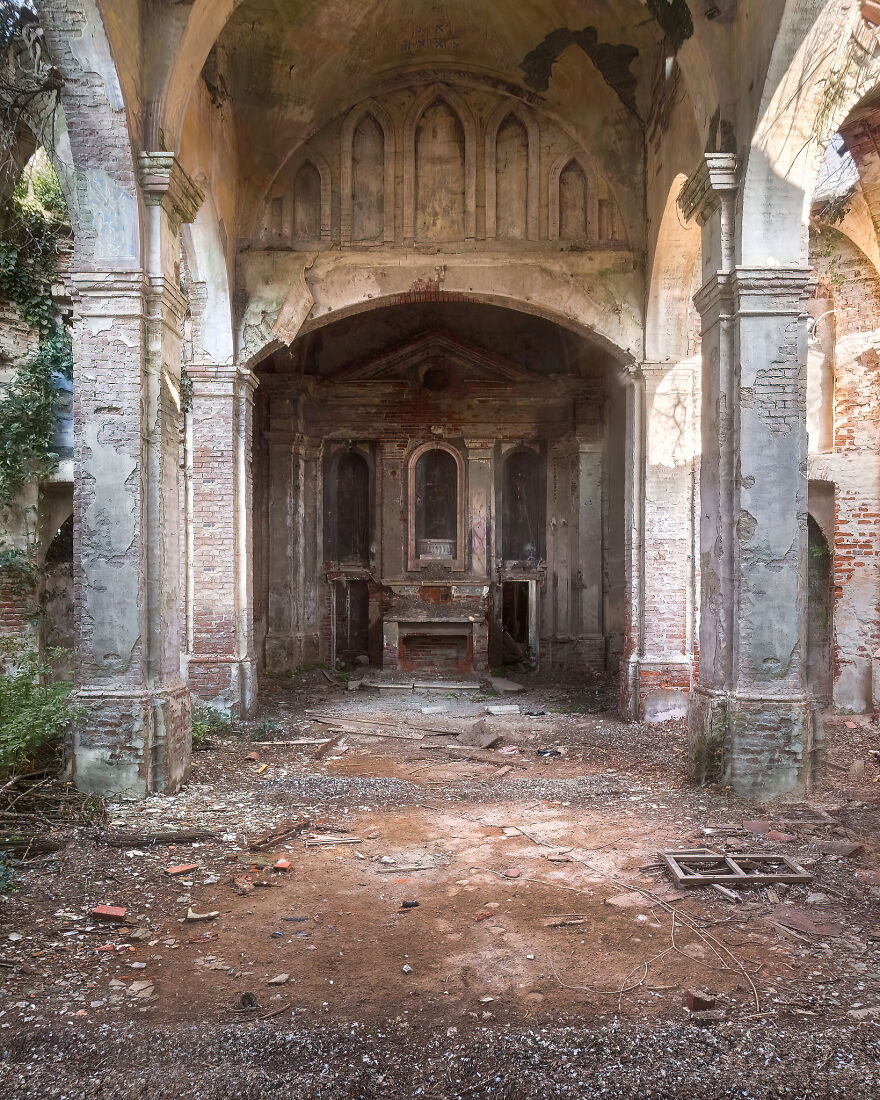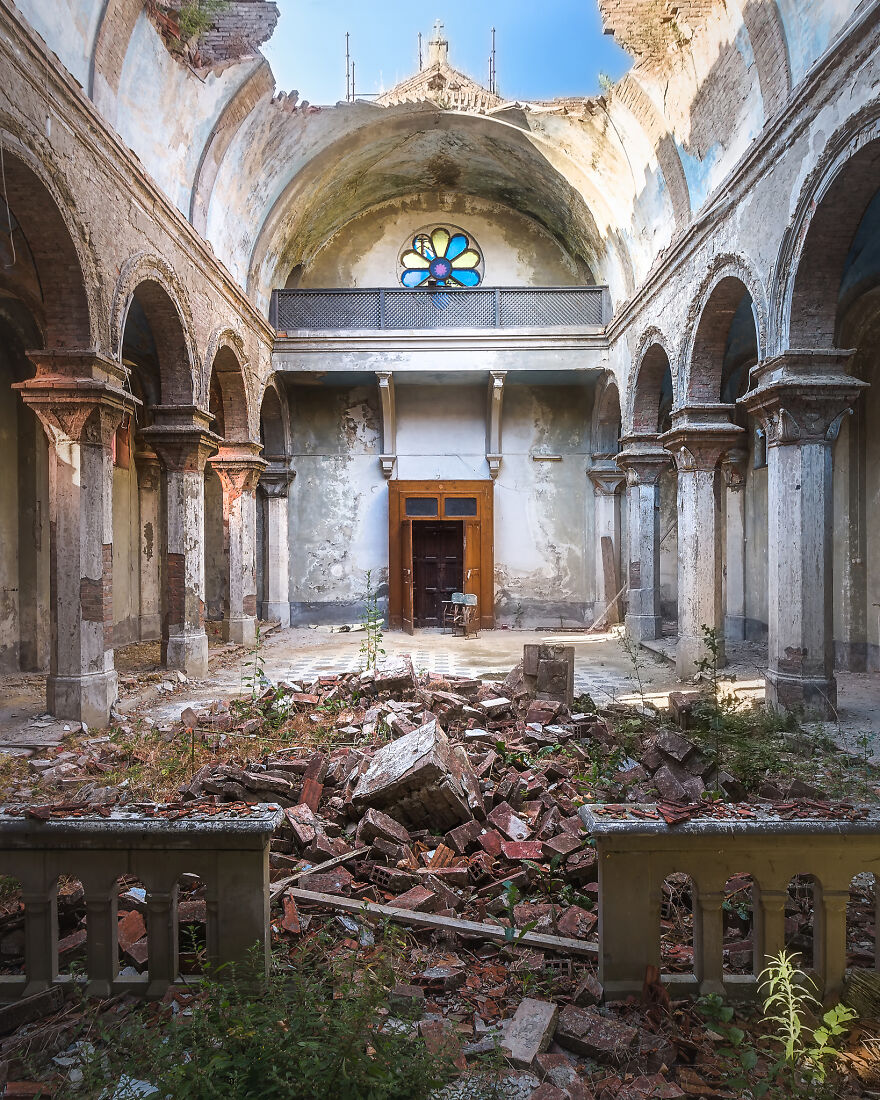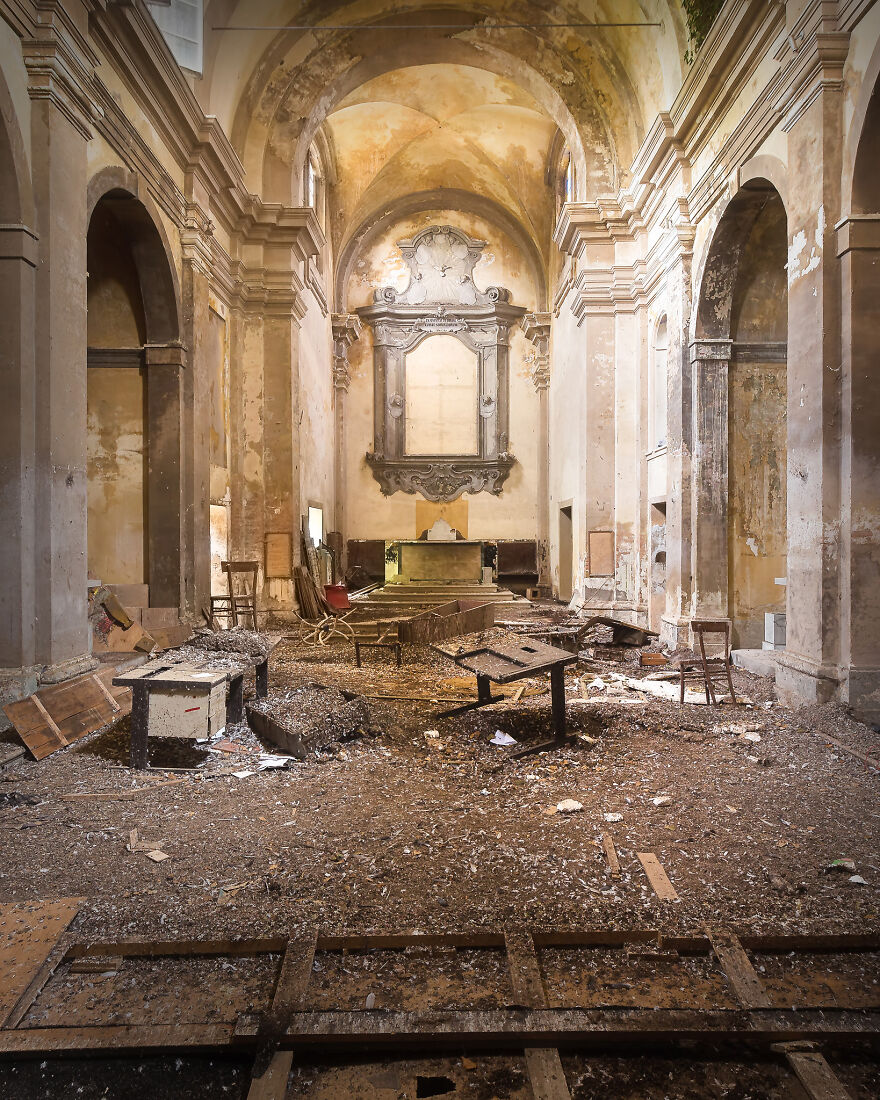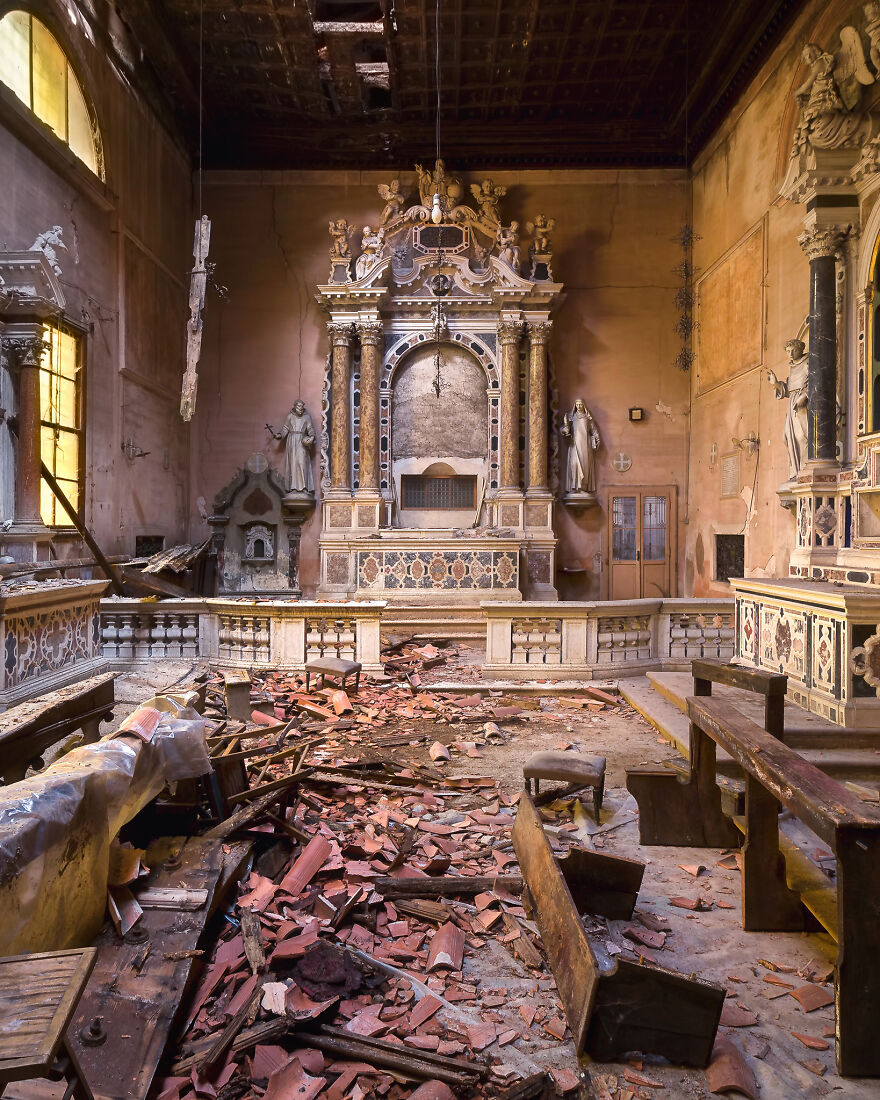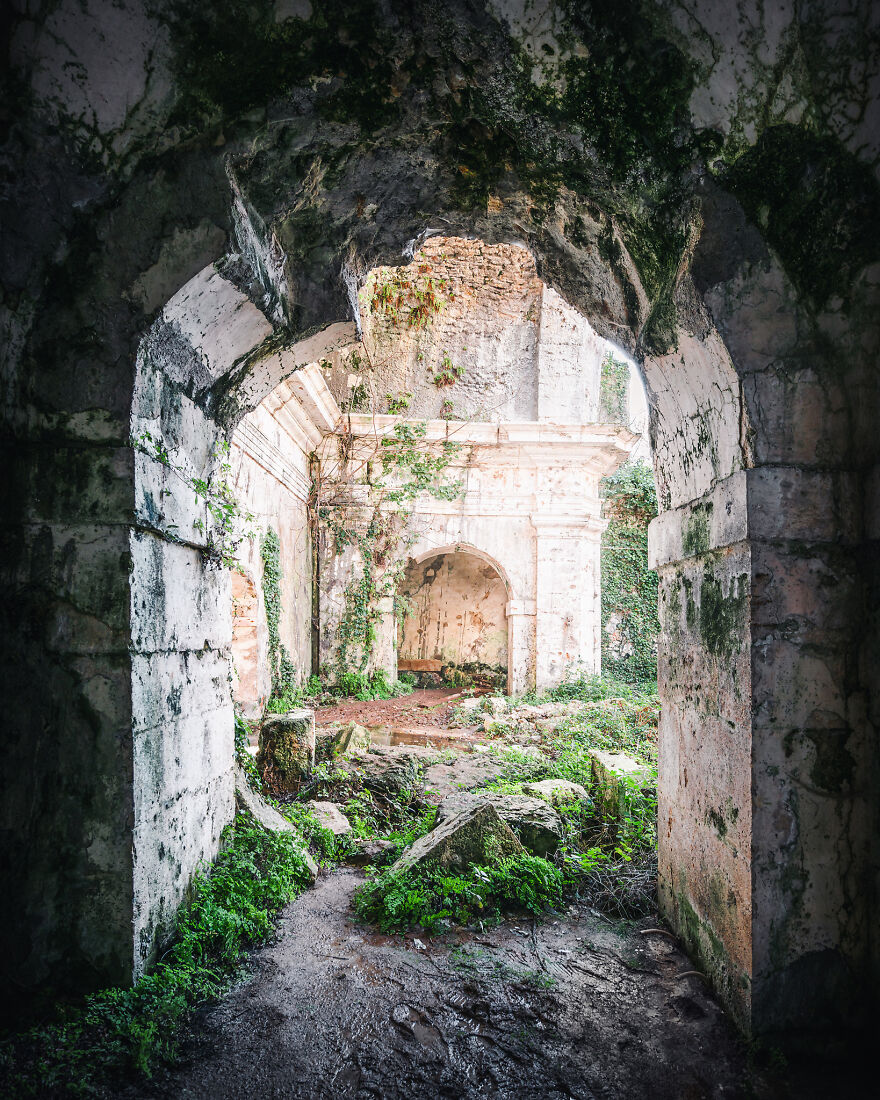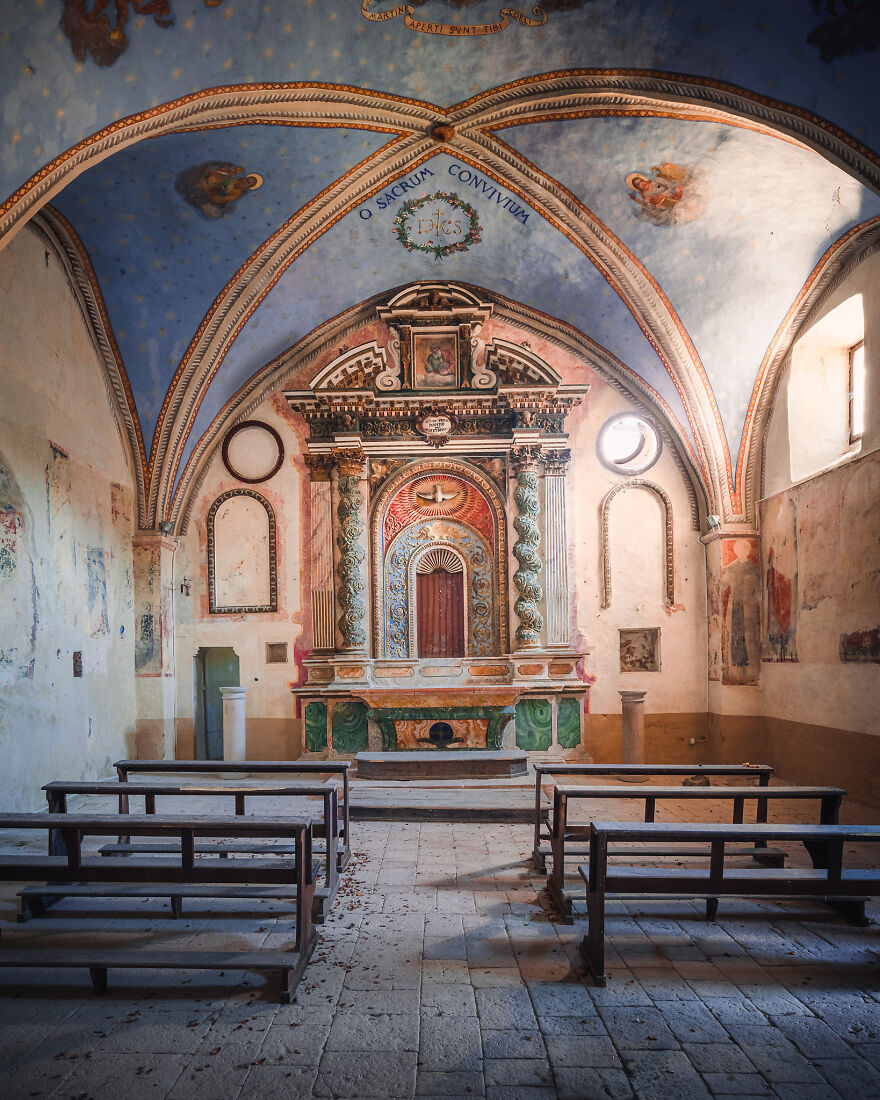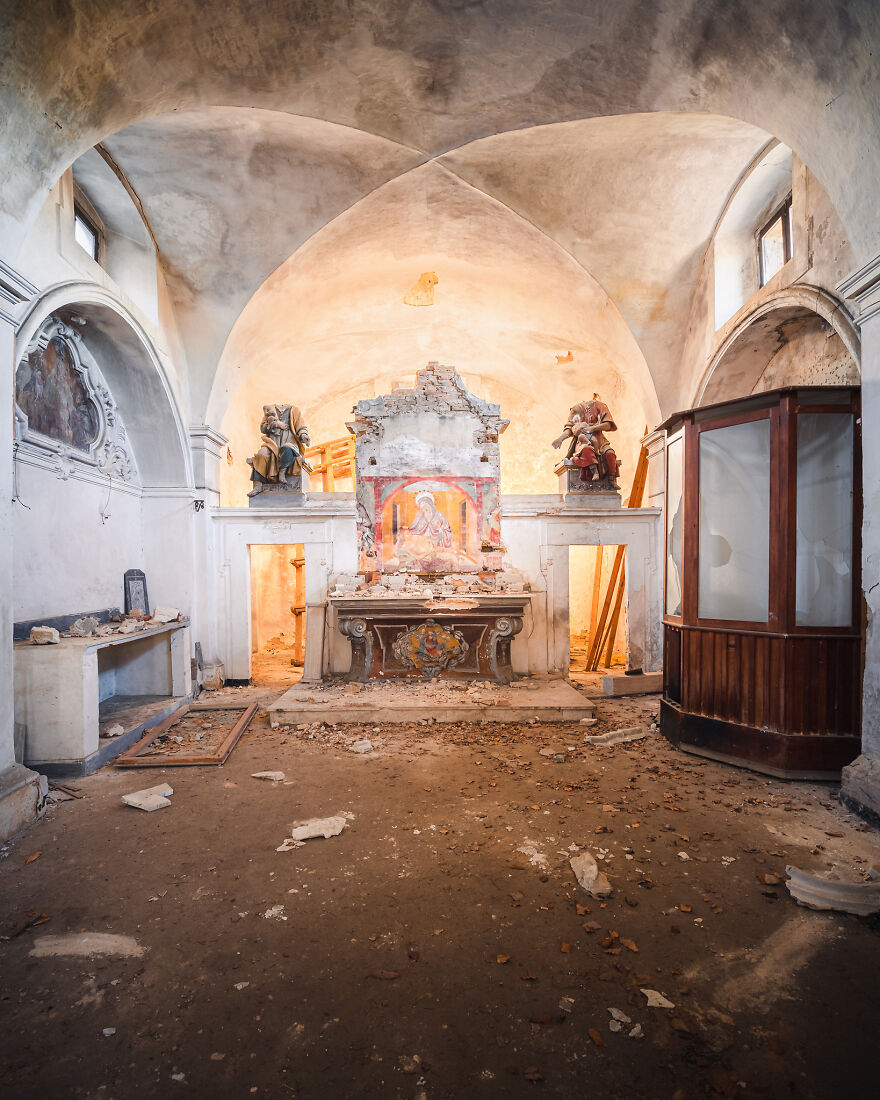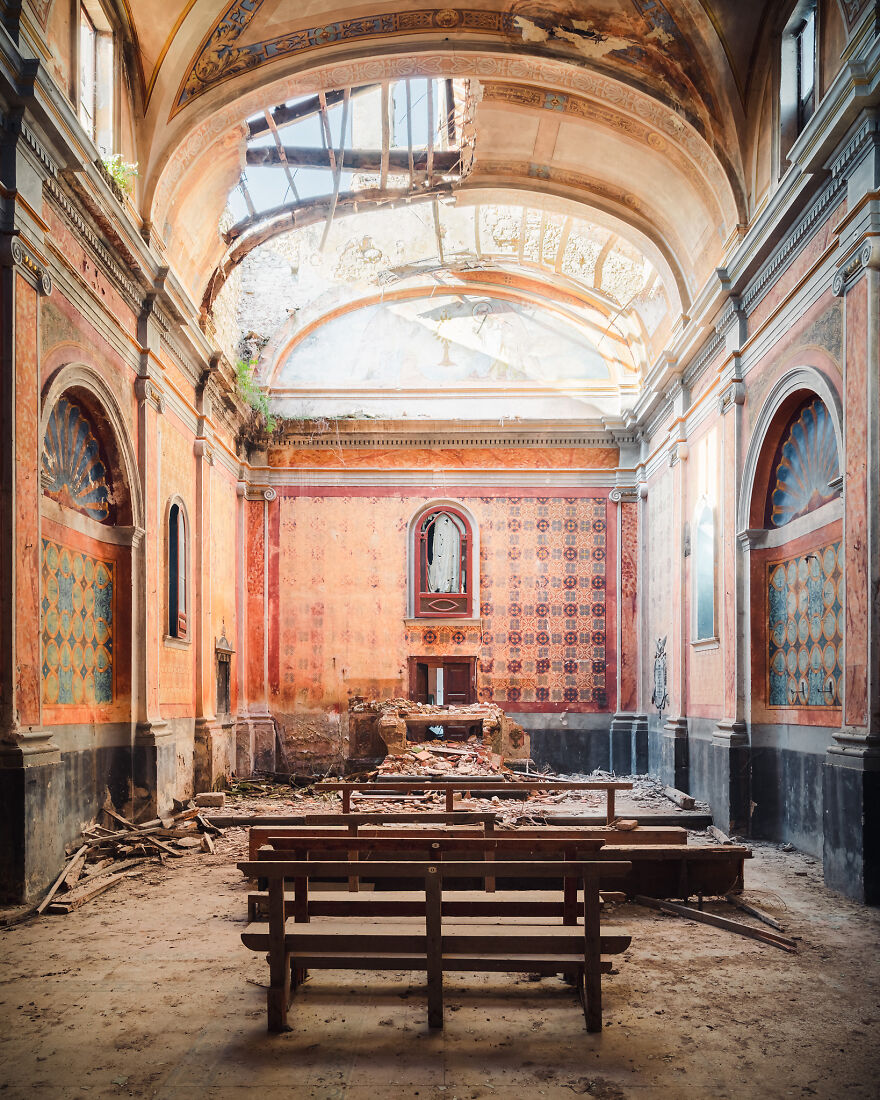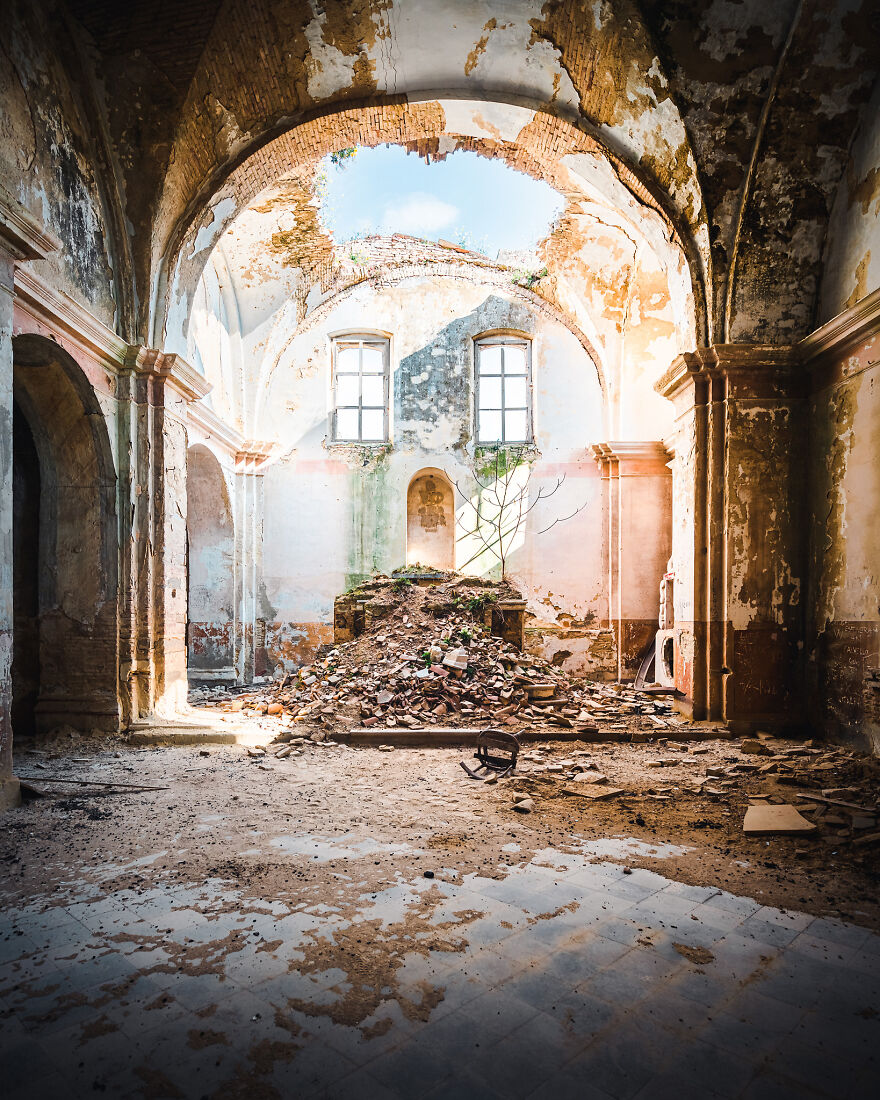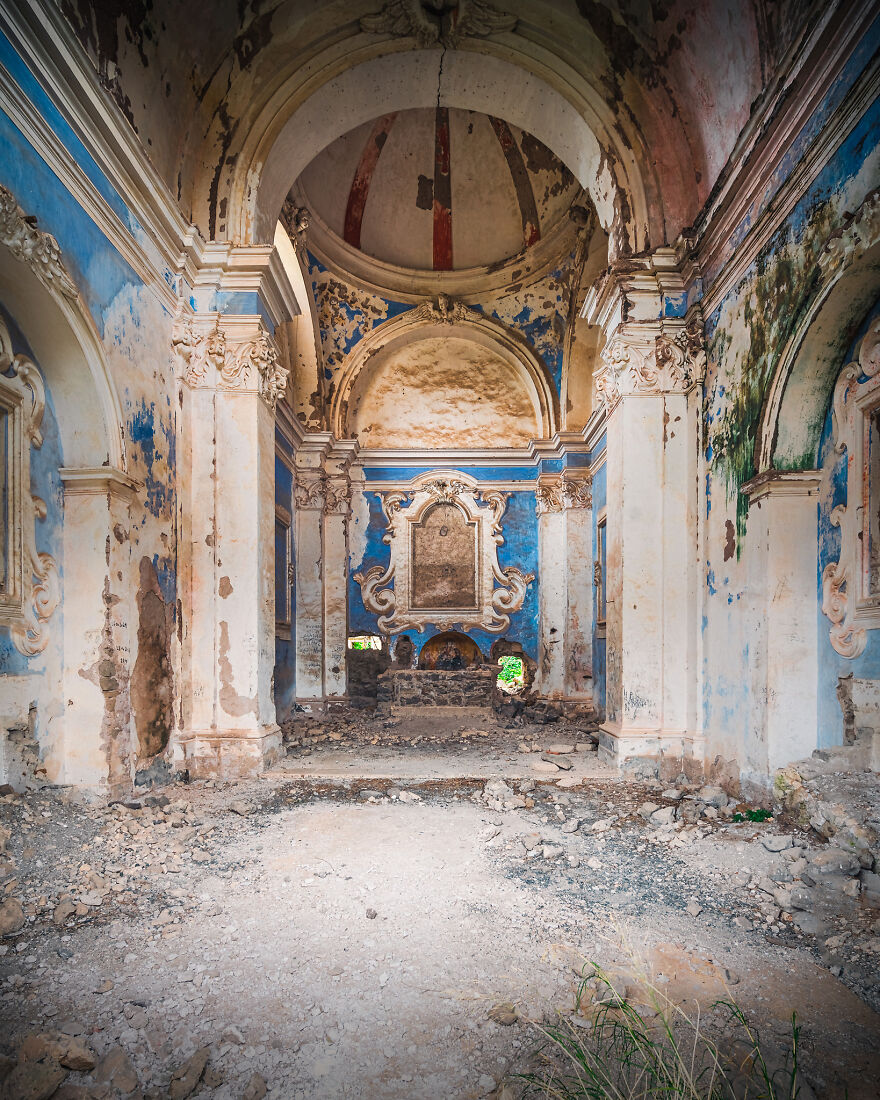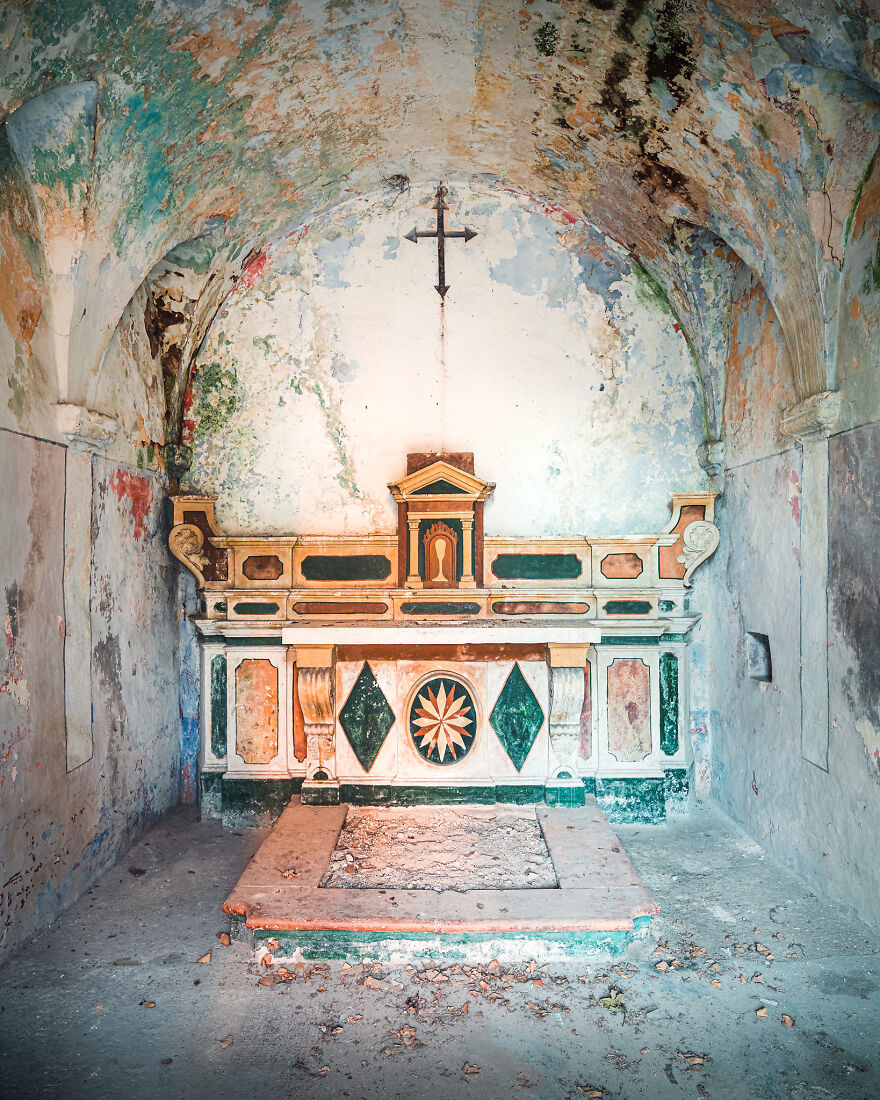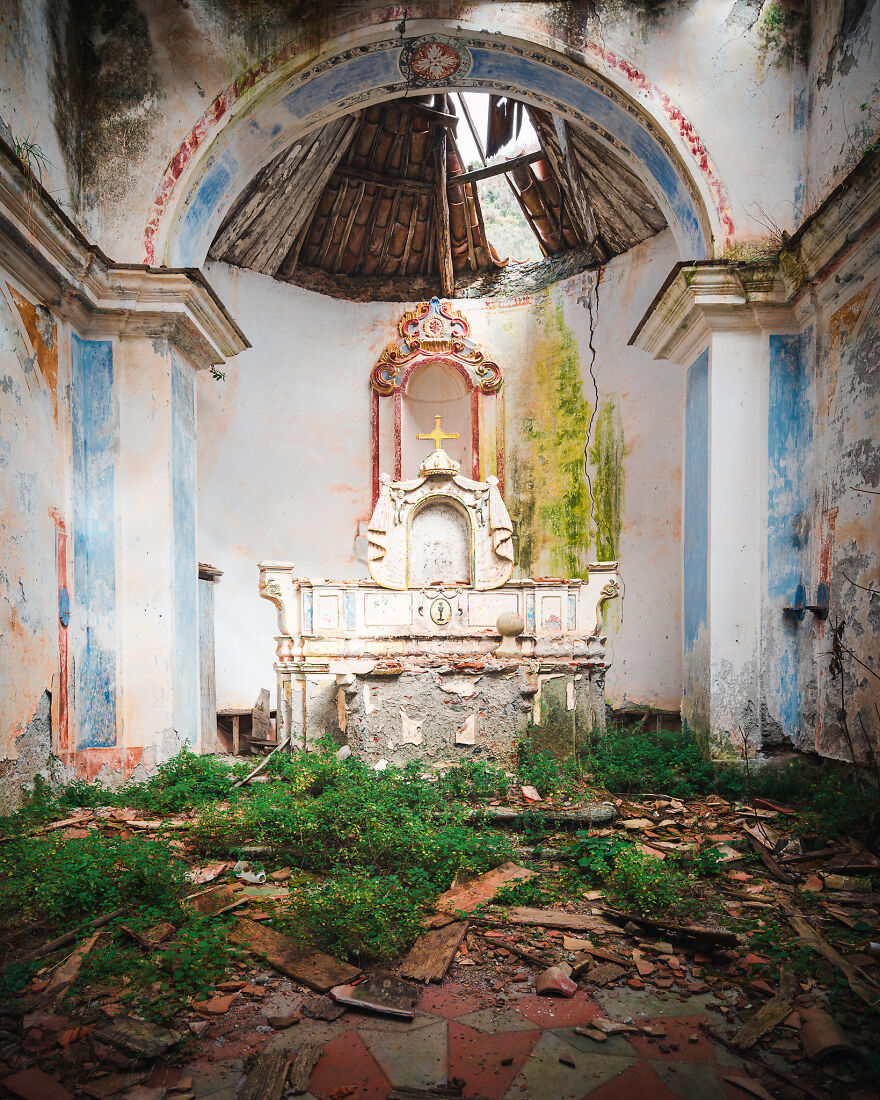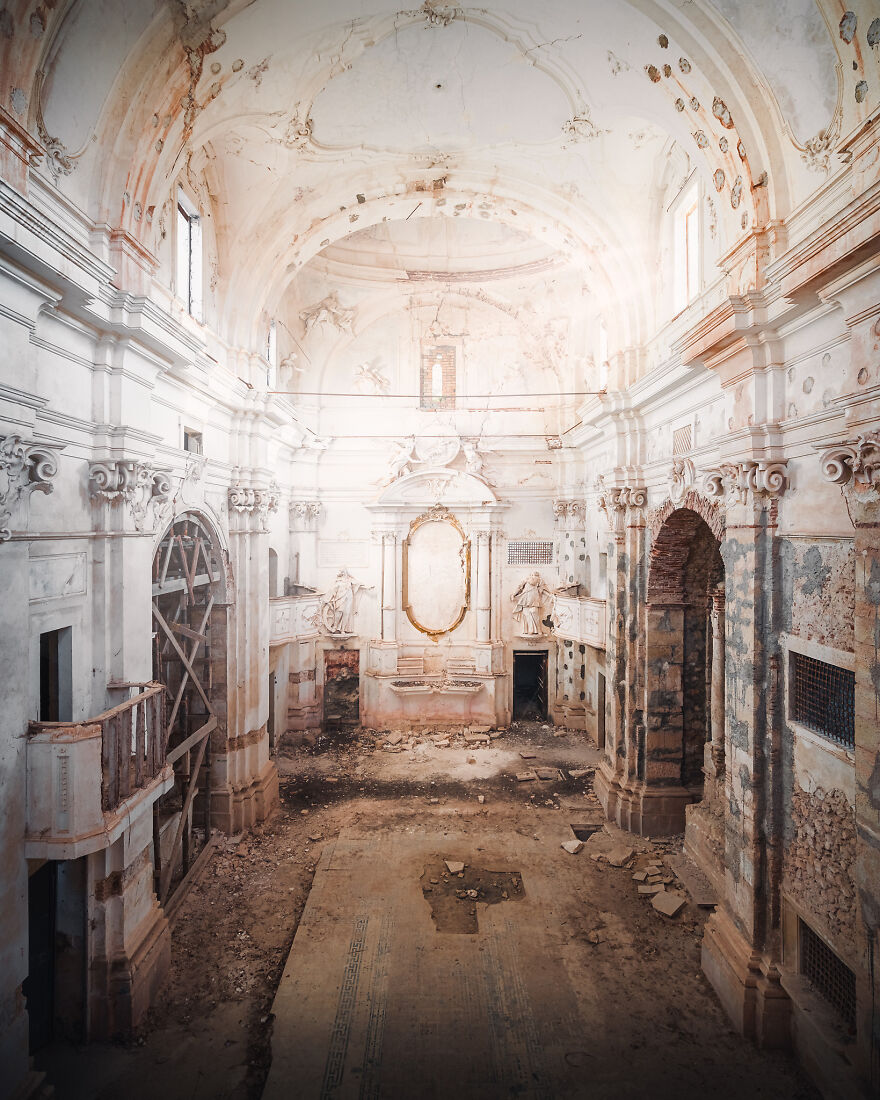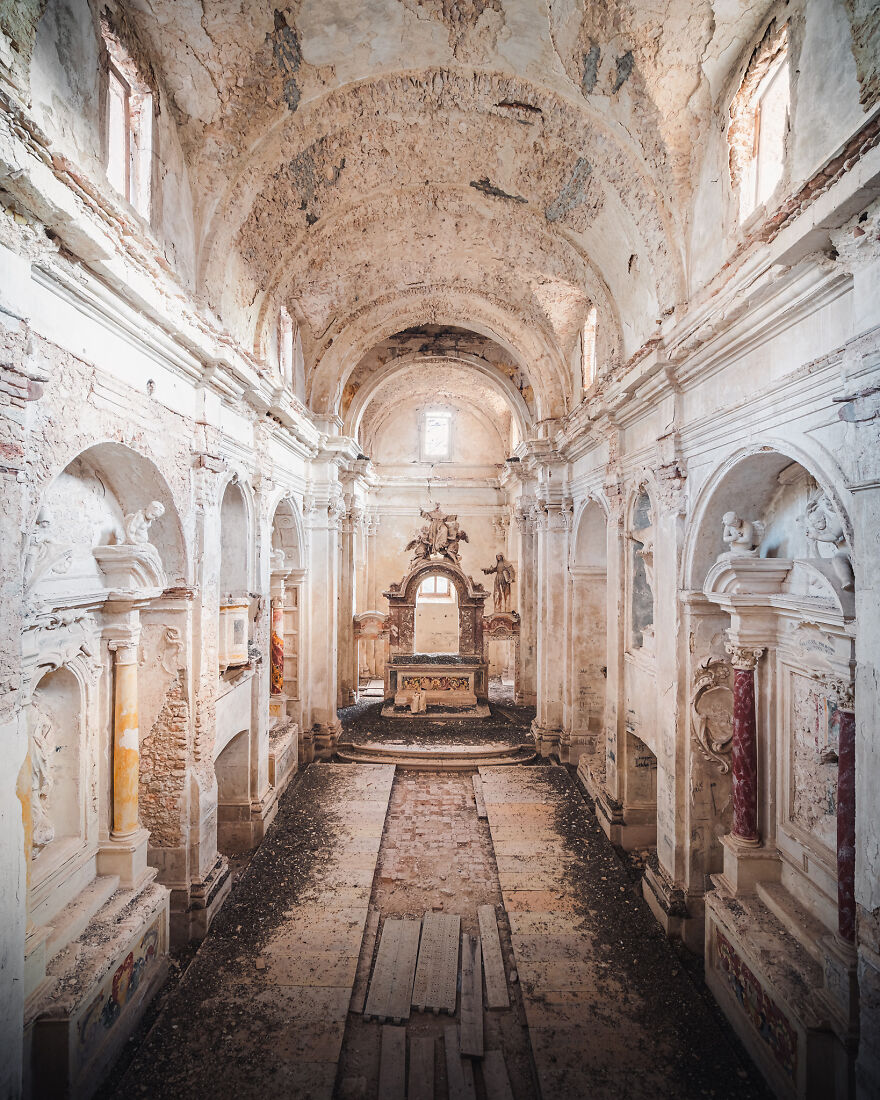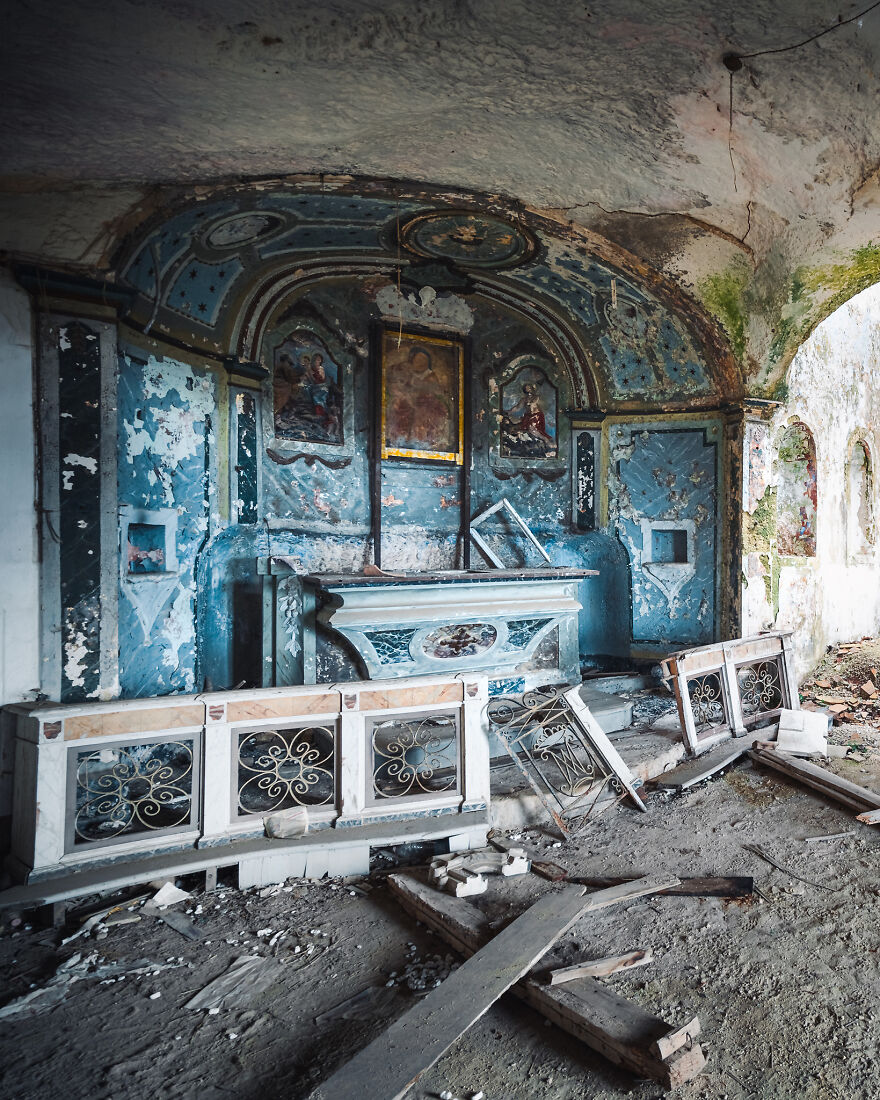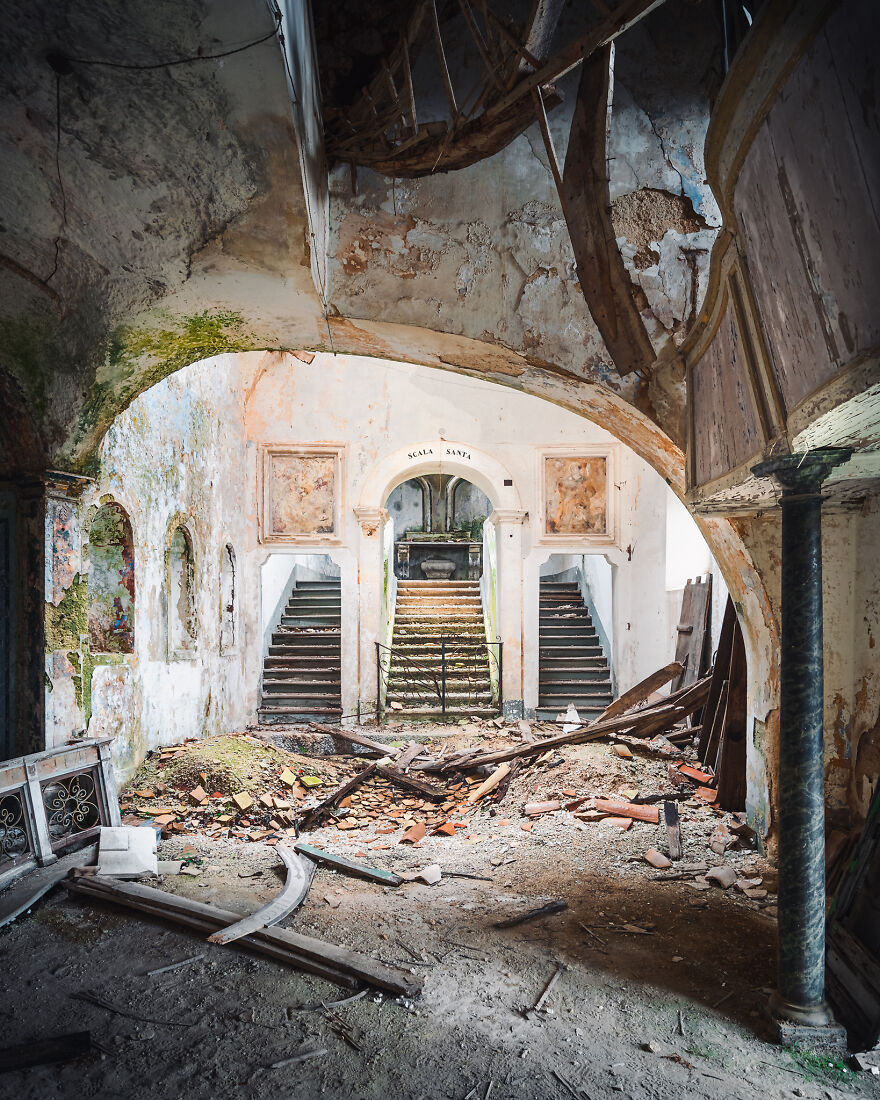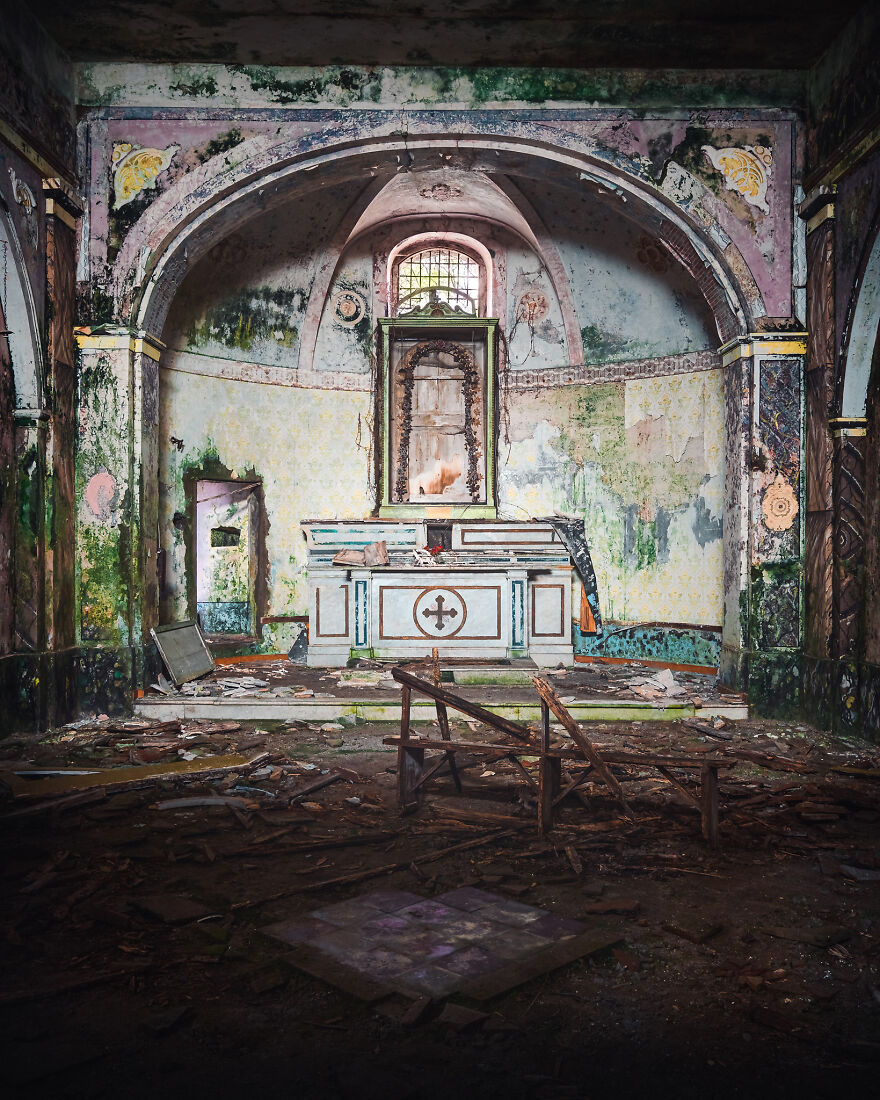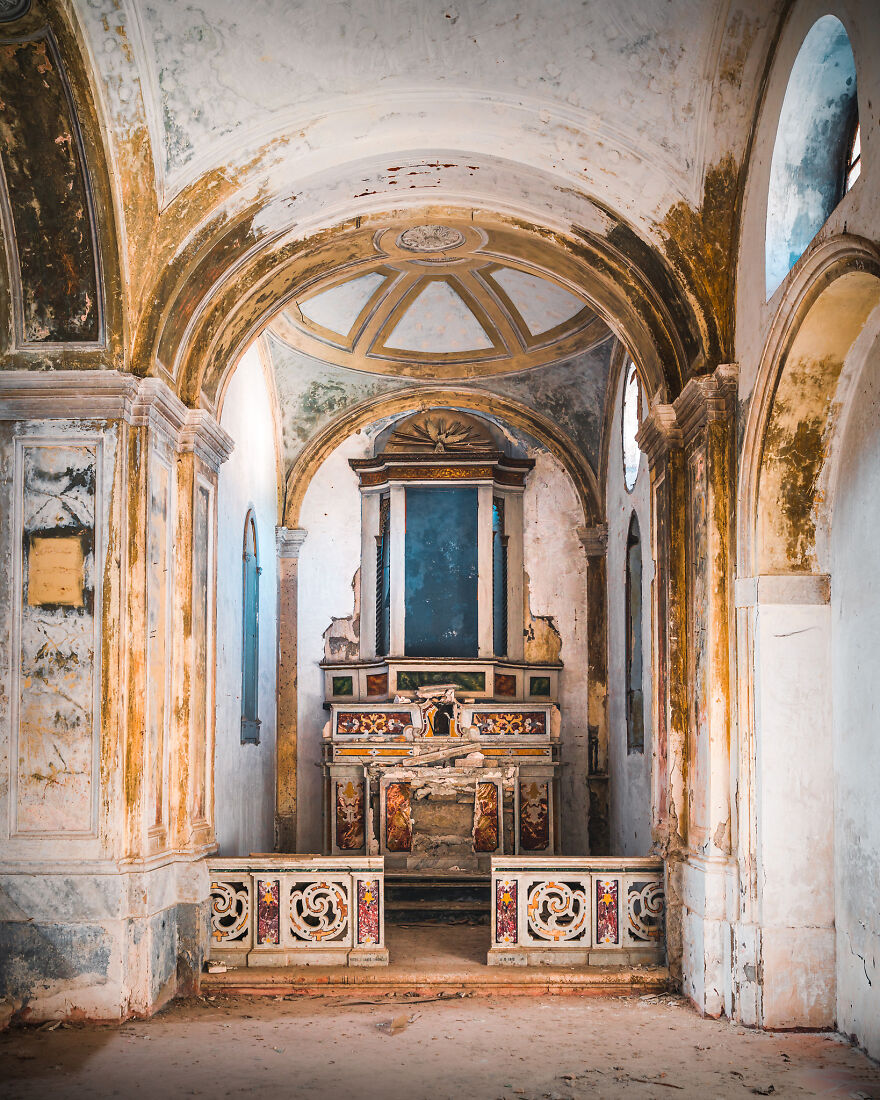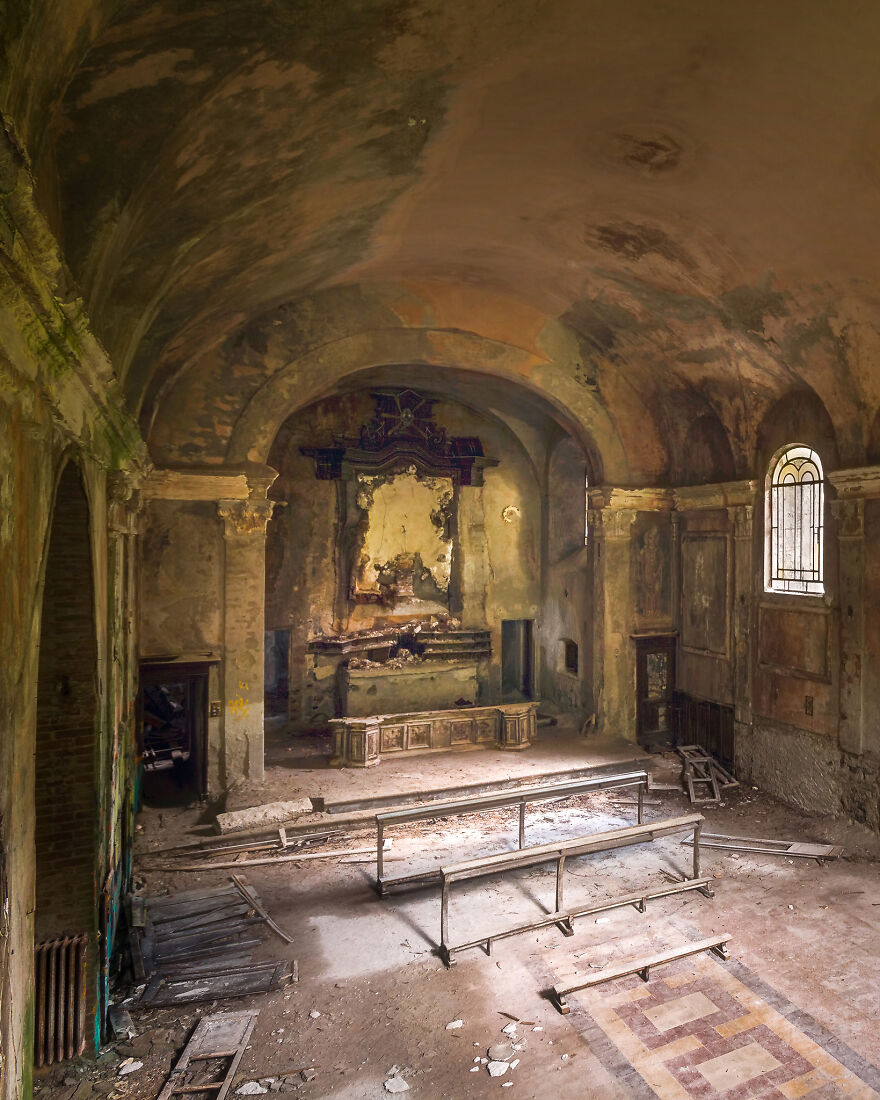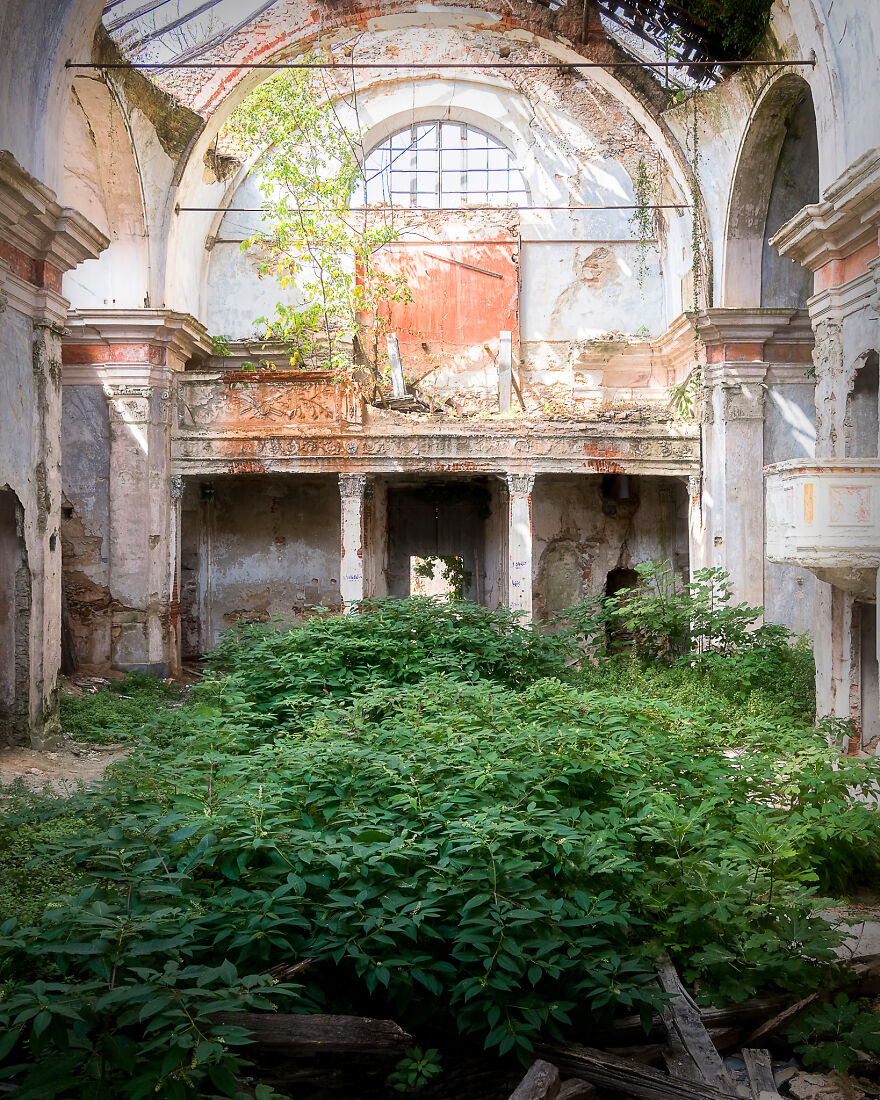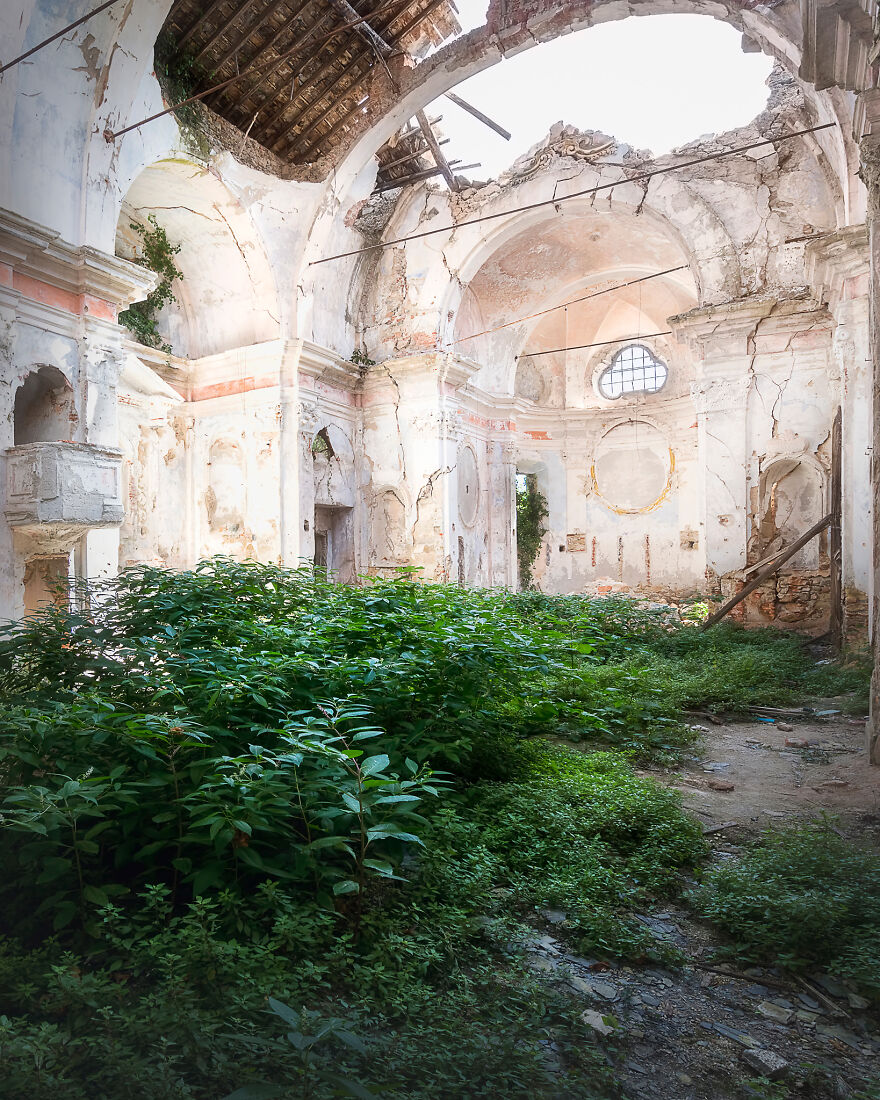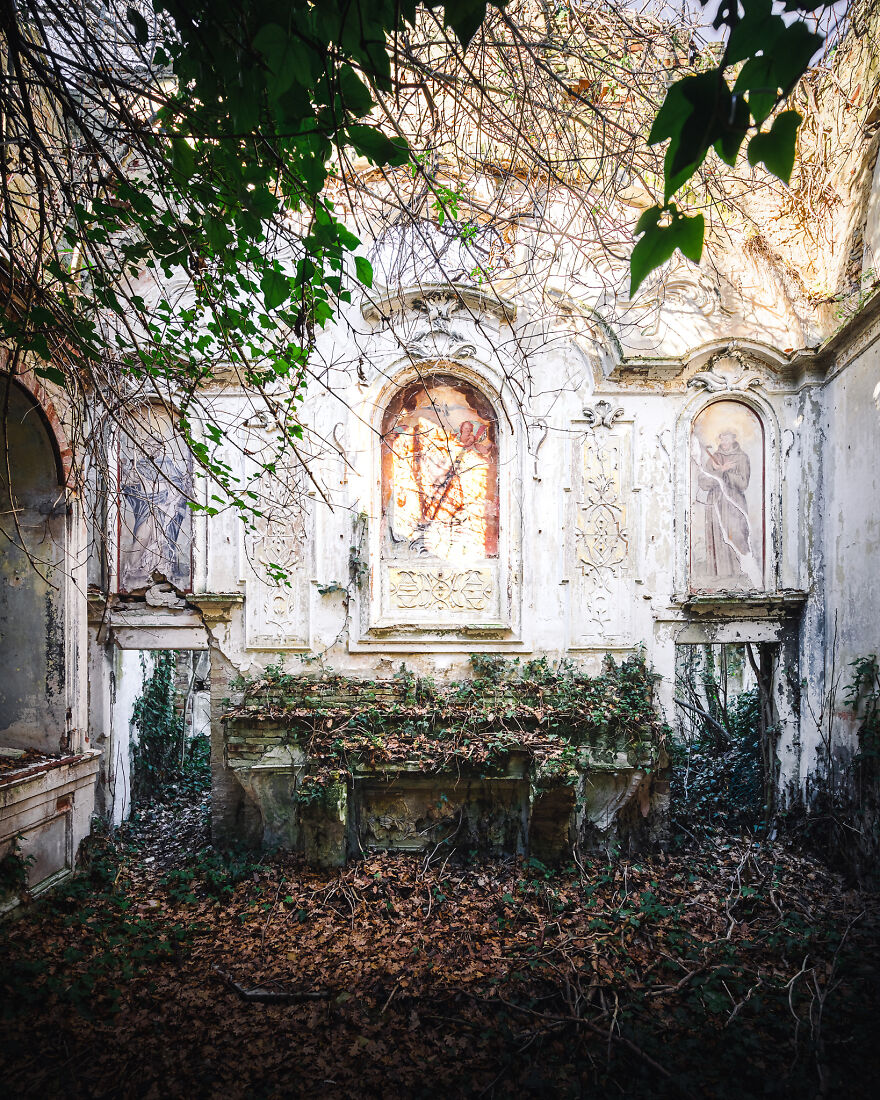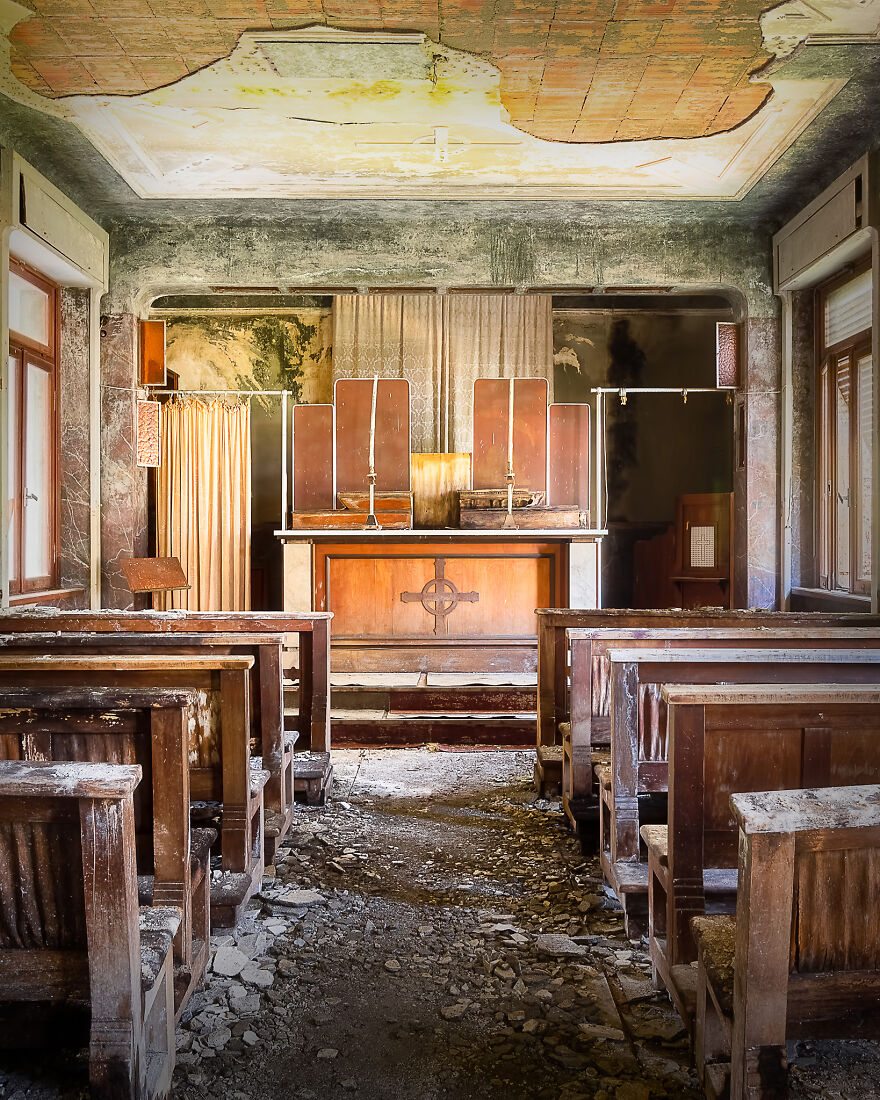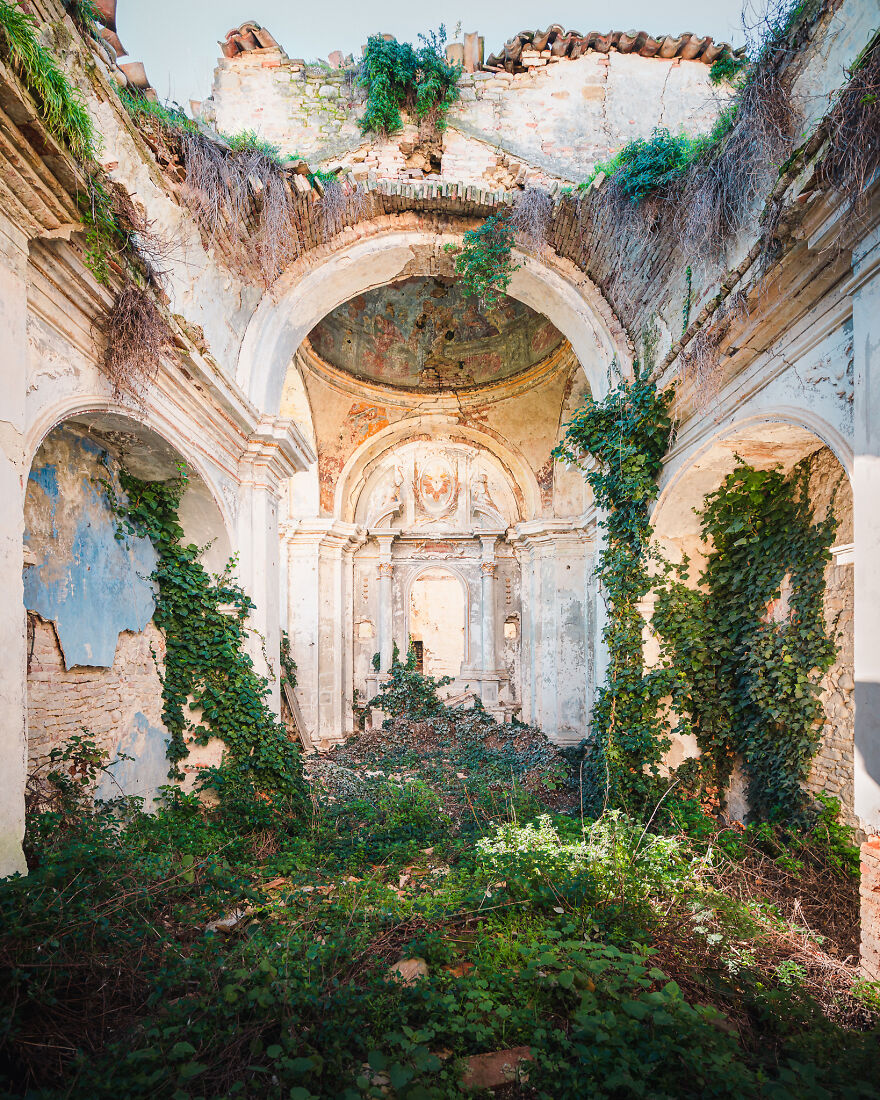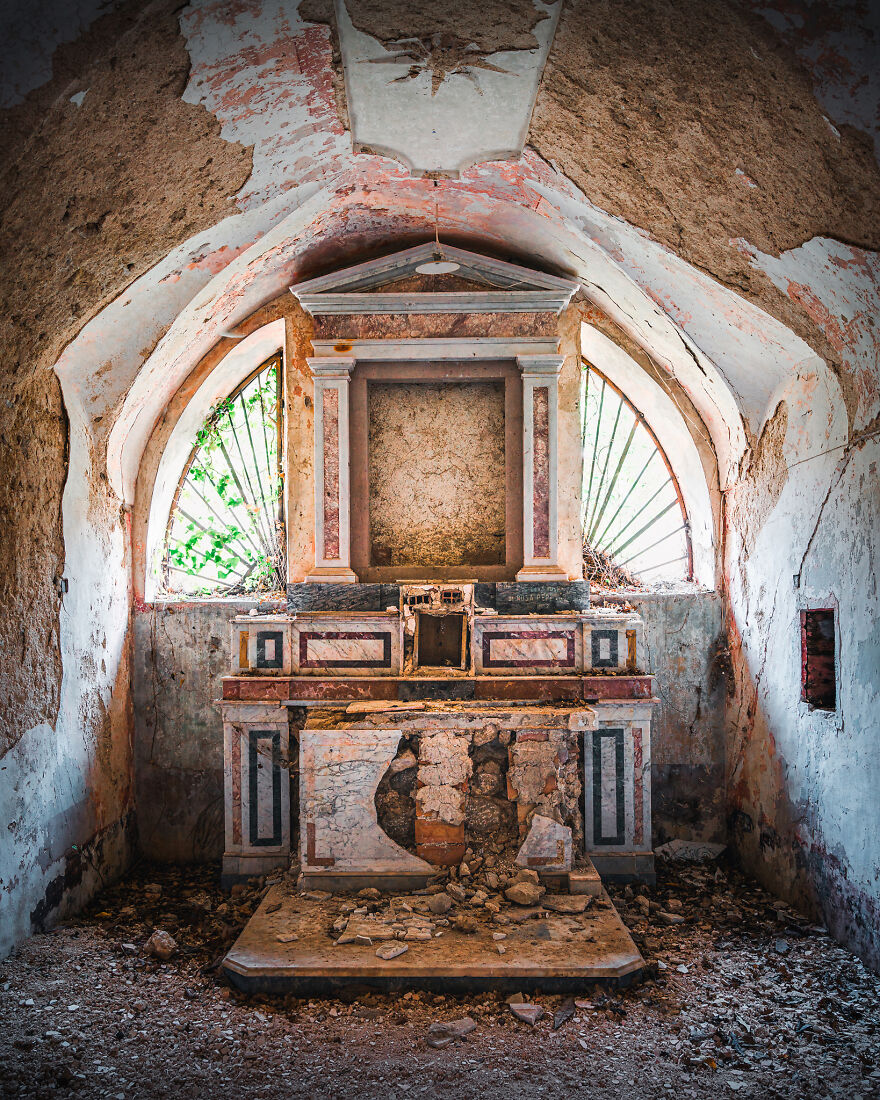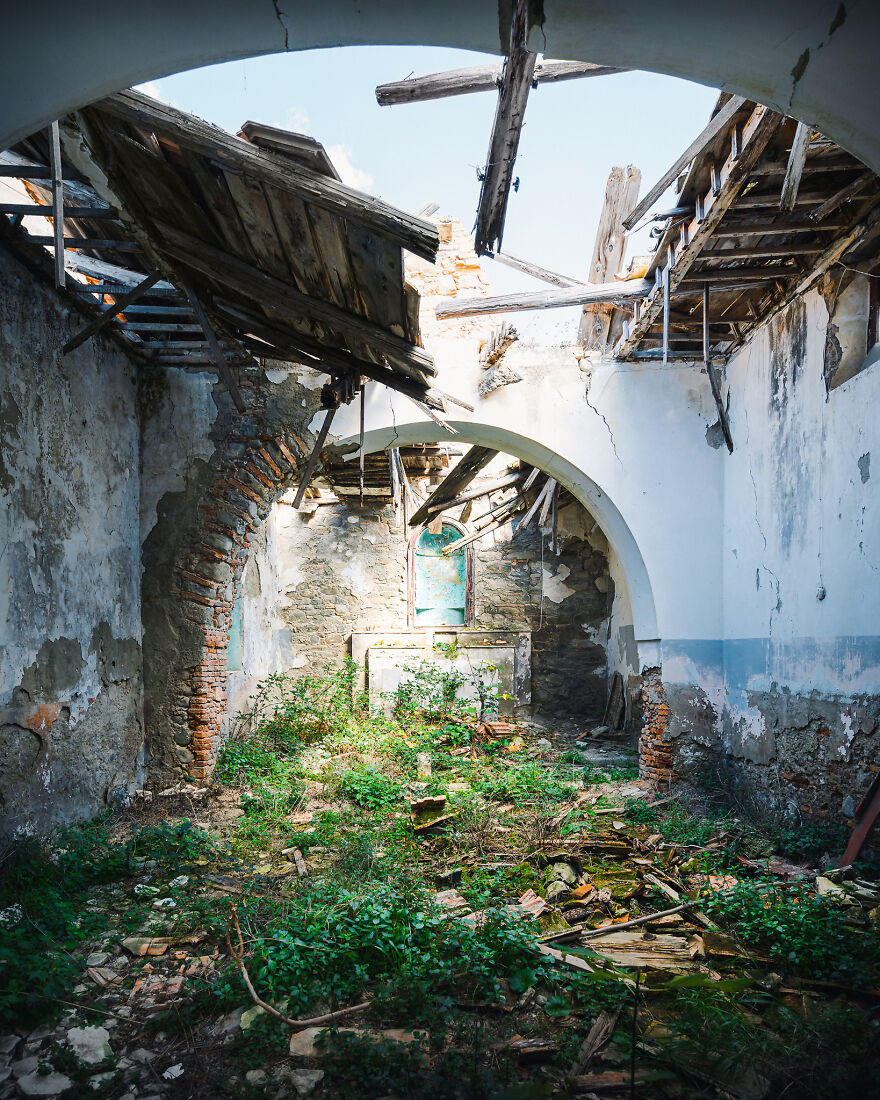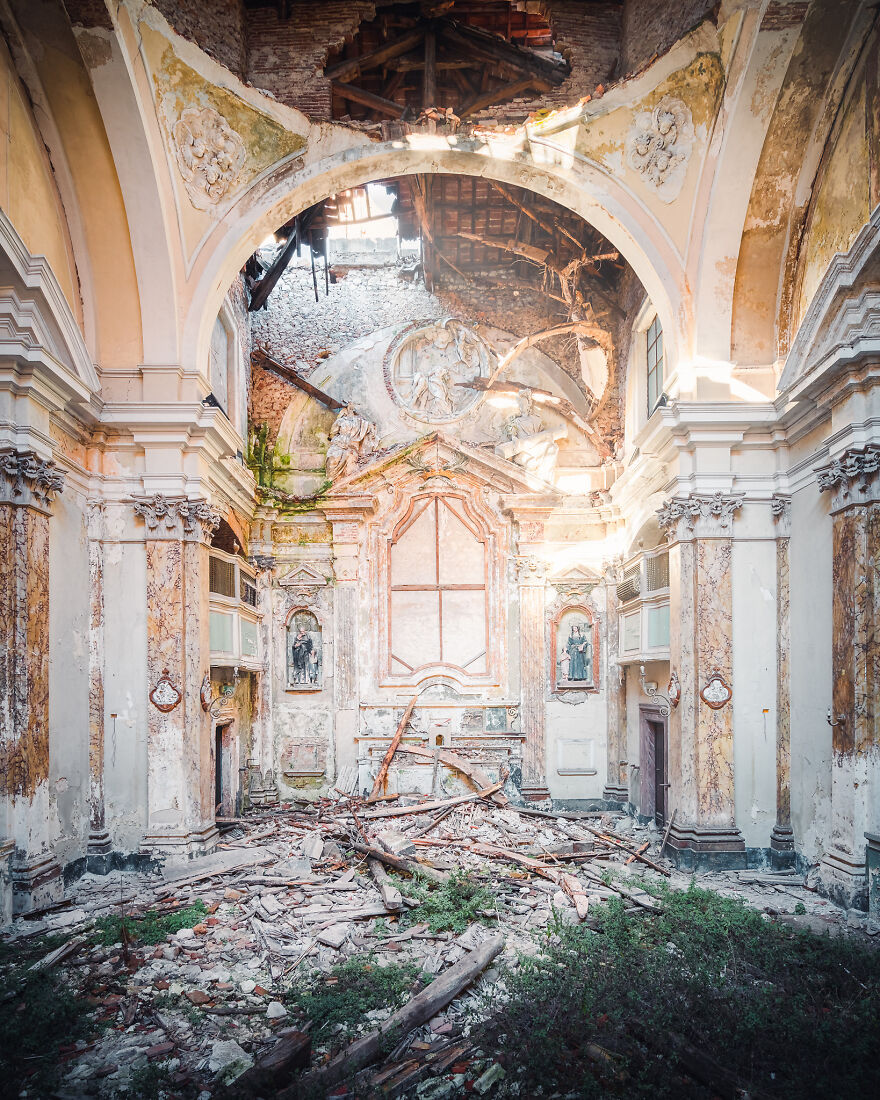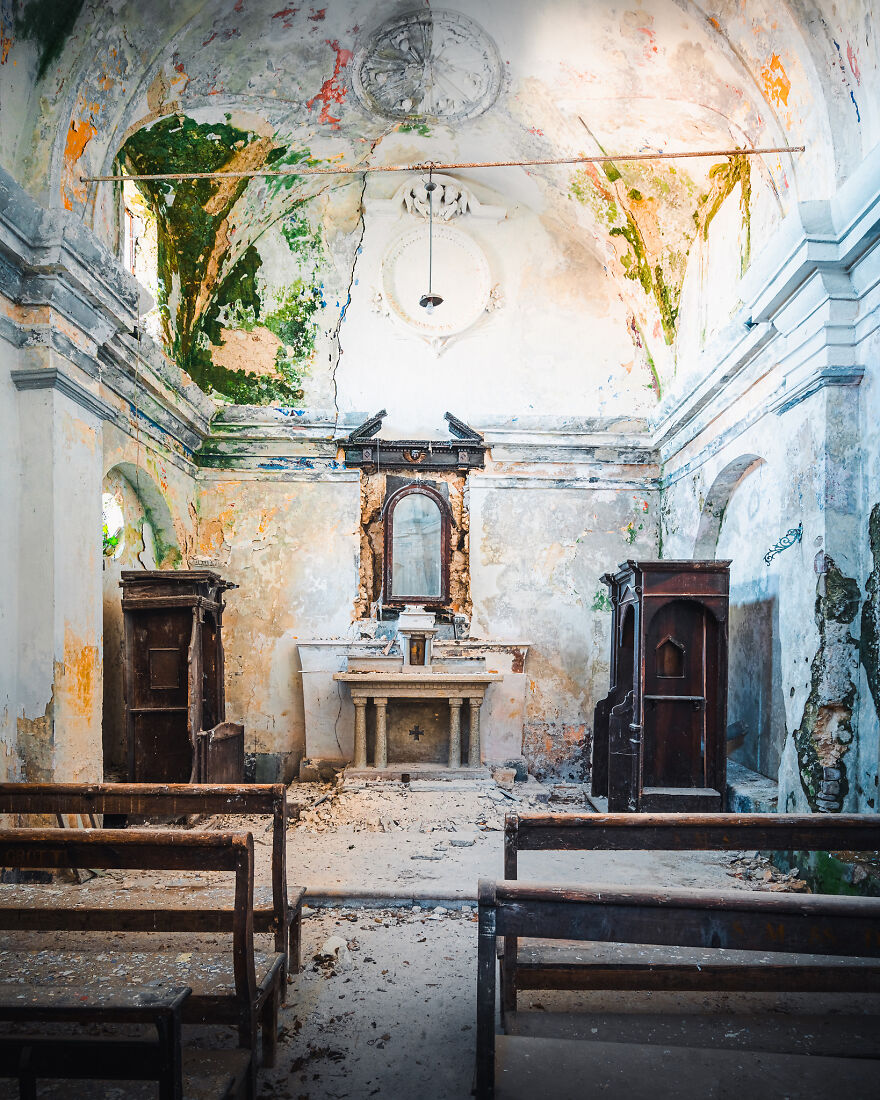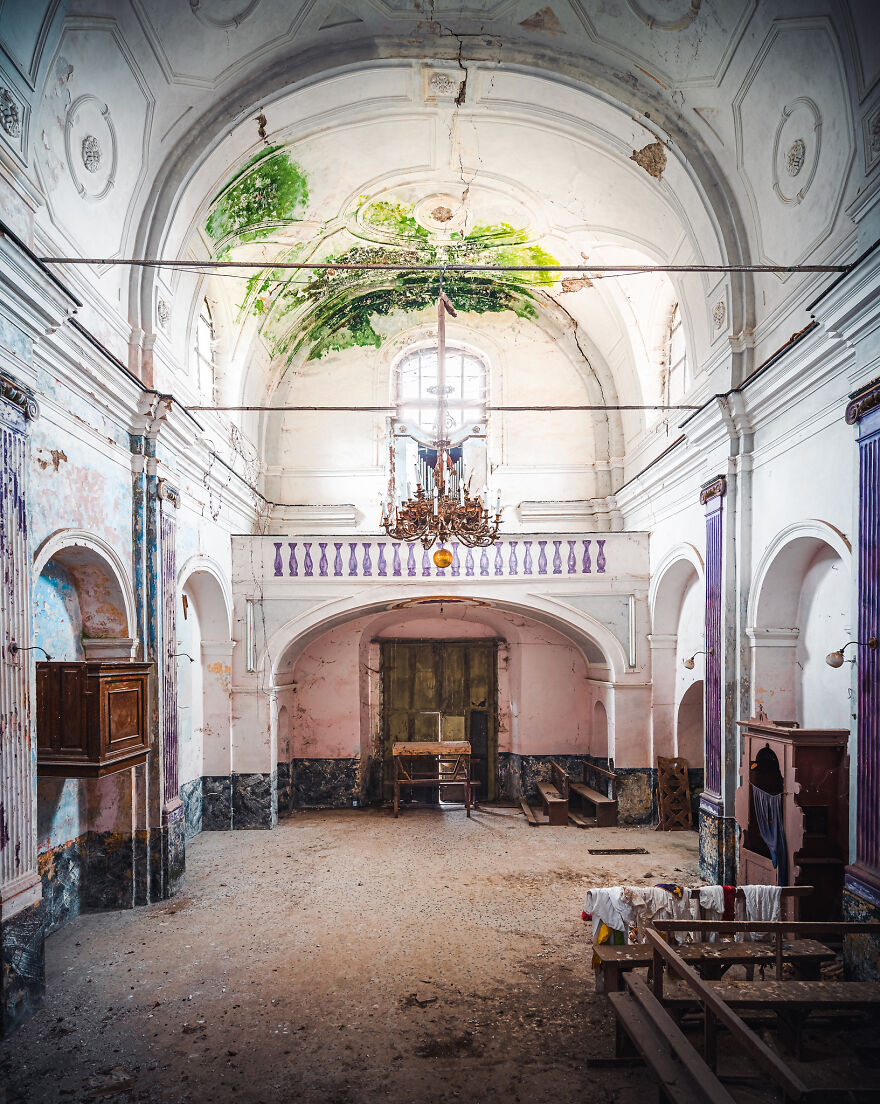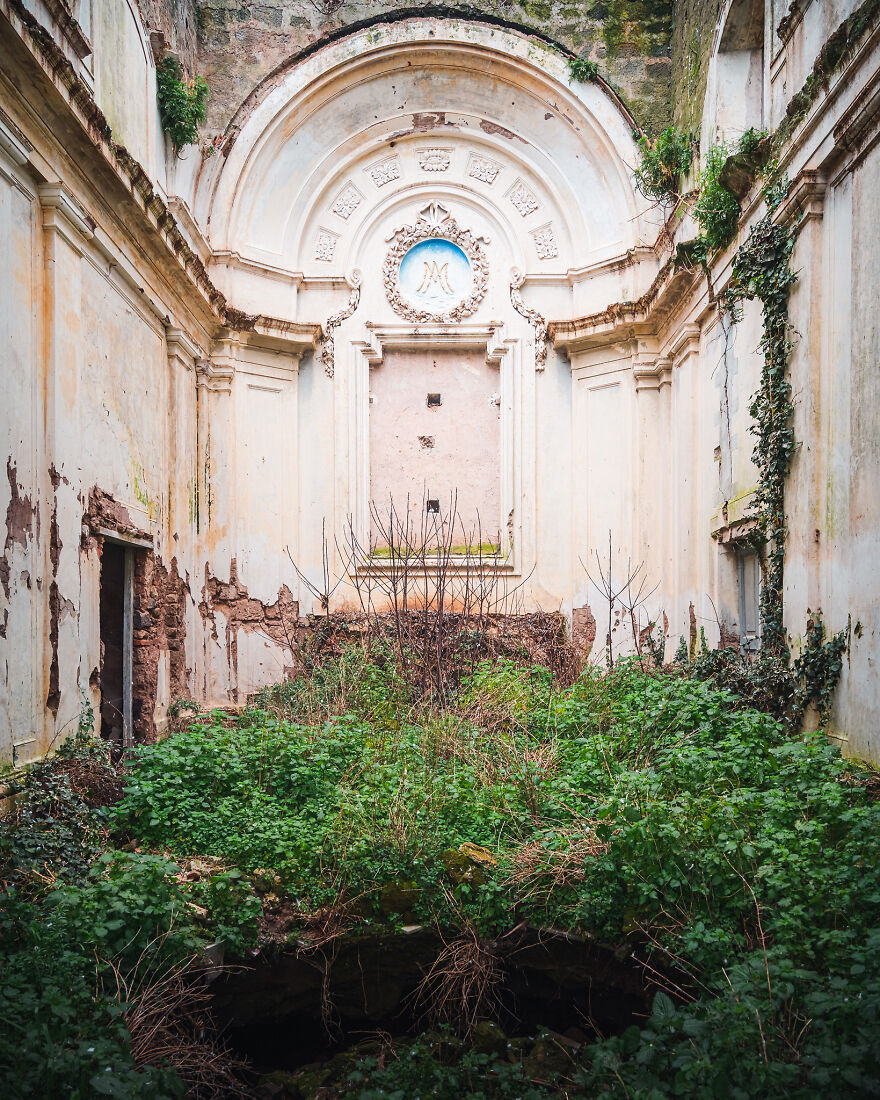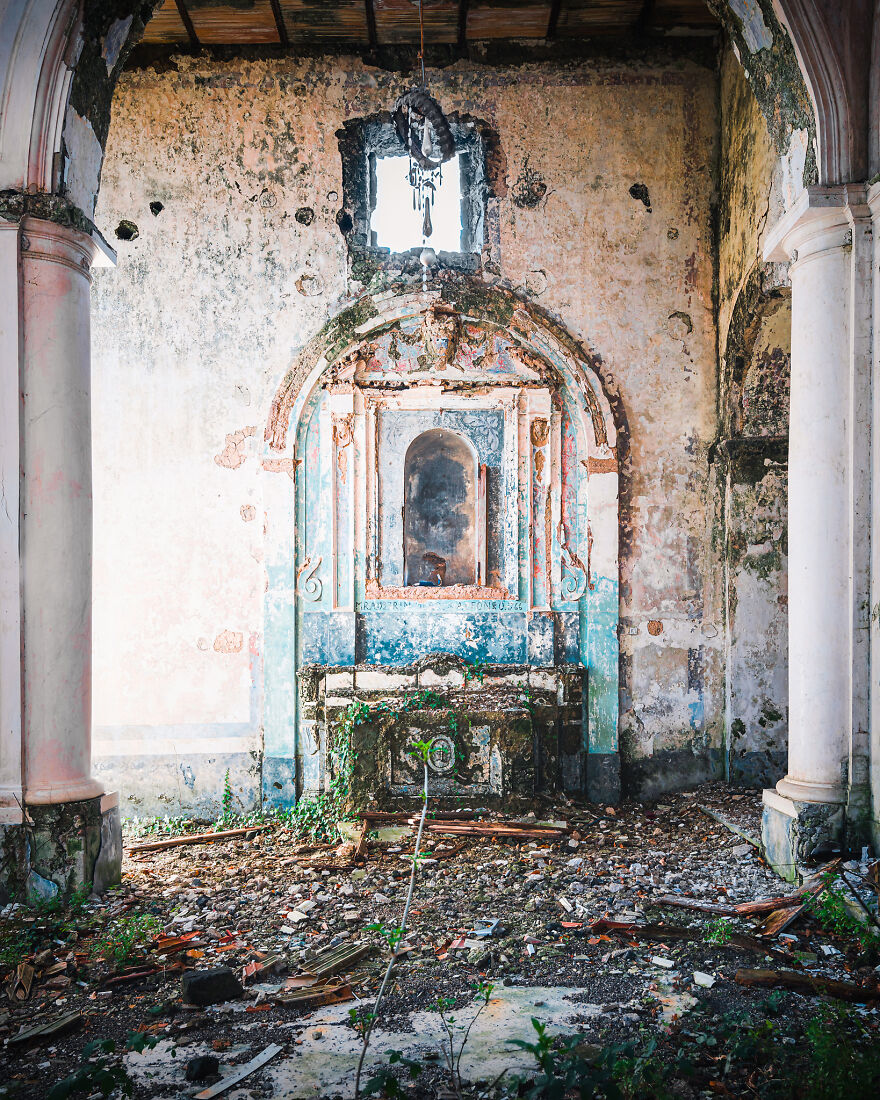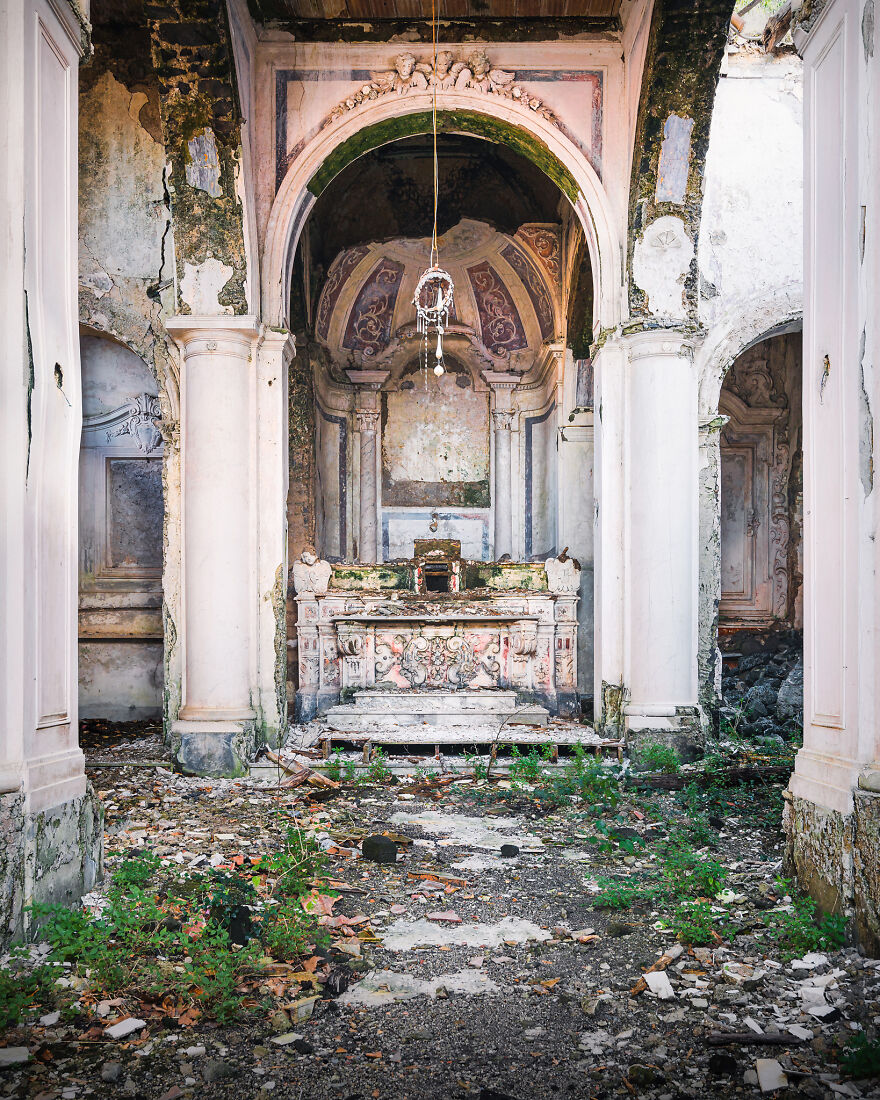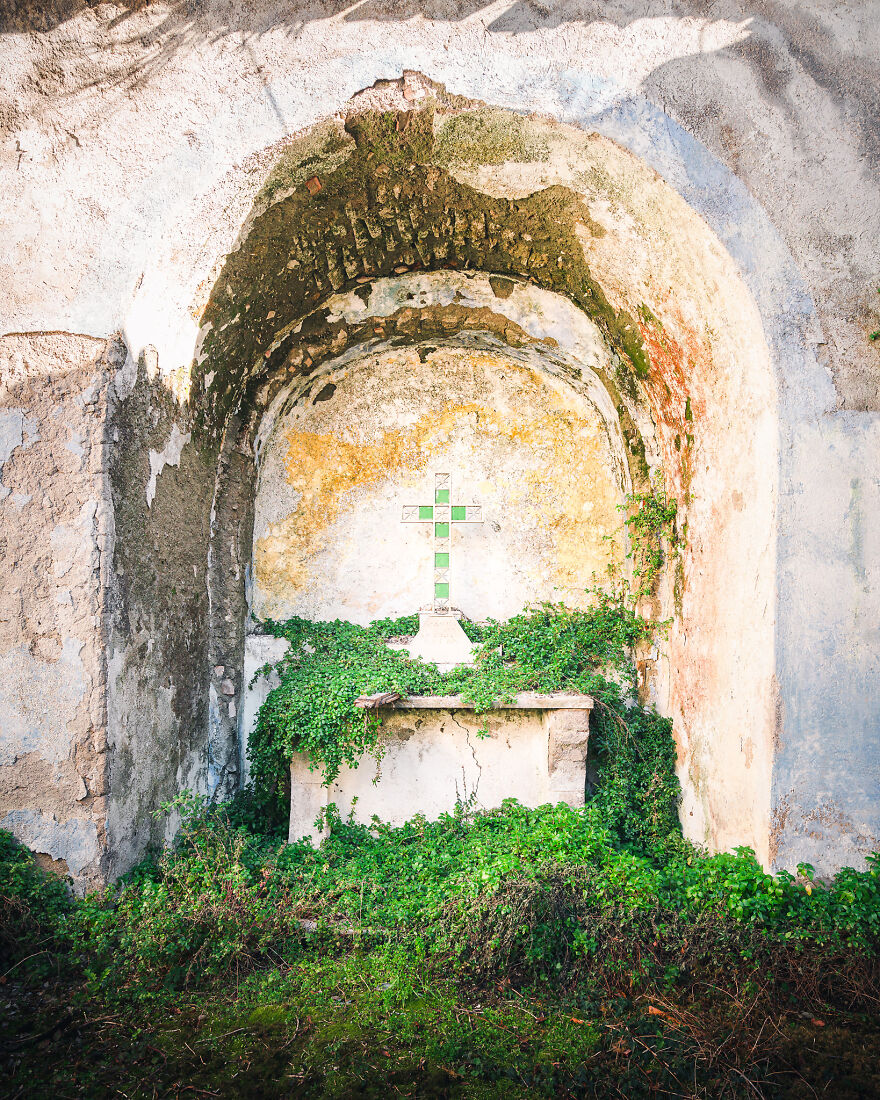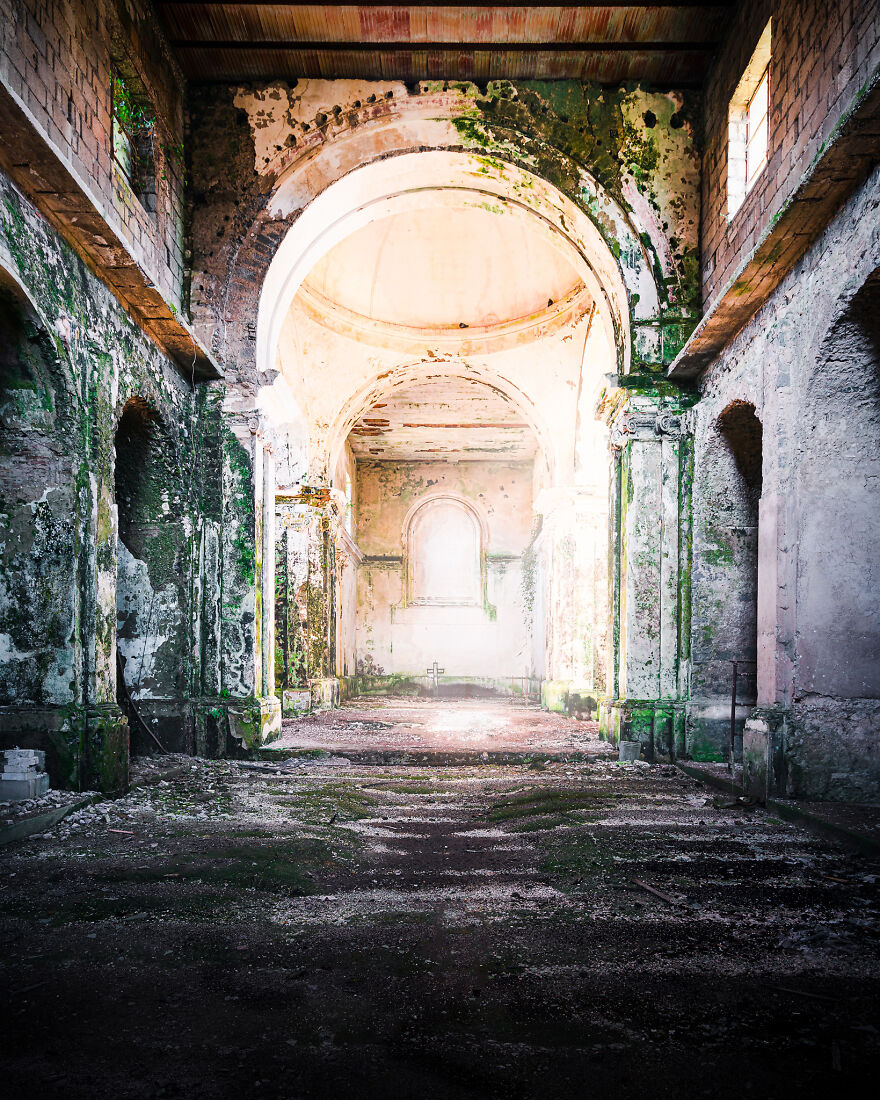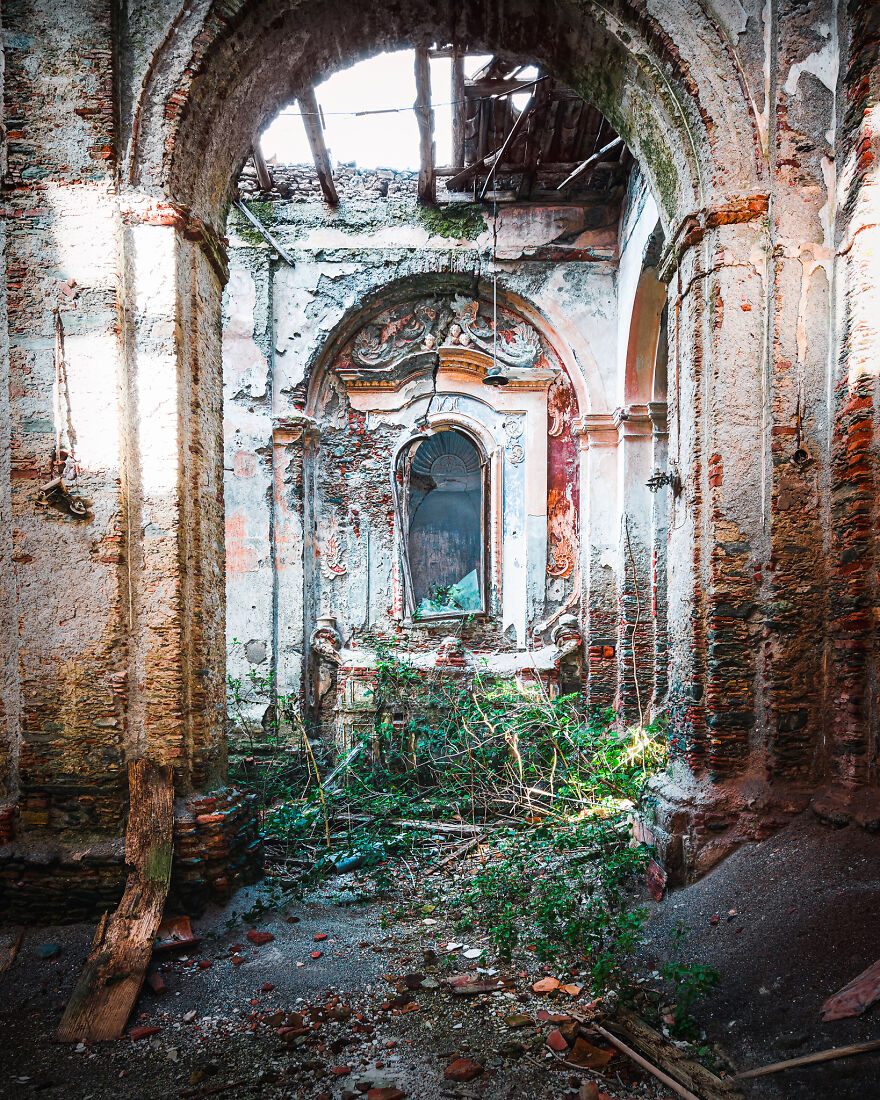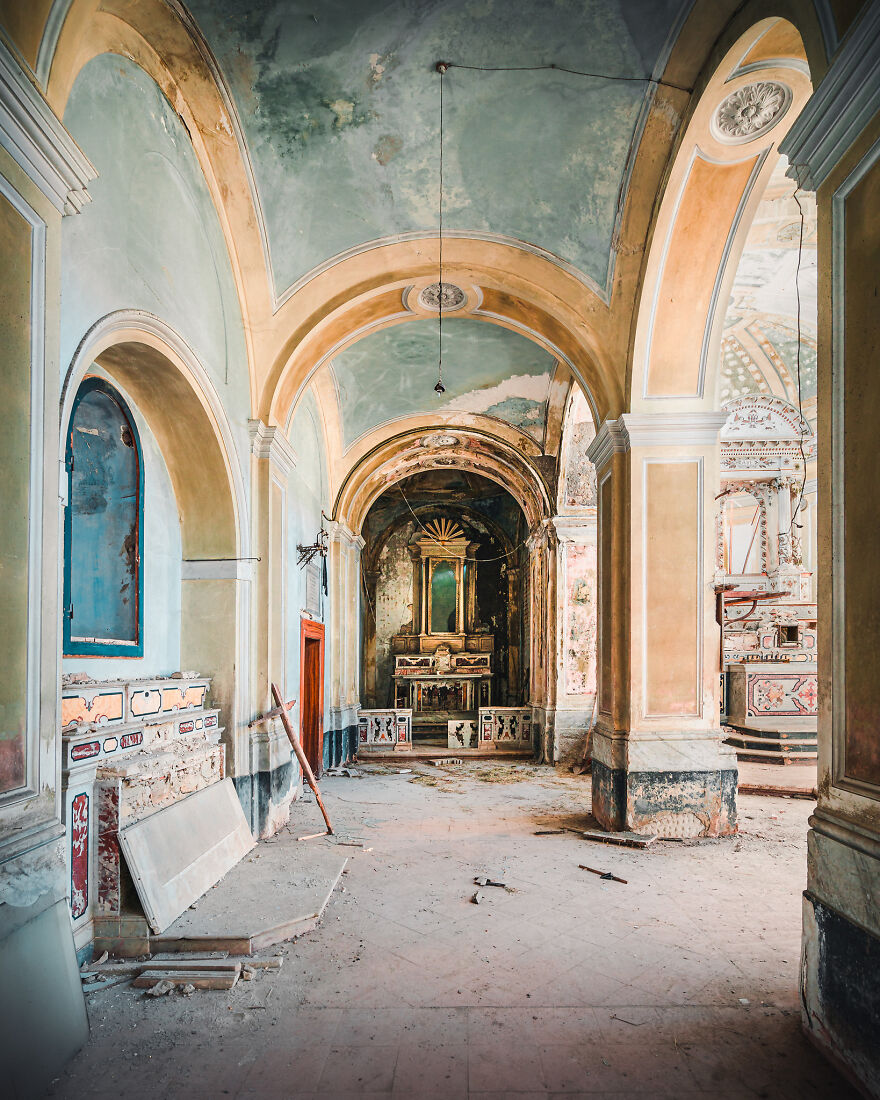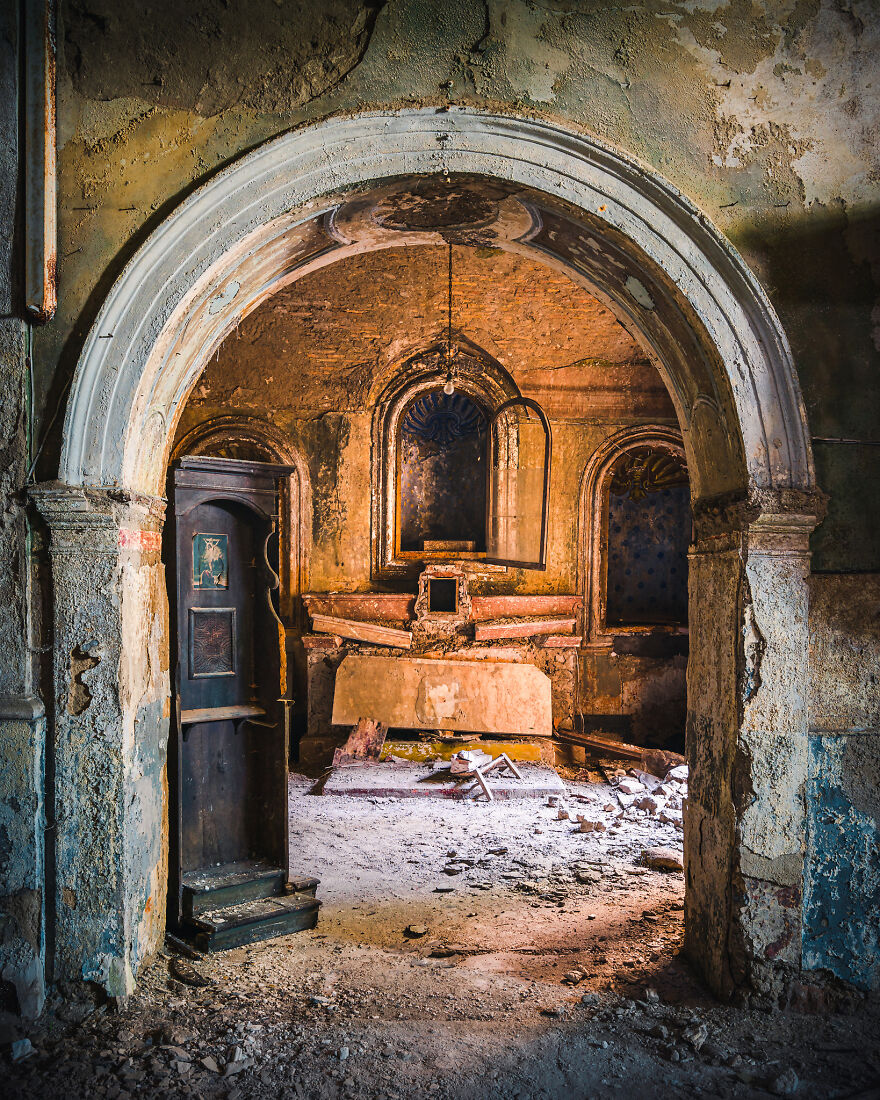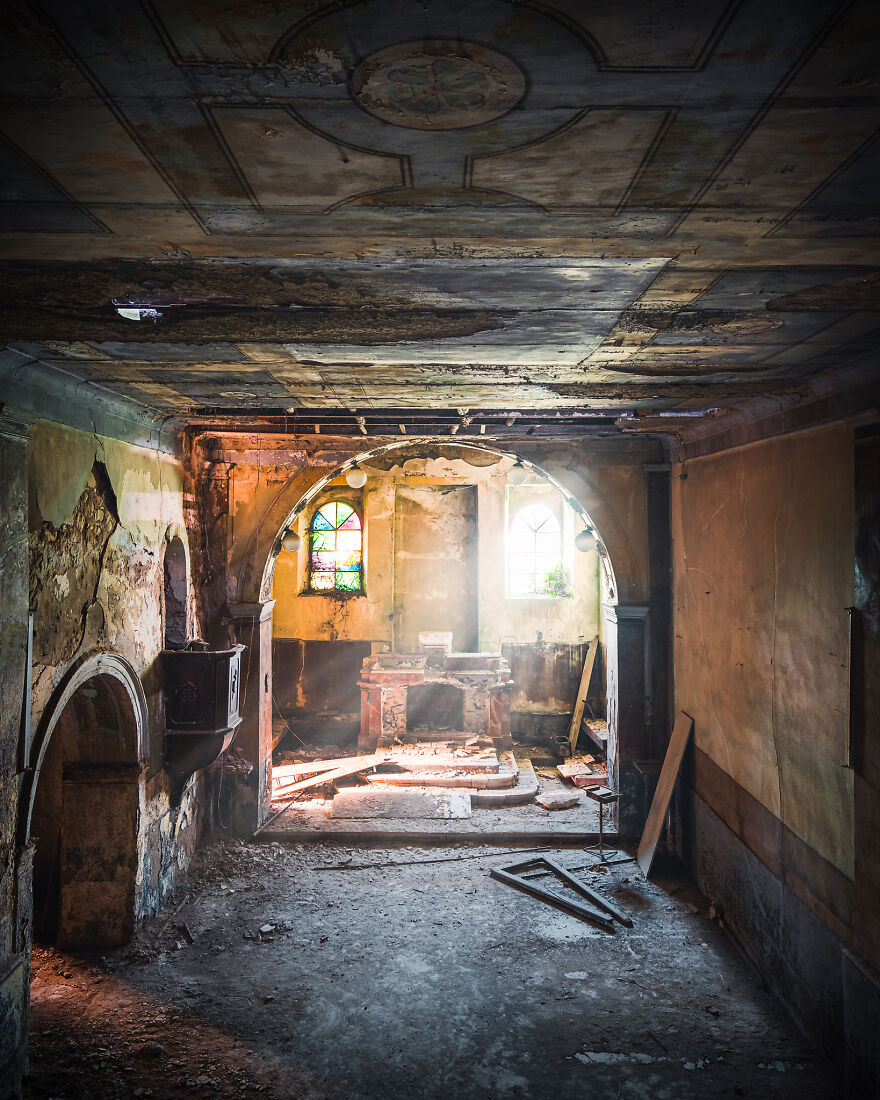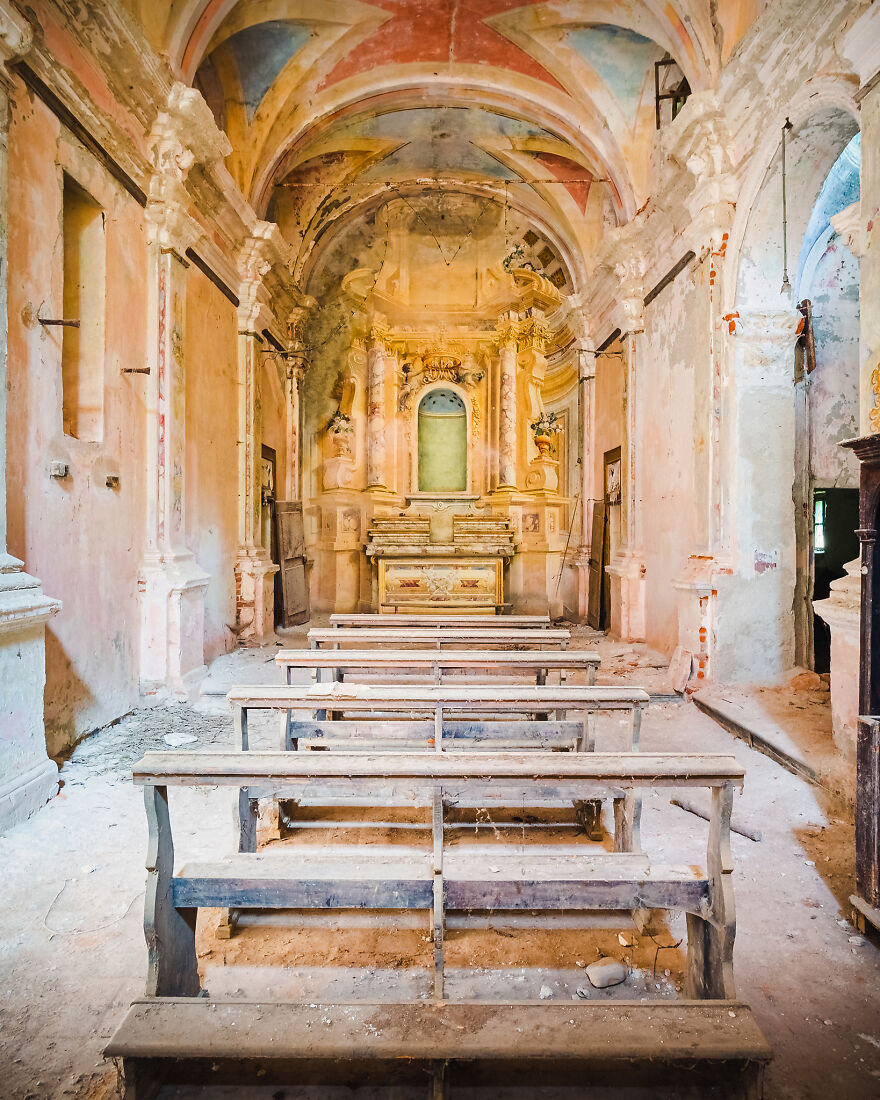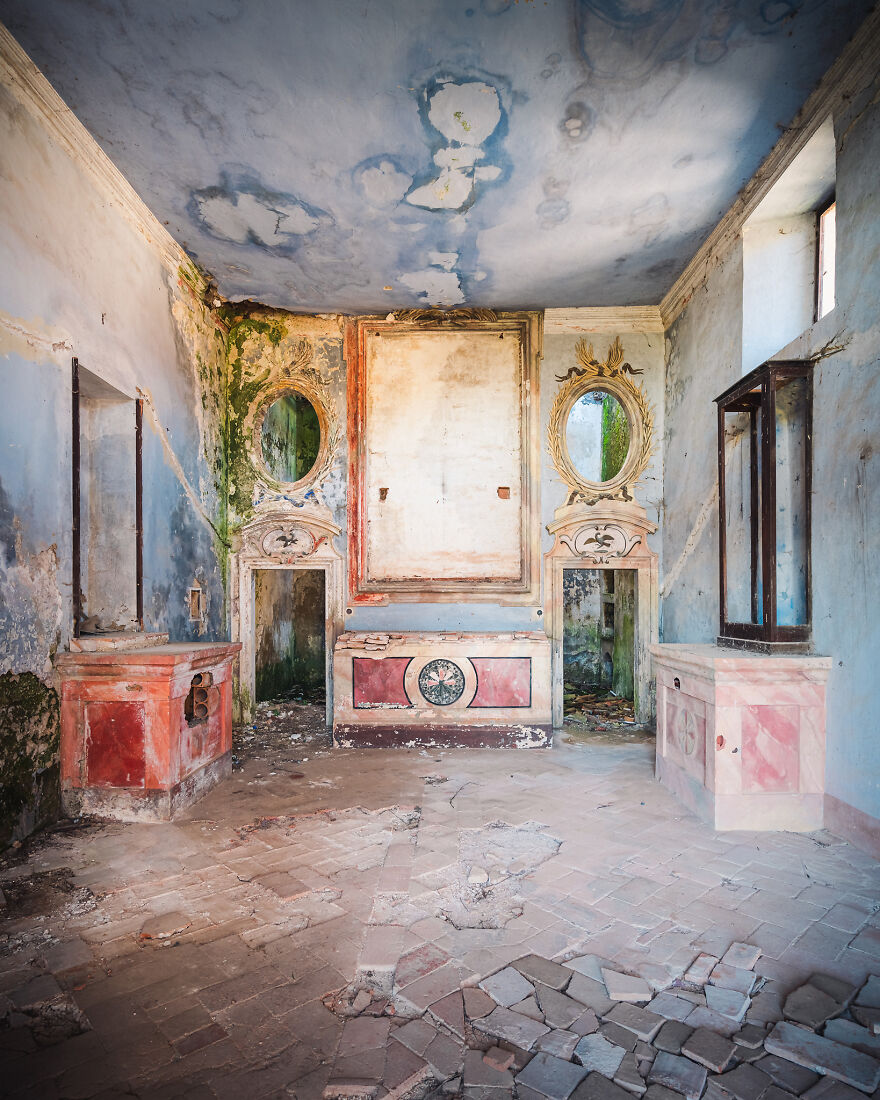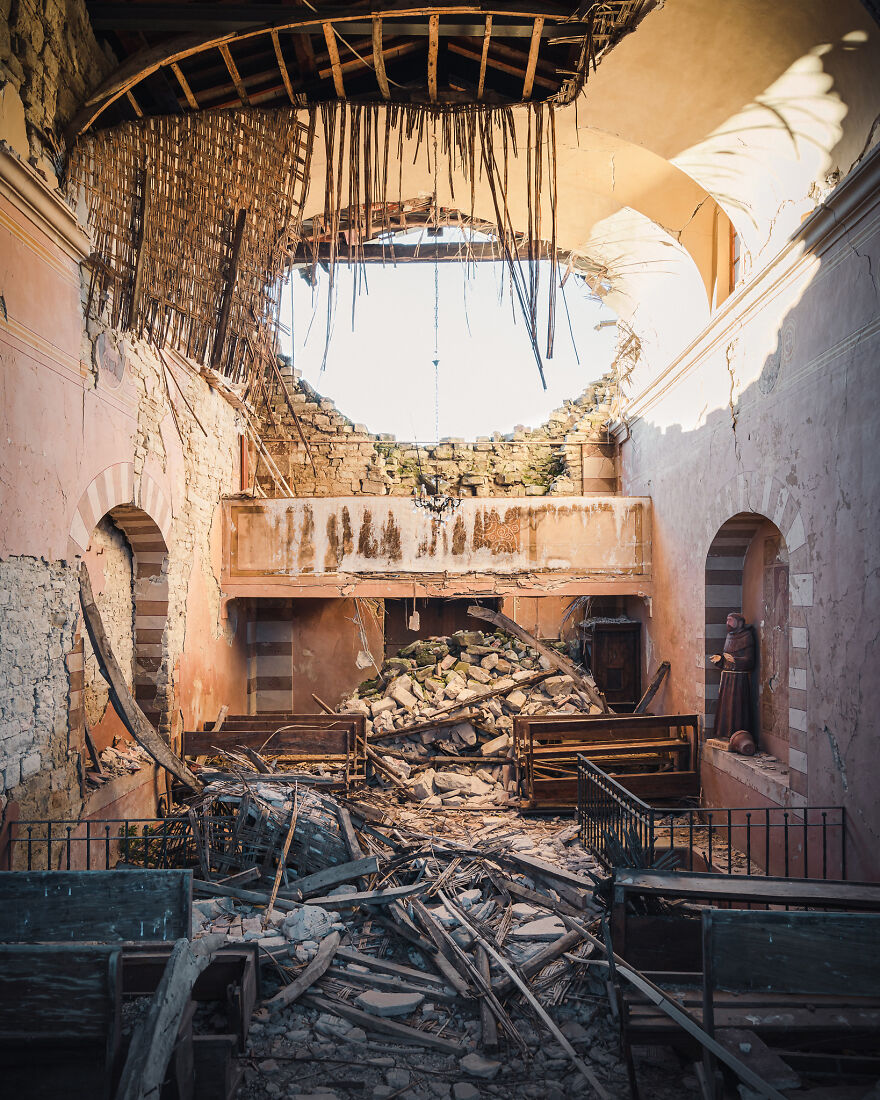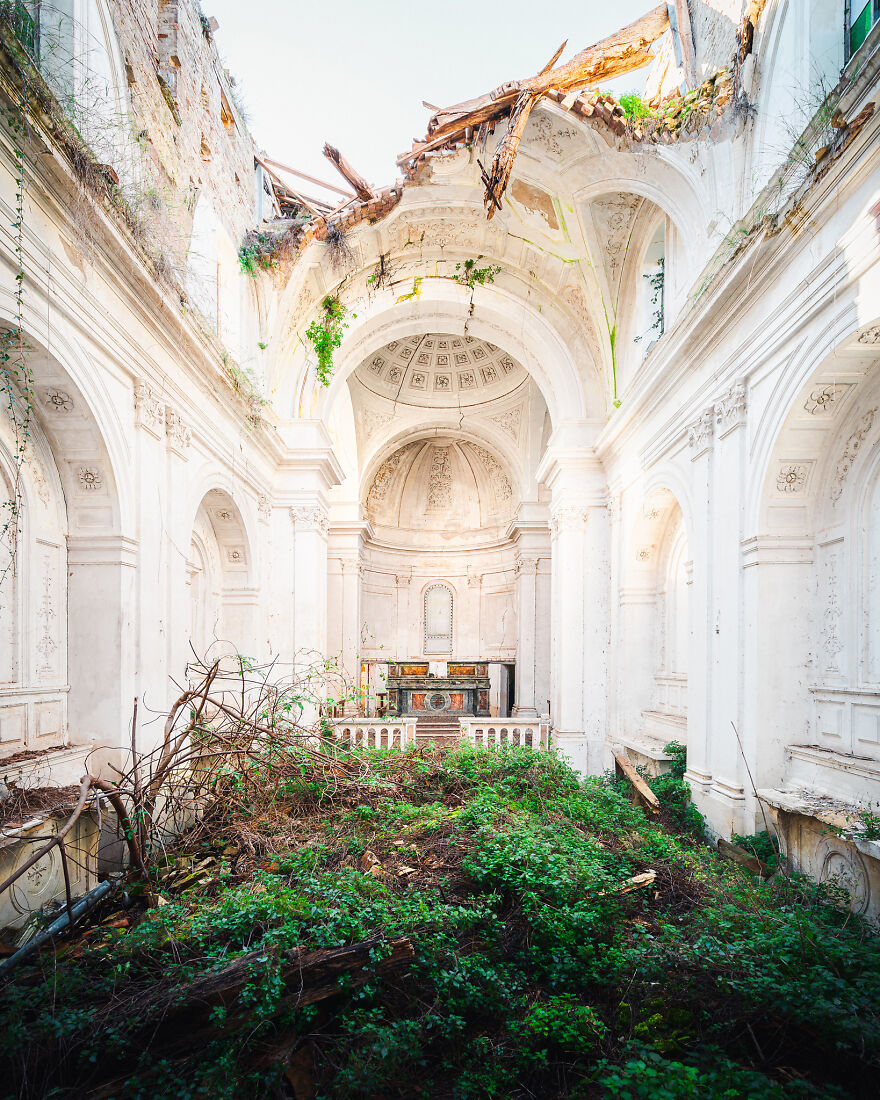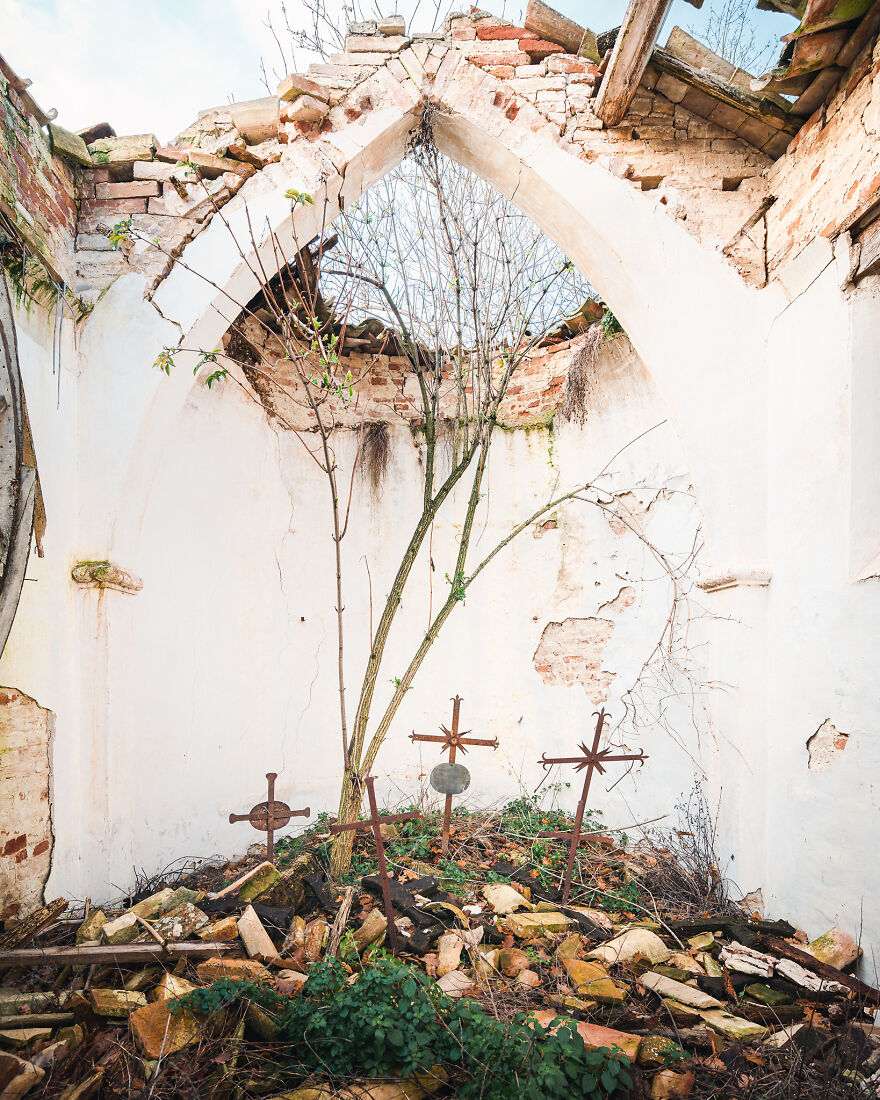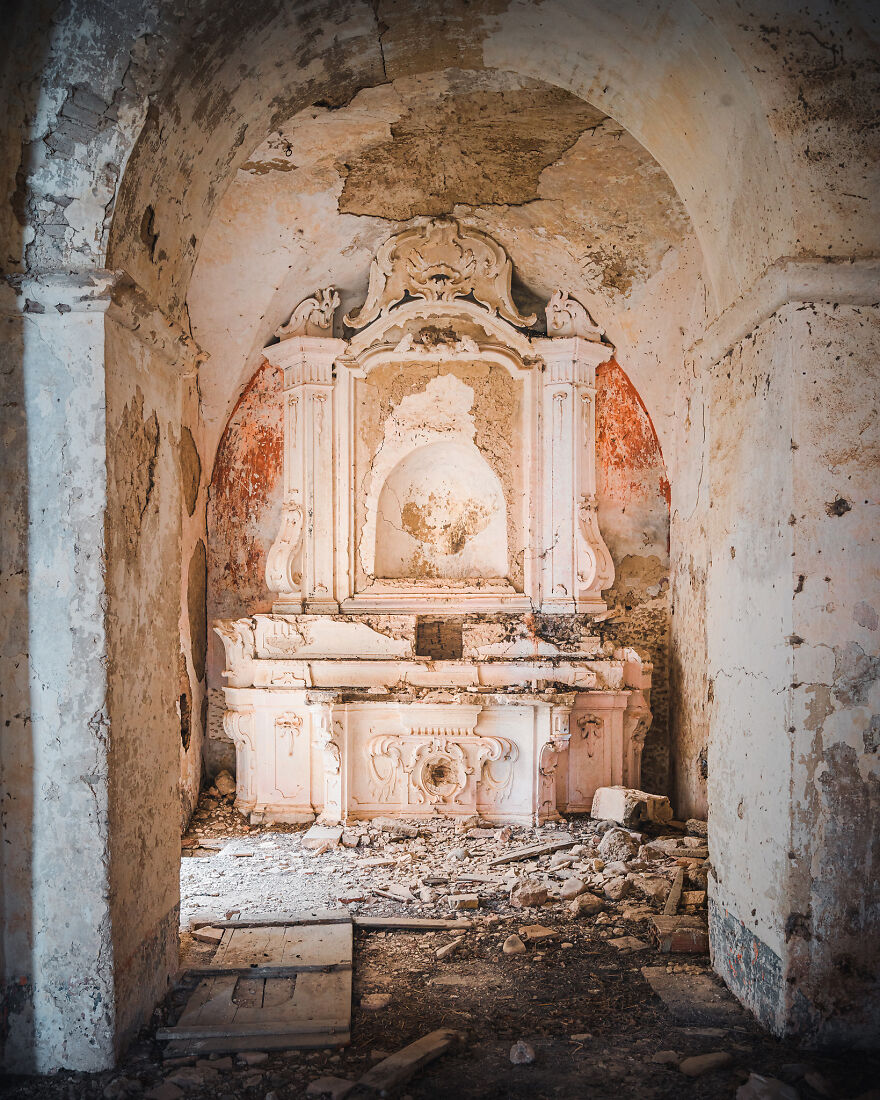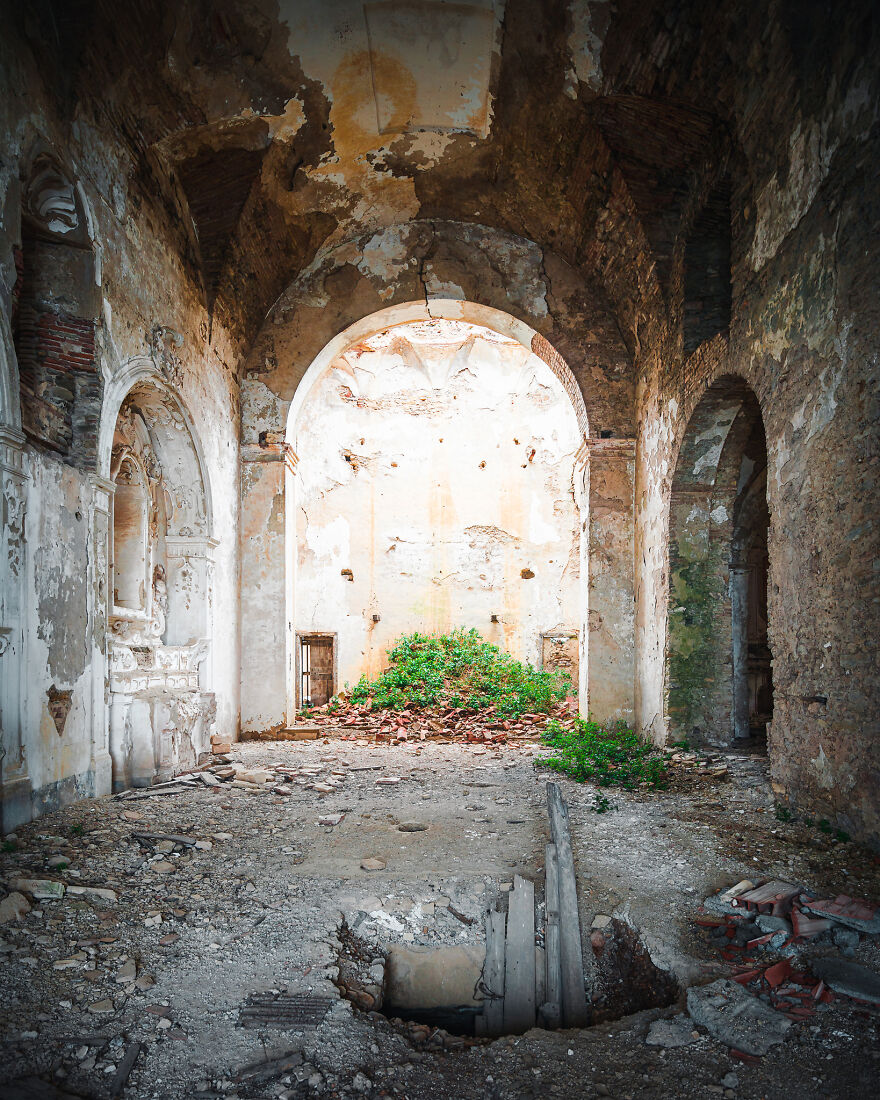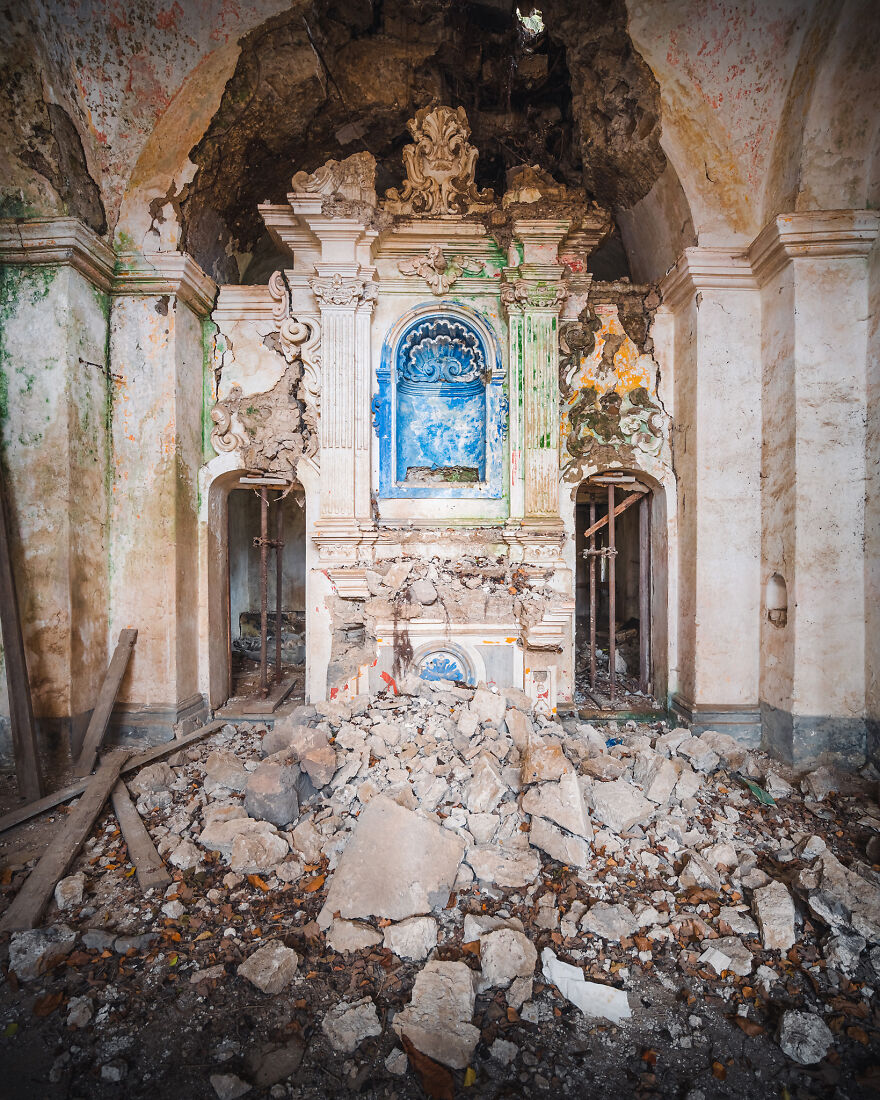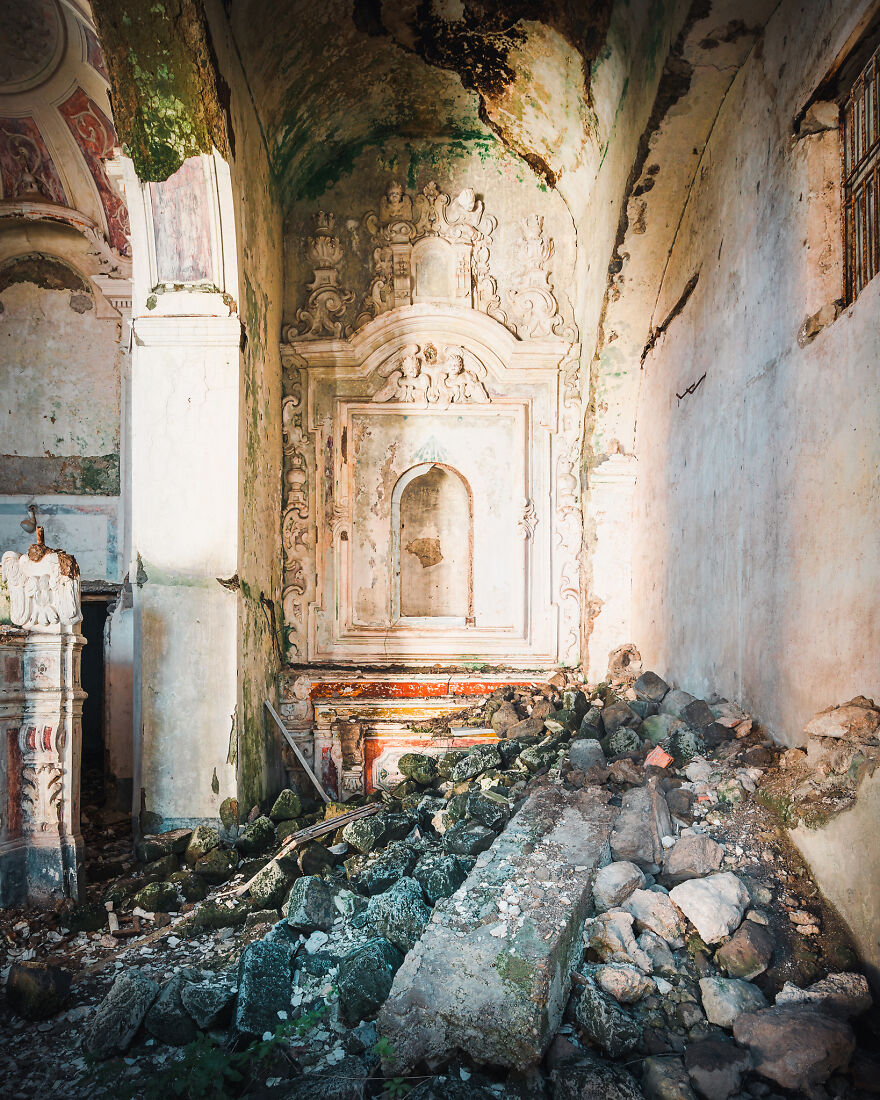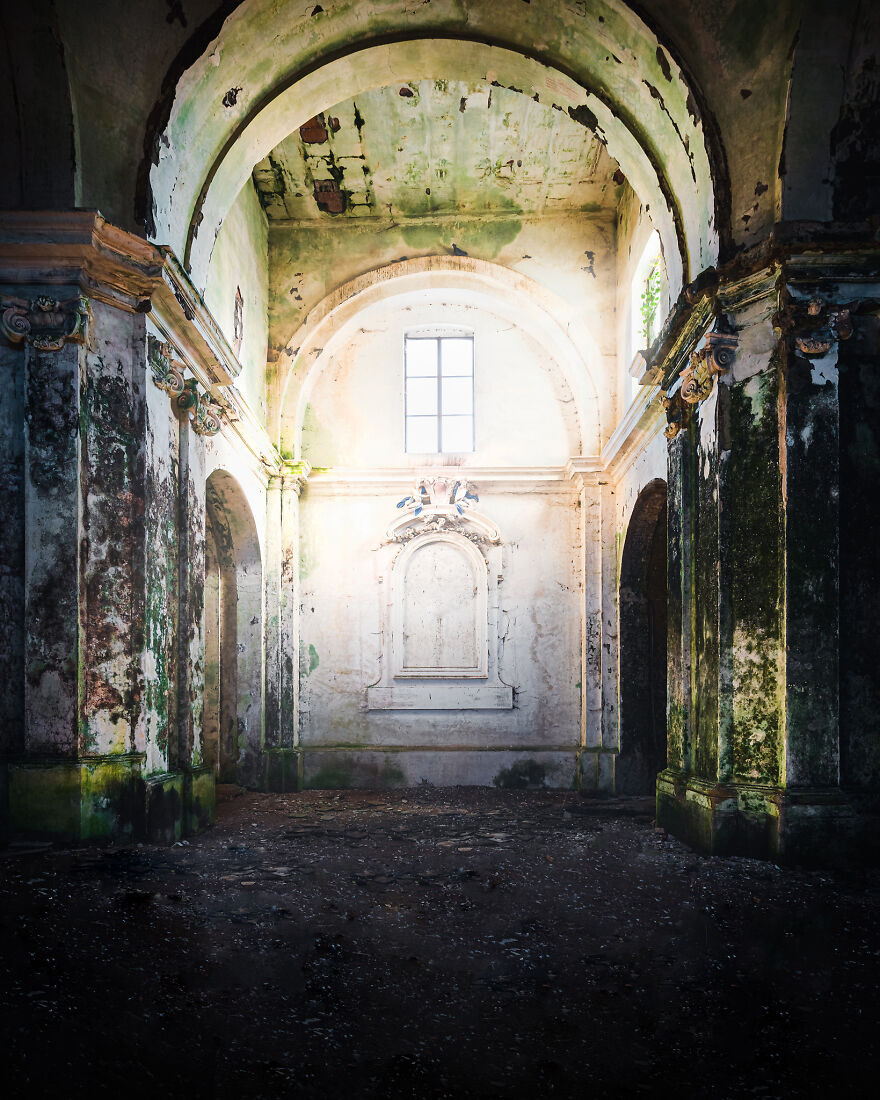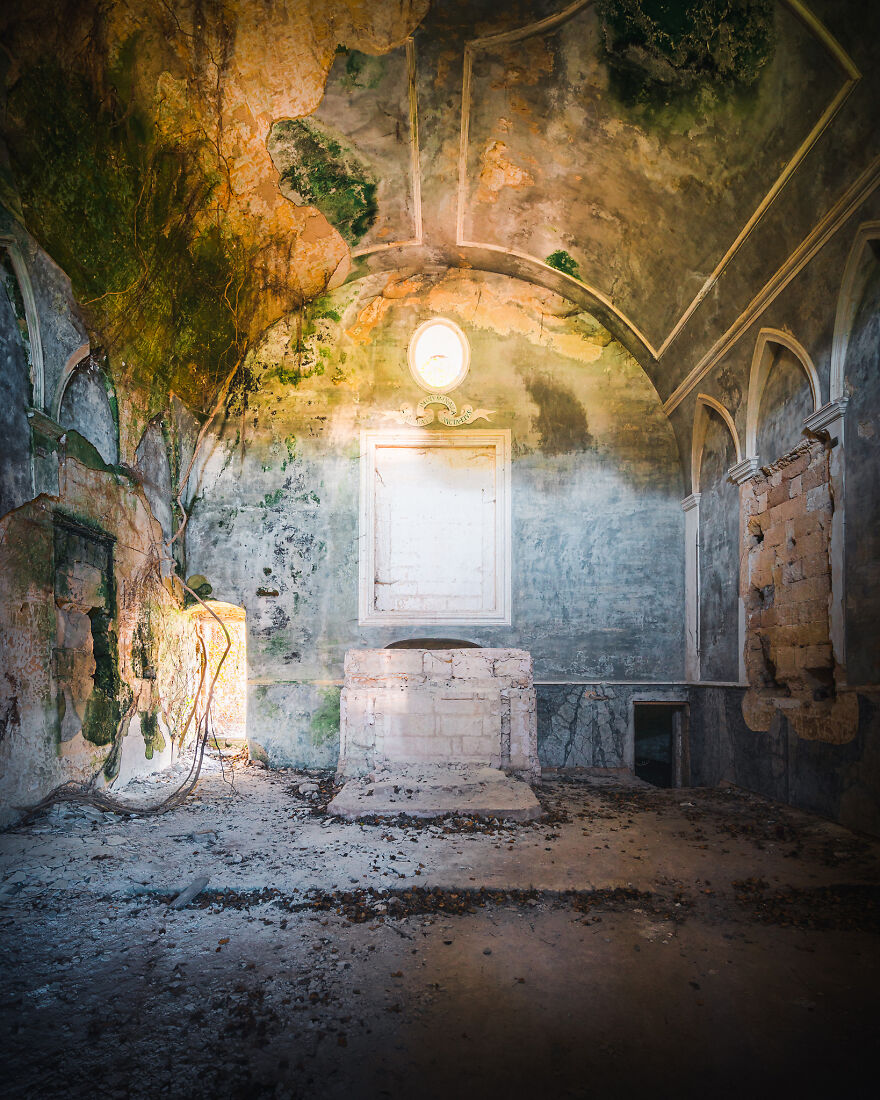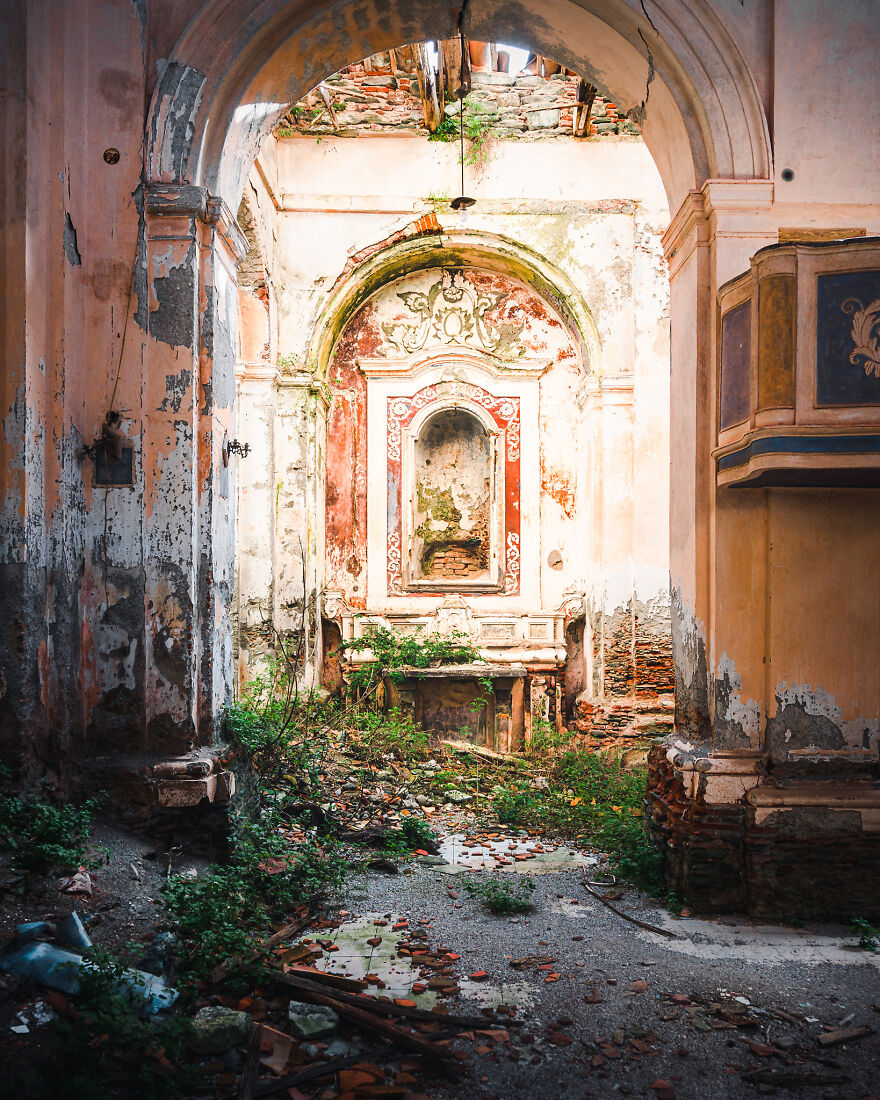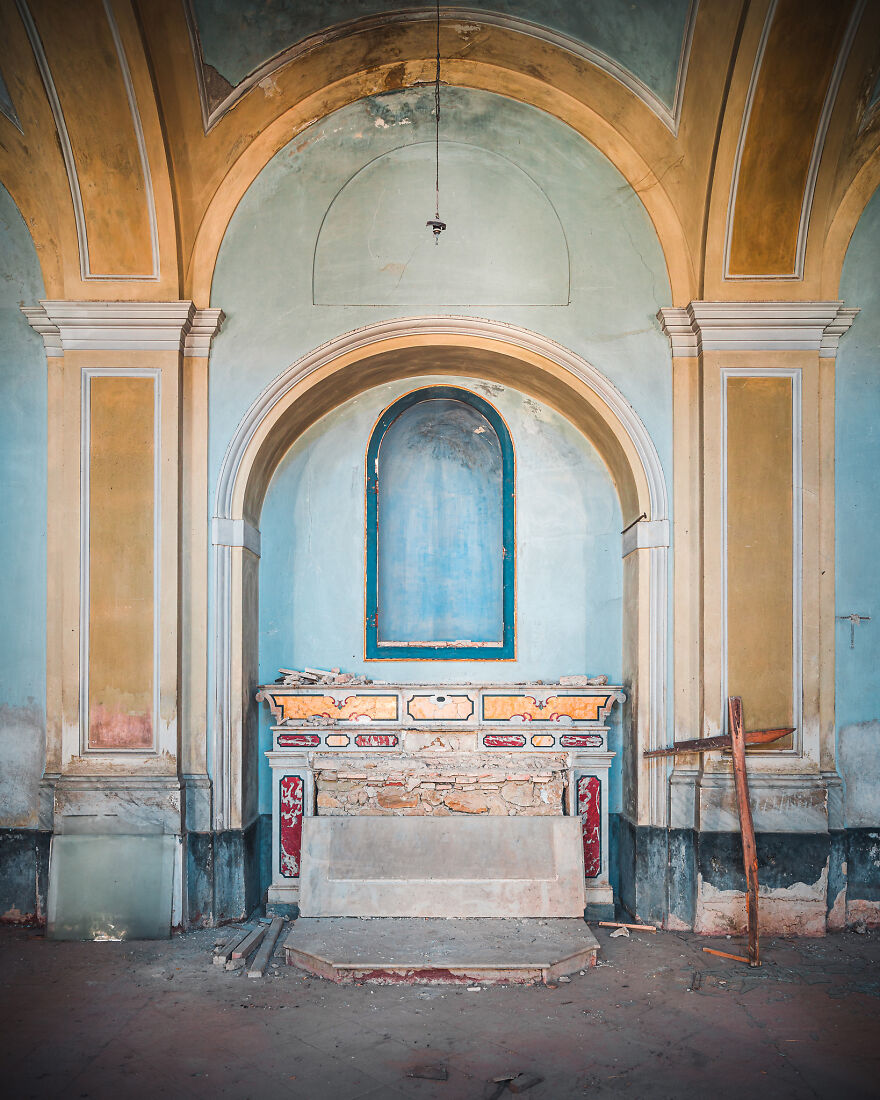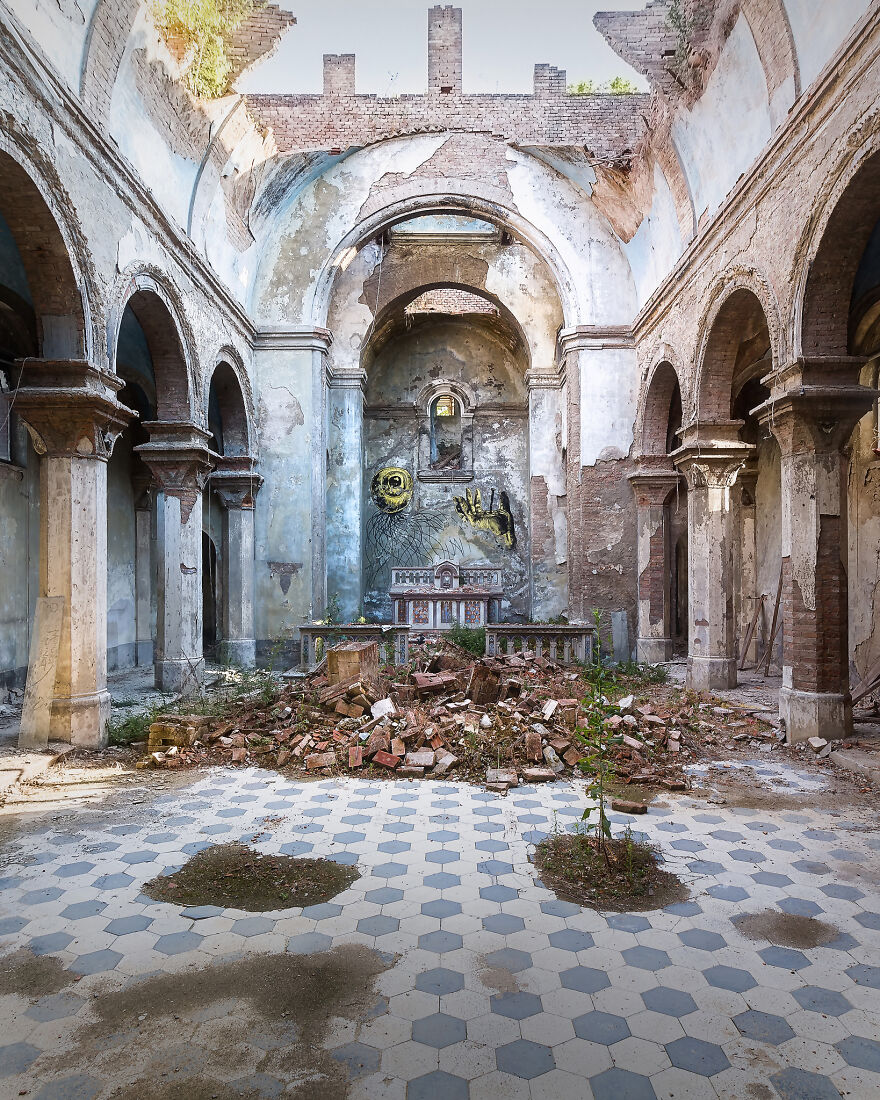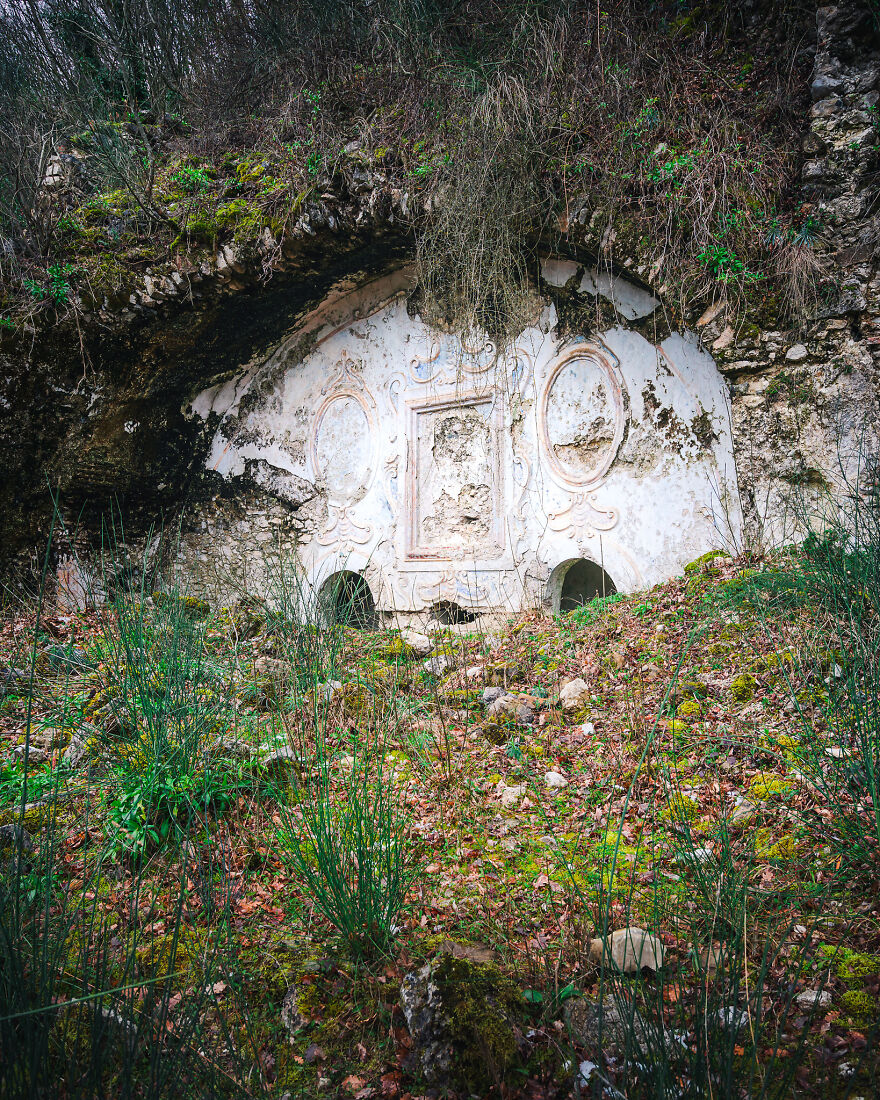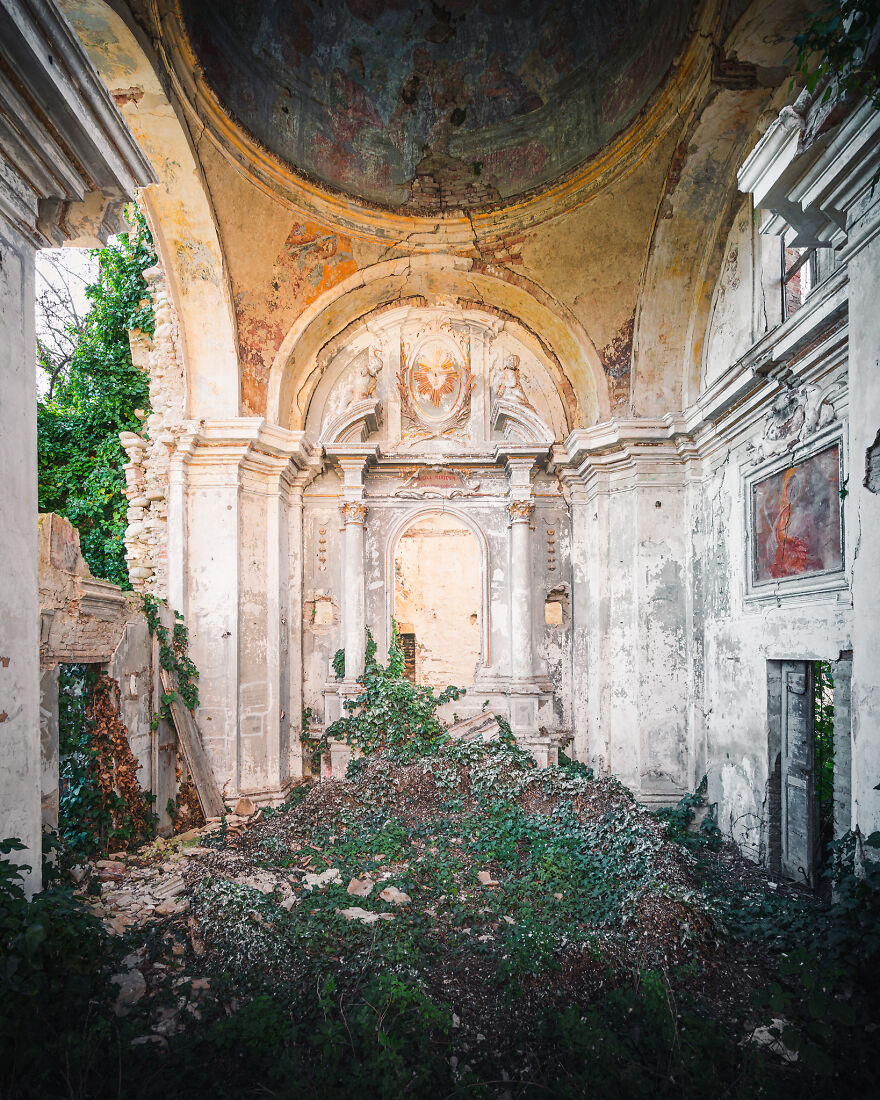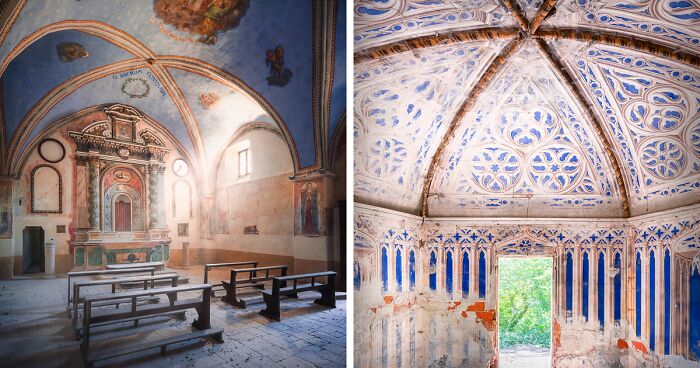
6Kviews
My Photos Show The Decline Of The Church In Italy, And Here Are 40 Of The Best Ones
Church buildings have been a mainstay feature throughout Europe for centuries. From quaint country chapels to luxurious and majestic cathedrals, the “Old World” is home or has been home to hundreds of churches. Some of them are maintained in pristine shape, highly regarded as national treasures, while others meet a rather different ending, being left in the hands of time and its relentless way of decaying things.
Italy is a perfect example of a country that, despite greatly valuing its history, architecture, culture, and connection with the Church as an institution, still features its share of abandoned churches. In this post, you will find 99 photos of abandoned churches and chapels that I photographed throughout Italy.
From the far north of the country down to the most remote areas of the southern Italian islands, there are remnants of ancient churches, some of which are only known to smaller local communities. In some cases, abandoned churches and religious buildings might not even be known outside of the lore of a specific neighborhood, and as time goes by, knowledge of these places and their past history gets simply lost through time. Even large cities like Naples in the Campania region are actually home to many unsuspecting former churches.
The historical center features many residential buildings that simply morphed into homes from their origins as former chapels, as urban expansion swallowed what was there before. Take the historical building at Via Nilo 22, “Palazzo di Ludovico Di Bux.” Even the current residents might not realize the premises were once a church, with some of its decaying features still visible to this day. This building belongs to a long list of former churches, sections of which are currently still decaying in plain sight, without even any proper documentation due to loss of records through the centuries.
More info: romanrobroek.nl | Instagram | Facebook | twitter.com
This post may include affiliate links.
My inspiration to explore and photograph abandoned buildings comes from my passion for history, architecture, art, and adventure. This combination comes brilliantly together in documenting the amazing things I find behind closed doors. It’s often a surprise what I run into after entering an abandoned building, and it rarely disappoints.
To capture these places, I travel all over the world, and I’ve been to over 20 different countries where I photographed over 2000 abandoned buildings. For this post alone, I photographed over 100 abandoned churches in one single country (Italy). My favorite country to explore and photograph abandoned buildings, therefore, is Italy, where I photographed some of my favorite abandoned buildings ever. Such as the abandoned Castle of Sammezzano.
You might wonder how I find all of these places. Since I’ve been doing this for about 12 to 13 years, I consider myself lucky to have built a small but strong network of like-minded people, and we help each other out. Next to that, I search for clues on the internet (e.g. in local news articles), virtually drive around areas in Google Streetview, or actually, go to an area, sleep there, connect with locals, take my car, and drive around keeping my eyes open. That’s great fun!
Did the people relocate the remains from this grave before abandoning the church or was this grave robbed? I'm no expert on abandoned churches in catholic regions, so I'm interested in this question.
why dont they build hoses in them . so beautiful and just getting ruined
I’m grateful for being able to photograph, document, and share these abandoned buildings for such a long time. It allowed me to experience areas and cultures, and connect with people, that I would otherwise not have experienced or connected with. It also enabled me to start something as a hobby that turned into a part-time professional company selling prints, licenses, a book (Oblivion), and more. I can’t wait to explore more of the world, and Japan is most likely next! A country that I haven’t been to before, that has stunning abandoned buildings and a culture that I’d love to experience.
Whether in a busy city’s forgotten corner or swallowed by vegetation somewhere in the countryside, there are many abandoned or simply forgotten churches, chapels, and other religious buildings, slowly getting lost to time and fading from collective memories. The notion of Italy being home to many abandoned or decaying churches is a rather peculiar one for so many people. After all, Italy has a really tight bond with the Catholic Church in particular, with the roots of modern Christianity as an organization essentially dating back to the Roman Empire.
Just for a quick refresher, Christianity was originally considered a sect, a minority religion belonging to Jewish immigrants who moved to the area. Progressively, Christianity gained more traction, up until a massive turning point, when Roman Emperor Constantine The Great (AD 306–337) kickstarted the transition of Christianity into the mainstream religion of the Roman Empire, replacing the previous polytheistic pantheon. Constantine decriminalized Christianity in 313, and he was instrumental in ceasing the persecution of Christians in the Roman empire, in the event that is still remembered today as “The Triumph of the Church.”
To this day, historians and scholars are still speculating about the actual reasons leading to the Emperor’s support of Christianity. Was it simply a matter of faith, or was it more of a political strategy? Regardless, this event marked the start of a whole new era for the Church, which would go on to become an almost omnipresent entity throughout Italy, and Europe. This presence manifested itself in many forms, especially in the churches built through the years. Most churches were meant to represent the power of the Church through majestic artwork, tall ceilings, marvelous artifacts, and other stylistic appointments, presenting a huge variety of architectural styles throughout the ages. From gothic to byzantine, and even baroque, anything goes.
Consider this: The Basilica of Santa Maria in Trastevere, one of Rome’s most important churches, happens to be one of the oldest Catholic churches ever, dating back to 340, only a few decades away from Constantine’s decree. The proliferation of churches continued to expand for many hundreds of years, with almost a millennium of influence and power over Italian (and European) politics and society. We could write endless chapters about how the Church continued to acquire power and influence over the following centuries, with many churches being built as a result. Every little town in Italy has at least a chapel – the small town of Chianche, in the Benevento province of Italy, is not even on most maps, and it is barely home to 50 people, yet it has two churches, one of which is in disuse.
This town perfectly exemplifies the current state of churches in most of rural Italy. As secularism becomes more prominent and older, more chaotic generations are dying out, many churches are falling behind. There is simply a lack of resources or personnel to keep them running, leading to more and more of these local churches becoming abandoned.
Lack of interest in religion, or socioeconomic shifts?
The rise of secularism, as mentioned earlier, is often linked with a decline in church attendance throughout Italy. Ever since the age of illuminism, progressive thinking and more open-ended views on religion became tolerable as public views. All of a sudden, it was no longer dangerous to express doubt and even question the values of Christianity as a religion or an institution. At the same time, the idea that a slow but steady progressive decrease in religious fervor might have contributed to a lack of interest in some local churches is probably not the most likely cause for the majority of abandoned churches that are currently scarred throughout Italy. It is much more likely that other social and economic factors fell into place.
As mentioned earlier, it’s quite common to find abandoned churches in smaller rural towns and countryside areas. However, the churches aren’t the only things being left behind. Entire towns are slowly but surely fading out. Smaller communities consolidate into bigger ones, as people are leaving small farming communities like Chianche, mentioned earlier, to seek better opportunities in larger cities or abroad.
As communities wane, job opportunities wane, administrative resources decrease, budgets plummet, and many buildings fall into disuse, and eventually, decay. This has affected schools, former public facilities, and, more importantly, churches, who simply have no reason to stay open without any community to cater to.
A recent study, led by Luigi Bartolomei of the University of Bologna, focused specifically on the phenomenon of abandoned churches in Italy. The essay features data from the Church Census, comparing statistics in the Bologna area and on a national basis with various historical contexts and social landscapes. According to the study, a lack of interest in the Church isn’t the main cause of abandoned church infrastructure. The study pinpoints the exodus from smaller urban areas into big cities and the lack of plans from the Catholic Church to invest in or promote churches in larger urban areas. In other words, while churches in rural areas are simply getting abandoned due to people leaving, those who are left to their own devices in larger areas are victims of budget cuts or lack of proper management or interest in revitalizing a specific church as a place of aggregation for the community.
Today, abandoned churches in Italy and elsewhere offer a unique glimpse into the past. A source of reflection, perhaps, as they prompt us to think about the future. If a church, once the most important haven in the community, can become a pile of ruins, what does that say about what we hold certain today? These are the traces of the past of many communities, and if we follow them, we can see where we all came from and perhaps where we’re going.
Your photos are amazing, showing some beautiful though sadly decaying works of art. Thanks for sharing.
I adore Italy and have travelled,and stayed,extensively in the country.for over 40 years. Italy has a vast amount of art-treasures,well,some say around 80 % of the Worlds treasures are either located in Italy or from there. It is sad to see so much decay of once beautiful buildings.However I will say that it is not all the fault of the Italians.In the last 20 years there has been so many devastating earth-quakes plus the smaller quakes are a constant,almost a way of life.Granted,there is also an exodus of young people from small communities because of lack of work,immigration etc. The Italian government have these last few years tried to remedy the situation and put up for sale lovely old houses at a price of 1 eur. per property.You have to live there for a certain amount of time pr year...can be used for holiday homes.You can also apply for loans at a lower rate in order to restore the place. It brings life to otherwise half-deserted places. Churches however are not homes.
I think a lot of these seem to be private chapels rather than churches, from their size and design.
Some of these are indeed private chapels! :)
Load More Replies...Luckily the church is really about people/followers of Christ and not about buildings.
Though the church is more about the people (Jesus would preach wherever he was, not necessarily beautiful people, these buildings were a part of church life for many generations. It's heartbreaking to see them in such a poor state. I love old cathedrals but my church isn't a fancy church.
Load More Replies...Hey, BP! How come all the comments are from a year ago yet the whole thread/post/whatever is listed in the latest heading?
I cannot imagine how heartbreaking this must be for some of the older parishioners who grew up loving their church as it was and watching it decay each week. They are fascinating - this is a great job of documenting them before they disappear completely.
Your photos are amazing, showing some beautiful though sadly decaying works of art. Thanks for sharing.
I adore Italy and have travelled,and stayed,extensively in the country.for over 40 years. Italy has a vast amount of art-treasures,well,some say around 80 % of the Worlds treasures are either located in Italy or from there. It is sad to see so much decay of once beautiful buildings.However I will say that it is not all the fault of the Italians.In the last 20 years there has been so many devastating earth-quakes plus the smaller quakes are a constant,almost a way of life.Granted,there is also an exodus of young people from small communities because of lack of work,immigration etc. The Italian government have these last few years tried to remedy the situation and put up for sale lovely old houses at a price of 1 eur. per property.You have to live there for a certain amount of time pr year...can be used for holiday homes.You can also apply for loans at a lower rate in order to restore the place. It brings life to otherwise half-deserted places. Churches however are not homes.
I think a lot of these seem to be private chapels rather than churches, from their size and design.
Some of these are indeed private chapels! :)
Load More Replies...Luckily the church is really about people/followers of Christ and not about buildings.
Though the church is more about the people (Jesus would preach wherever he was, not necessarily beautiful people, these buildings were a part of church life for many generations. It's heartbreaking to see them in such a poor state. I love old cathedrals but my church isn't a fancy church.
Load More Replies...Hey, BP! How come all the comments are from a year ago yet the whole thread/post/whatever is listed in the latest heading?
I cannot imagine how heartbreaking this must be for some of the older parishioners who grew up loving their church as it was and watching it decay each week. They are fascinating - this is a great job of documenting them before they disappear completely.

 Dark Mode
Dark Mode  No fees, cancel anytime
No fees, cancel anytime 




